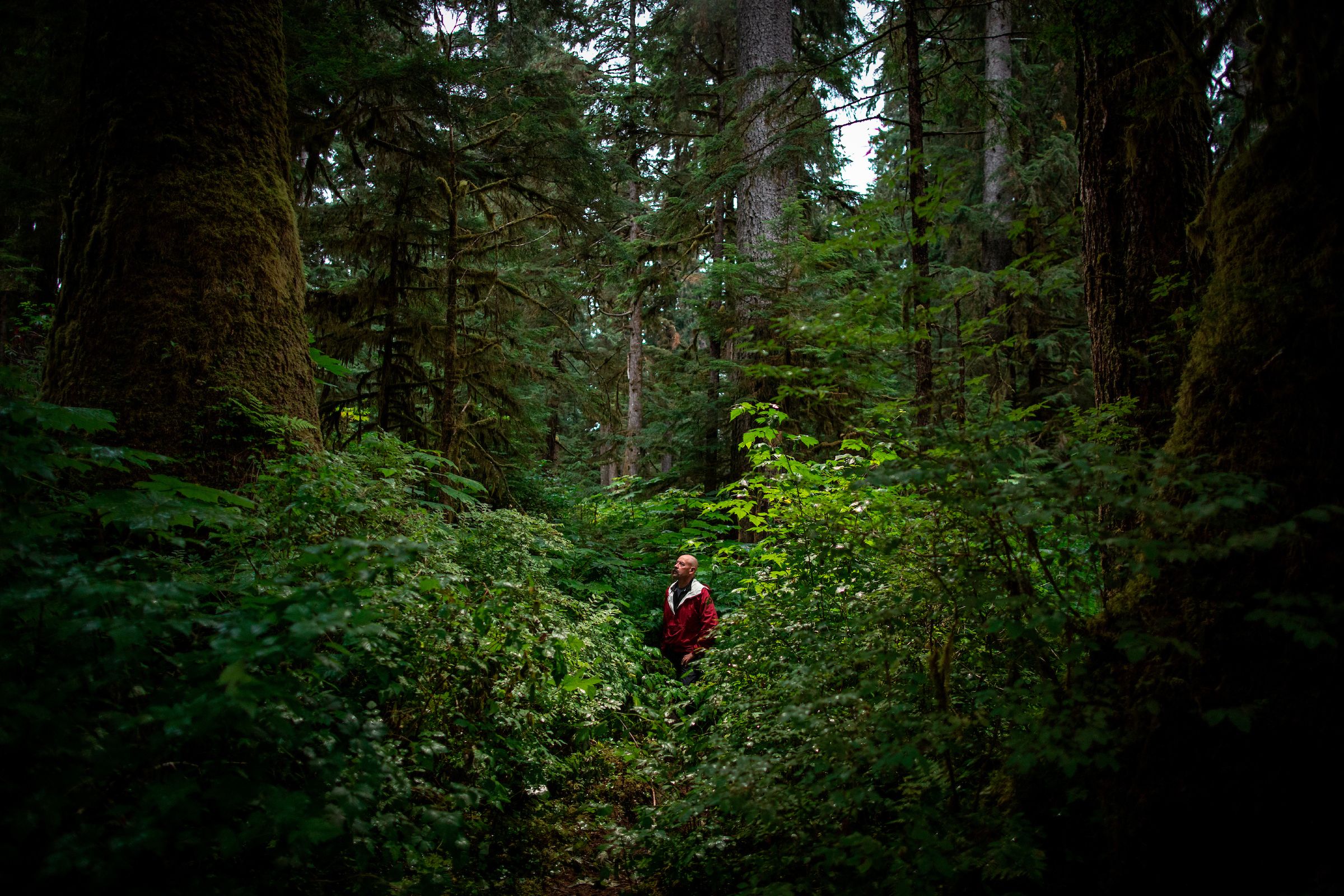The Pulitzer Center on Crisis Reporting
2020 Annual Report
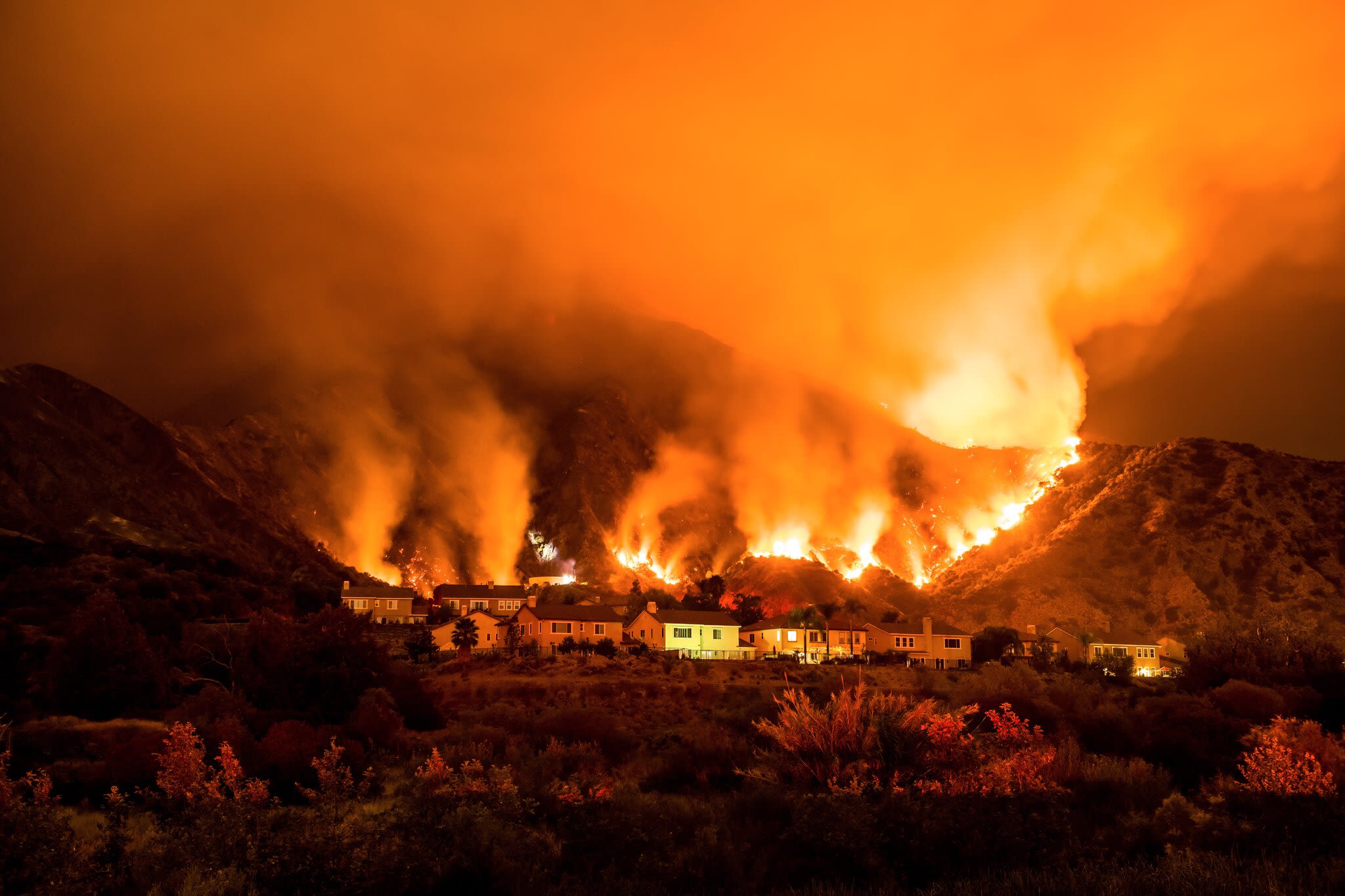
Above: Video by Claire Seaton. 2020.
Above: Video by Claire Seaton. 2020.
The year just past was extraordinarily challenging, from a global pandemic to the reckoning at home over racial justice and a political climate so poisonous as to threaten the very foundations of American democracy. For the Pulitzer Center, responding to the moment we’re in, it has been a time of global expansion, heightened community engagement, and building the capacity we need to play an even bigger role in the media and educational communities we serve.
The special call we posted on COVID-19 last March led to more than 75 reporting projects across the globe, with a focus on collaborative cross-border initiatives that exposed the pandemic’s disproportionate impact on vulnerable communities. Our work on rainforests and climate expanded both geographically, to Africa and Southeast Asia, and thematically, with the launch of our Rainforest Investigations Network and more than a dozen new U.S. projects as part of Connected Coastlines.
Bringing Stories Home, our initiative aimed at fostering enterprise reporting and community engagement, extended its reach to dozens of new communities, with 46 projects in 23 states addressing topics as diverse as police misconduct in Maine and multiple instances of discriminatory treatment of people of color and Indigenous groups to abuses in Baltimore’s child-support system.
The rise of authoritarian movements has been an increasing focus of Pulitzer Center journalism, with especially strong reporting during 2020 on China’s repression of its Muslim minorities. From India to Belarus, Brazil, Israel, and Hungary, our grantees in recent years have reported on political leaders consolidating power via the ugly tools of disinformation, media manipulation, and the repression or marginalization of vulnerable groups.
In the first week of 2021 we saw those same forces unleashed on the United States Capitol—a mob incited by a defeated American president with the aim of disrupting the peaceful transfer of political power.
That such a mob, mostly white men, could so easily access and trash one of our most hallowed buildings was horrific. As was the contrast between the government’s response to this mob and the very different treatment of Black Lives Matter protesters that we all witnessed in 2020—and the daily evidence, in a dreadful pandemic year, that race and socioeconomic status too often made the difference between the inconvenience of disrupted routines and the actual loss of jobs, health, and life.
Over the course of 2020 we supported dozens of projects aimed at exposing these and similar divides, here at home and across the globe. We have put a premium on reporting that is trustworthy and fair. We have devoted equal energy to bringing important issues into schools and colleges, promoting robust engagement with the roots—in history, culture, climate, and race—of the challenges we face.
This remains a difficult, conflicted time. We don’t pretend that there is an easy path to bridging our many divides. Our hope is to be on the side of the light, making use of the resources we have to promote greater understanding, justice, mutual respect, and equal opportunities for all.
We are so grateful to all of you, to the journalists, educators, supporters, and readers who have been such vital parts of our journey. We look forward to the road ahead. In the meantime, please stay safe—and take best care of yourself, your families, and the communities we love.
Emily Rauh Pulitzer, Chair
Jon Sawyer, Executive Director
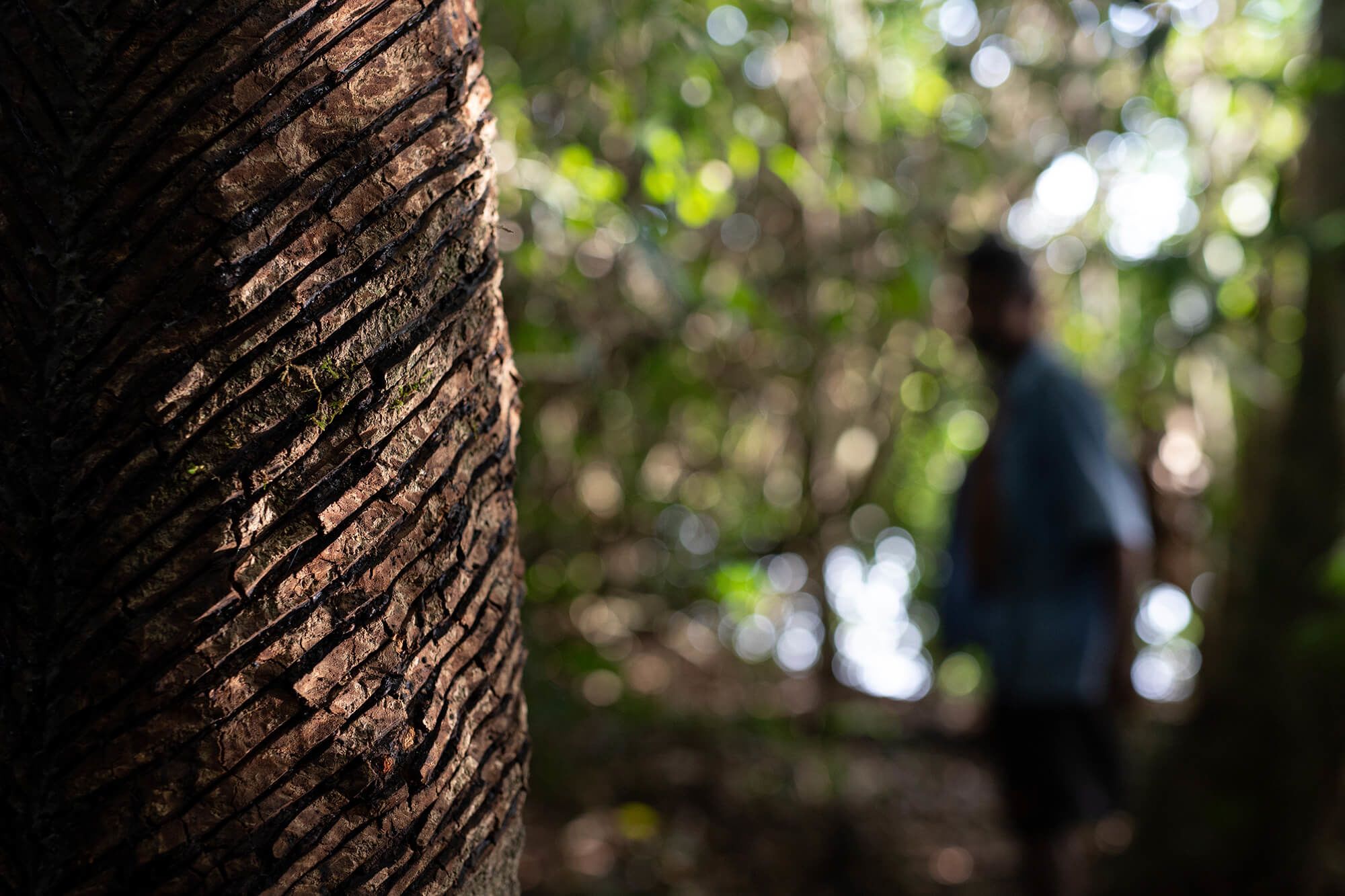
Reporting
Amid the challenges of 2020, our grantees produced some of the most ambitious journalism we have ever seen at the Pulitzer Center.
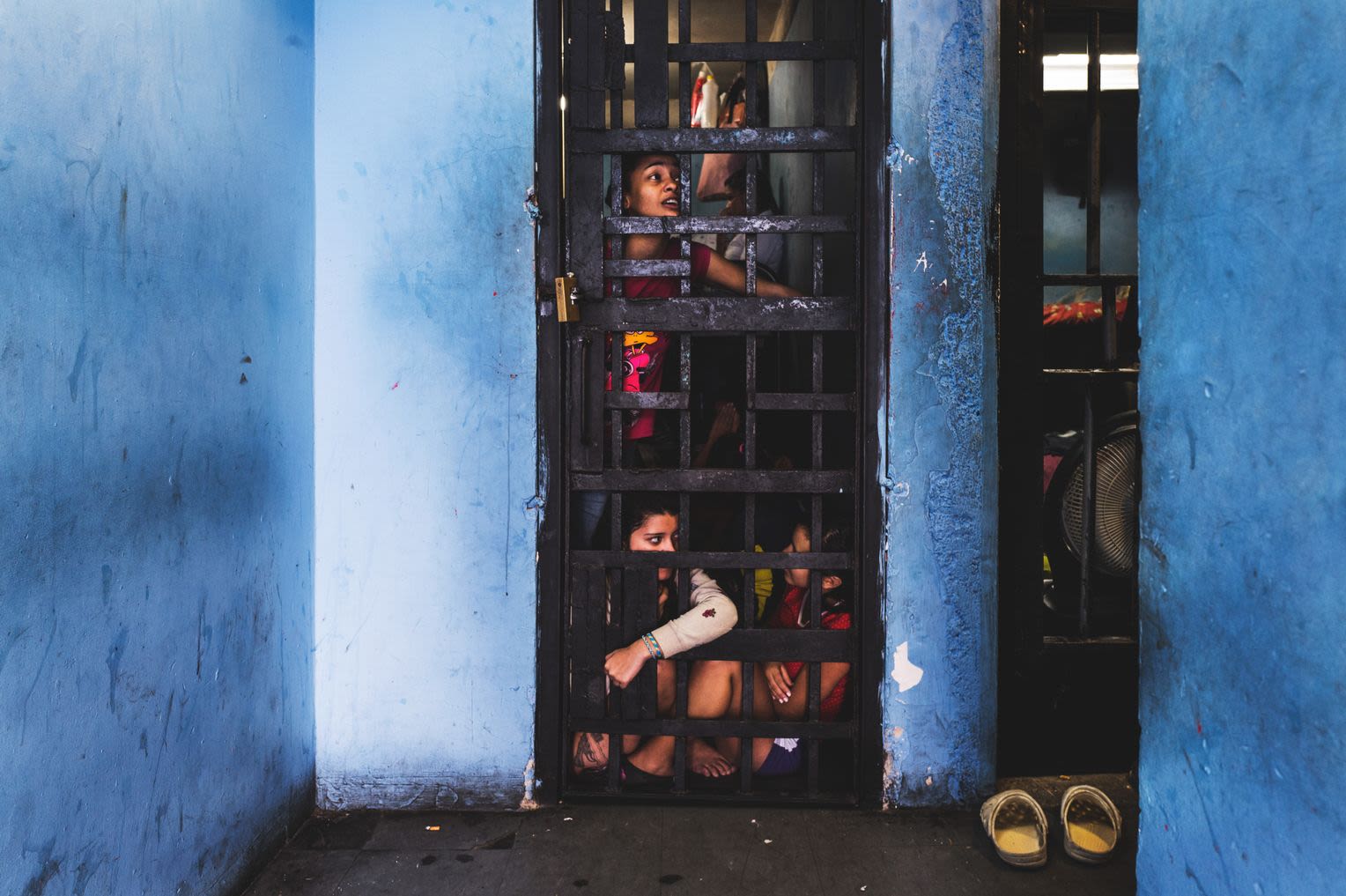
They harnessed data, collaboration, and multidisciplinary approaches to overcome the restrictions imposed by COVID-19 and tell urgent stories that few others were focusing on. In all, we supported 203 reporting projects in 72 countries. More than 60 percent of those projects were reported by first-time Pulitzer Center grantees. Highlights include:
Support for PBS NewsHour on multiple projects, including Simon Ostrovsky’s on-the-ground reports about political upheaval in Belarus and a war over Nagorno-Karabakh, which few Western outlets covered. Marcia Biggs produced a timely series on political turmoil in Venezuela, while grantees Nadja Drost and Bruno Federico contributed a remarkable two-part series on the dangerous journey across the Darien Gap by migrants trying to reach the United States. In response, one viewer wrote: “We are missing so many stories from a world so few Americans even know exists."
The United States withdrew from northern Syria last fall, leaving its Kurdish allies in the Syrian Democratic Forces to the mercies of Turkey’s invading army. As Luke Mogelson details in a Pulitzer Center-supported story for The New Yorker, Turkey was quick to wreak havoc on its longtime foes. U.S. personnel stood by and watched while Turkey engaged in an “intention-laced effort at ethnic cleansing,” one U.S. diplomat on the ground wrote in an internal memo.
In the wake of devastating hurricanes and political upheaval, Puerto Rico is facing urgent questions on how to rebuild. Grantee Natasha Alford looked at this crisis through the lens of one community within Puerto Rico that faces harsh economic and civil rights disparities, further exacerbated by race and class: Afro-Puerto Ricans and Black Latinos. Her stories appeared in The New York Times, The Guardian, O, The Oprah Magazine, theGrio, and on CBS News and public radio’s Latino USA. Alford’s bilingual documentary, Afro-Latinx Revolution: Puerto Rico, premiered on Amazon Prime.
In Looking for America, a team of Associated Press writers, videographers, and photographers traveled across the country to take the pulse of a nation convulsed by the coronavirus pandemic, racial tensions, and a turbulent election. From Appalachian Ohio, where the feeling of isolation is deeper than ever, to southern Illinois “sundown” towns still plagued by systemic racism, and the state of Mississippi, where it is harder to vote than anywhere in the country, reporters sought clues to an increasingly contradictory and divided nation.
Joanne Cavanaugh Simpson’s State of Surveillance investigation for Baltimore Magazine documented the rollout of Baltimore’s new “spy planes” experiment, a government program that uses facial recognition technologies to deter crime. The AI-powered planes have arrived at a time of racial reckoning to a city with a troubling history of police surveillance and discrimination against minorities. “It creates a feeling of helplessness, a feeling that you are trapped and constantly being watched, and that creates resentment,” a community activist told Cavanaugh Simpson.
In Walking on a Blade, 10 Iranian visual storytellers joined forces to tell the story of the country’s informal economy, the millions of self-employed workers for whom quarantining at home during COVID-19 was simply not an option. The powerful photo essays, published by Spiegel and VG, offered a rare and intimate window into the Iranian society, its resilience and dignity, from the perspective of its local journalists.
The Pulitzer Center’s support has been critical to some of our most important work over the years, but never more than in 2020. The partnership has allowed us to cover the effects of the COVID pandemic on some of the most vulnerable populations in far reaches of the country and the world. Also ... to talk to people who feel their views and lives are not often reflected in the media.
Your support really helps shine the light, where injustices have been thriving in the dark.
Background images in order of appearance:
- Image by Ahmad Jarrah. Brazil, 2020.
- Image by Flavio Forner. Brazil, undated.
- Image by Cheryl Diaz Meyer. Philippines, 2019.
- Image by Felipe Dana / AP Photo. Brazil, 2020.
- Image by Charles Fox / The Philadelphia Inquirer. United States, 2020.
- Image by Ahmad Jarrah. Brazil, 2020.
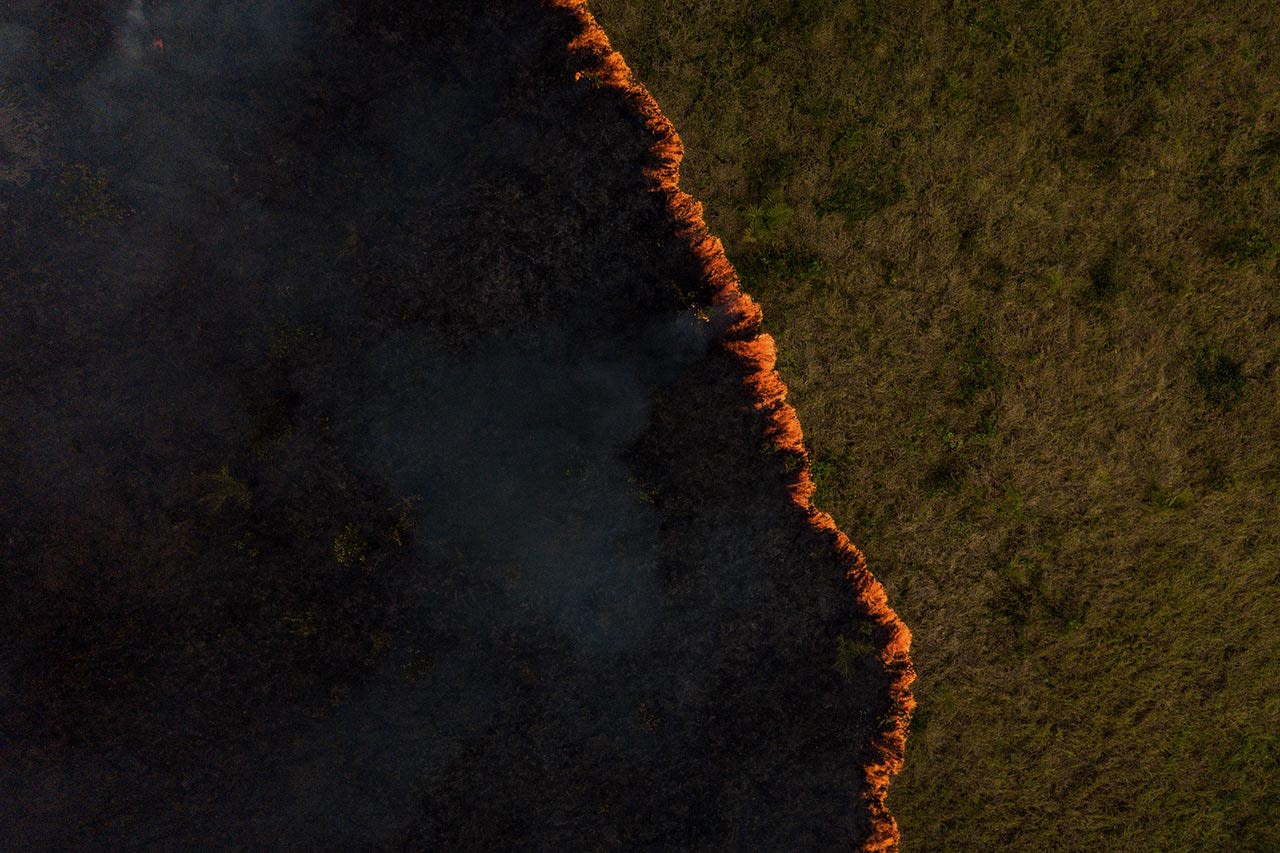
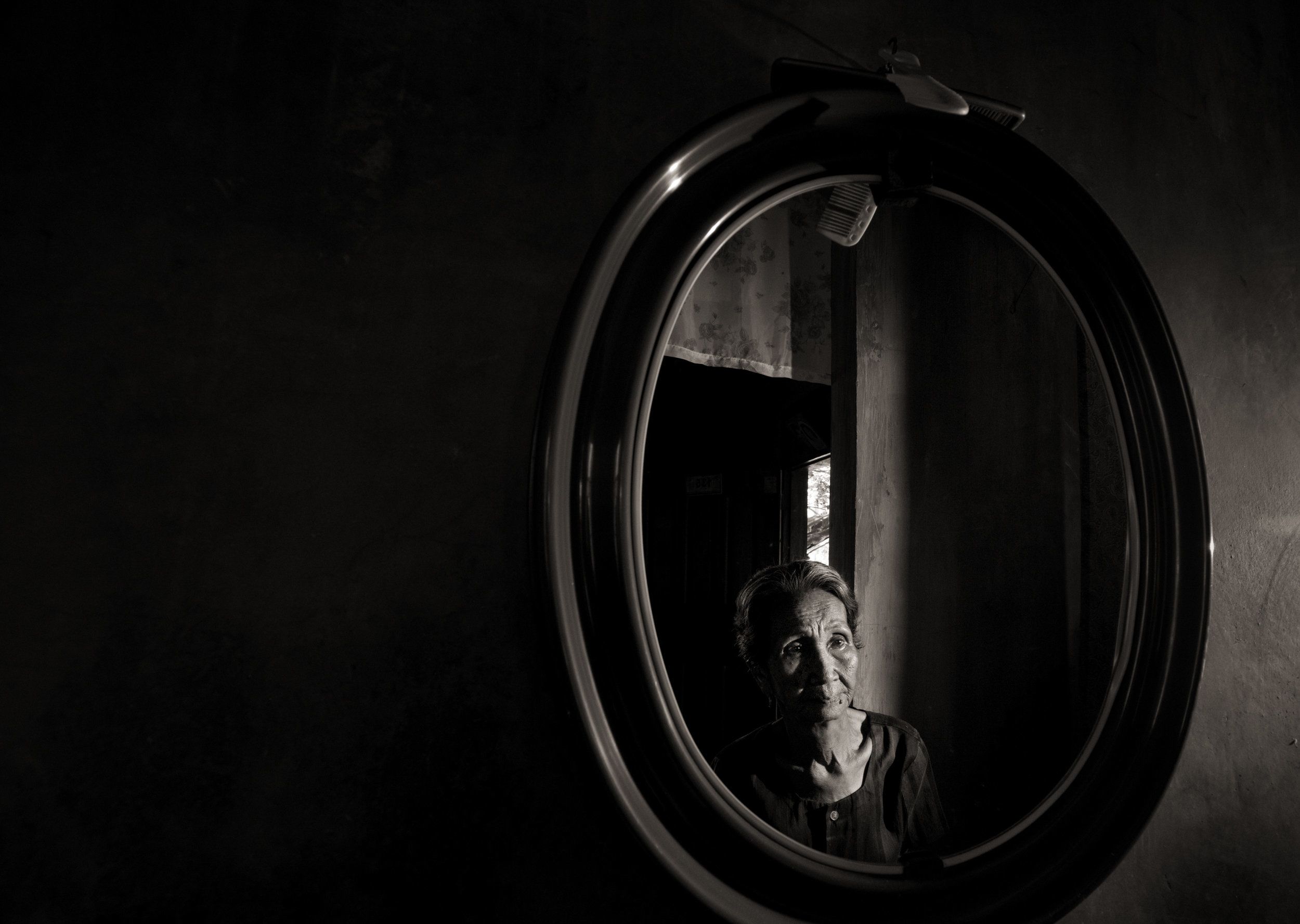
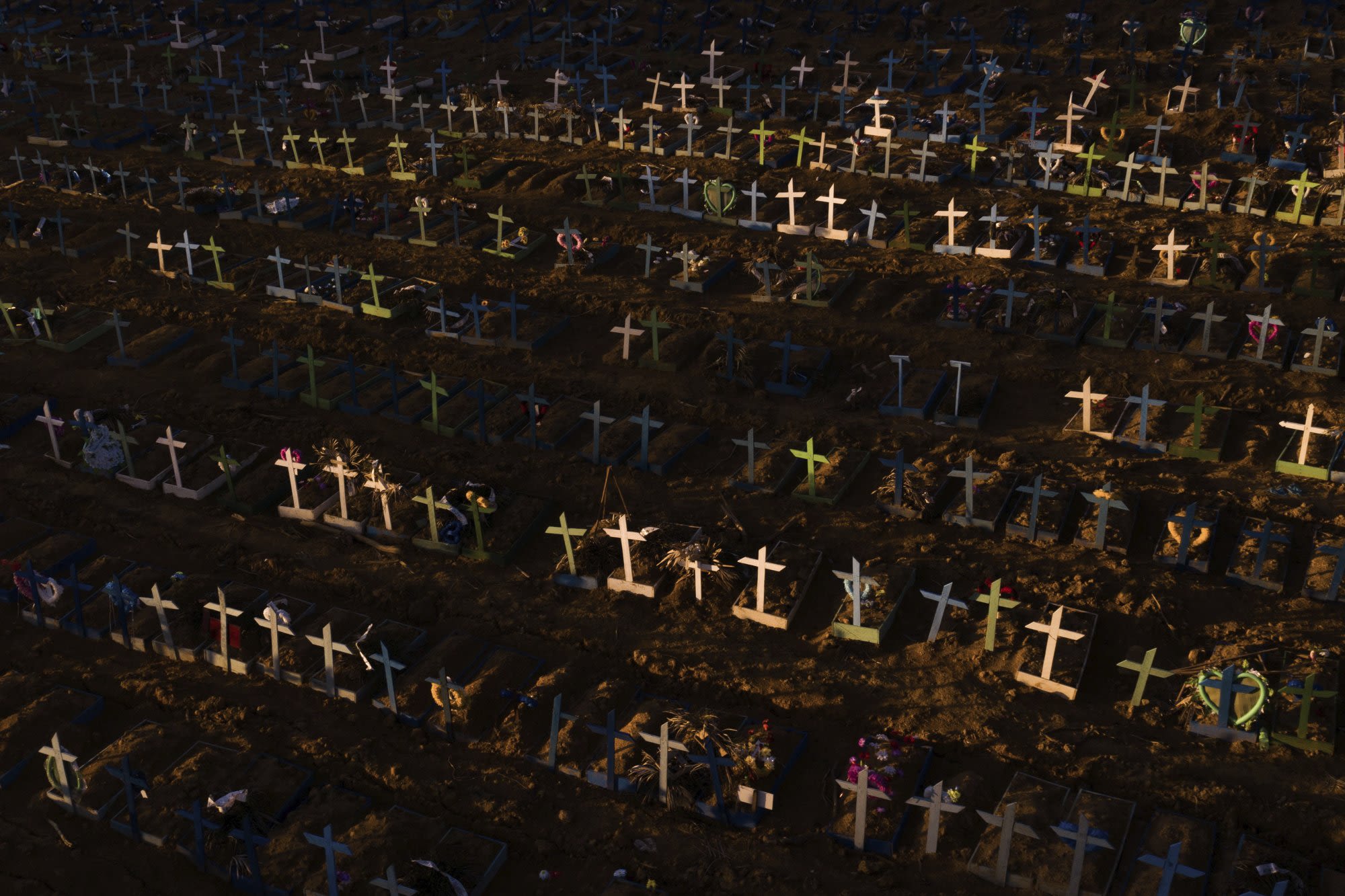
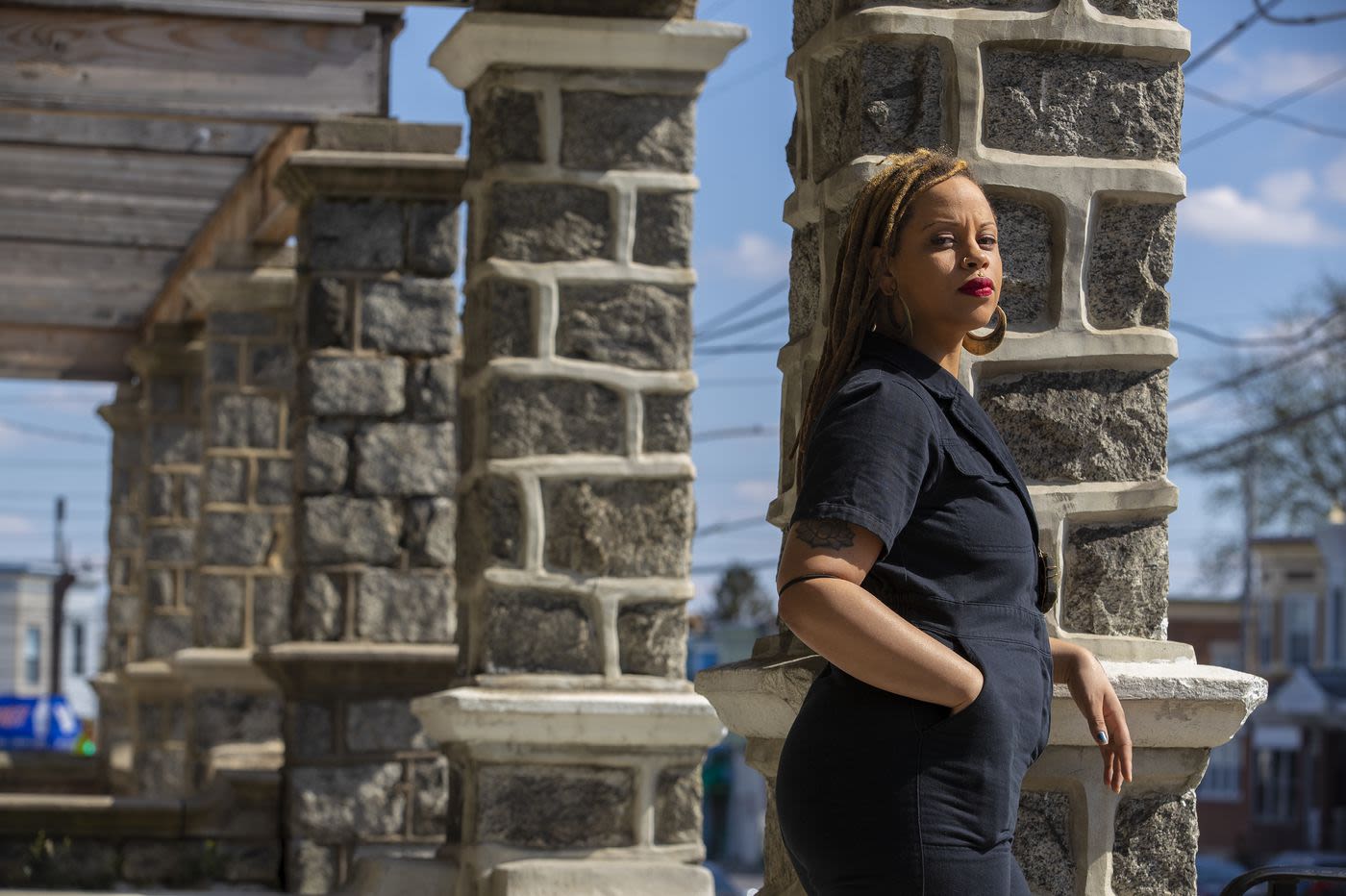
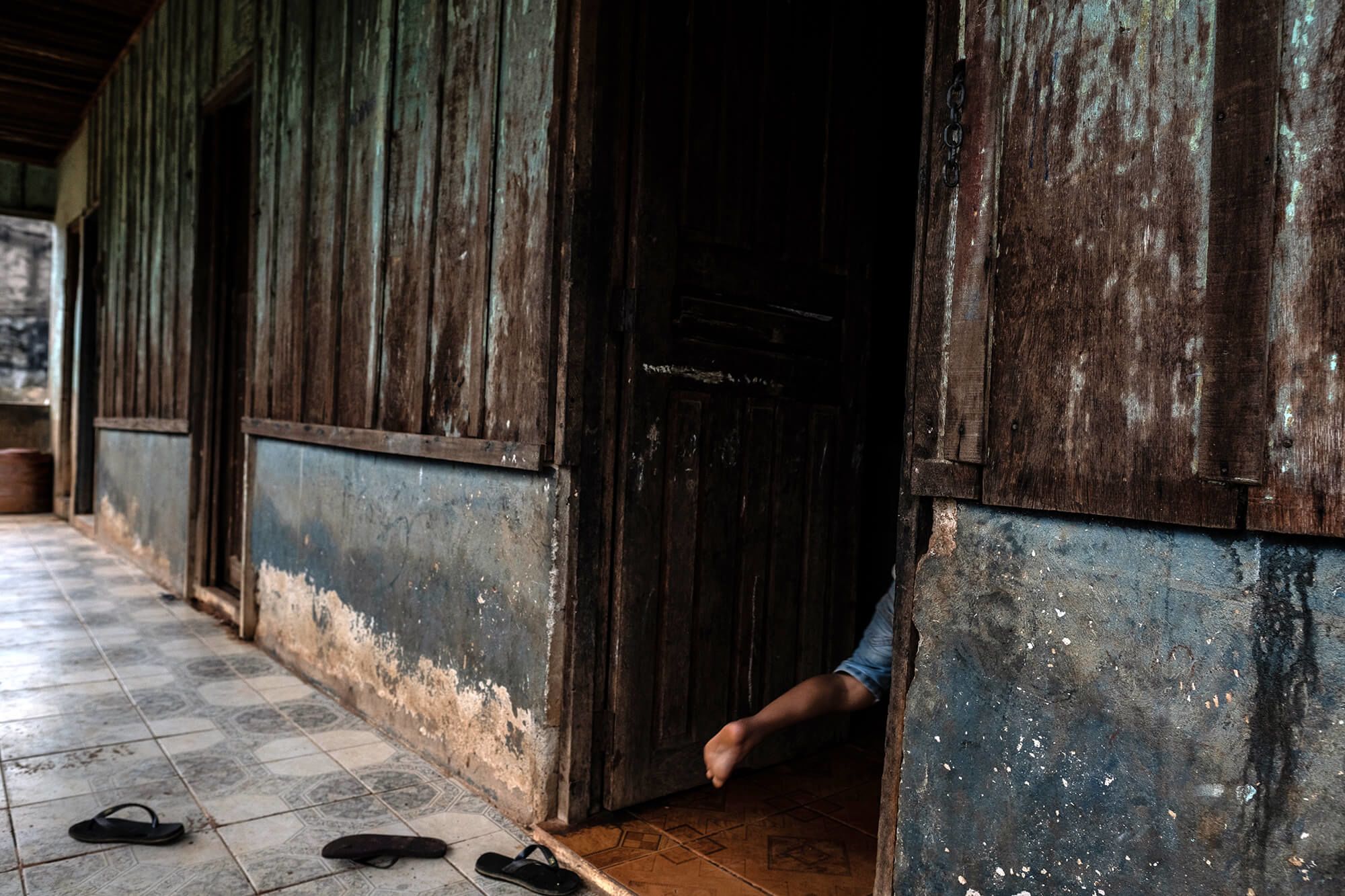
In-Focus:
COVID-19
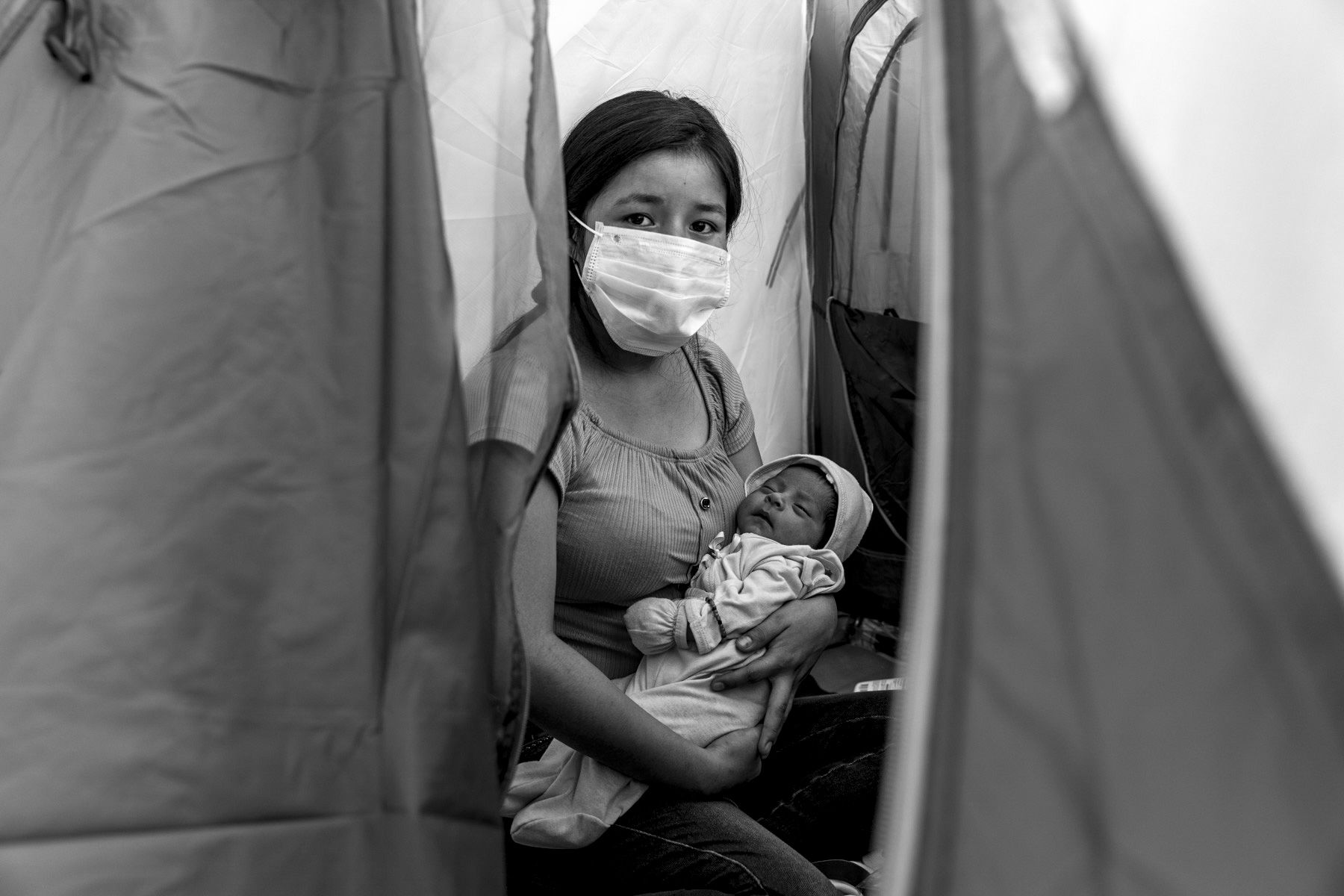
The all-encompassing story of 2020 has been the COVID-19 pandemic. In March we challenged our grantees to overcome travel restrictions with collaboration across borders, newsrooms, and disciplines. The Coronavirus News Collaboration Challenge yielded powerful, innovative reporting and storytelling on all platforms, including:
Pulitzer Center support enabled Science to sustain its COVID-19 coverage and expand it with dozens of stories, reporting from Africa, India, Latin America, and other regions as the pandemic took hold. Grantees Jon Cohen and Kai Kupferschmidt formed the core of the reporting team at Science.
Prodavinci, the premier digital outlet in Venezuela for explanatory journalism, reported on the impact of COVID-19 in a country that faces one of the continent’s most complex humanitarian crises. Prodavinci teamed up with newspapers and radio and TV stations to publish more than two dozen stories. The outlet recently started its own educational program in schools and universities, inspired by the Pulitzer Center.
Across every aspect of daily life, women and people of color are disproportionately impacted by COVID-19. Writing in The Philadelphia Inquirer and The 19th*, Errin Haines explored this reality in Philadelphia, the poorest big city in America, by profiling women as they confront—and overcome—this unprecedented challenge.
Loneliness, long periods of isolation, and the risk of kidnapping and piracy are the occupational hazards that come with making a living on the high seas. The pandemic has only made things worse for the country that is the world’s leading supplier of seafarers. Filipina journalist Ana P. Santos documented the struggle of these men stuck at sea in a series of articles for Rappler, the digital news outlet in the Philippines, as well for the Los Angeles Times and Al Jazeera.
A total of 270 students across seven universities teamed up to report how families across the country were evicted from their homes as the pandemic raged on. The Associated Press and several local outlets ran the stories, which were also picked up by The Washington Post and The New York Times. The project coordinated by the Howard Center for Investigative Journalism at the University of Maryland and Arizona State University won an EPPY award.
The Pulitzer funding meant Mission Local could be more creative in how we told the story of the pandemic, using illustrations, digging deeper, engaging with sources over a longer period. Moreover, it arrived quickly and freed me early on from fundraising to be on the street, covering the story. The follow-up in outreach has also been superb.
Background images in order of appearance:
- Image by Morena Pérez Joachin. Guatemala, 2020.
- Image by Brynn Anderson / AP Photo. United States, 2020.
- Image by Felipe Dana / AP Photo. Brazil, 2020.
- Illustration by Veronica Bravo, Jennifer Borresen, Javier Zarracina, USA TODAY; Shane Keyser, Midwest Center for Investigative Reporting. 2020.
- Image by John Minchillo / AP Photo. United States, 2020.
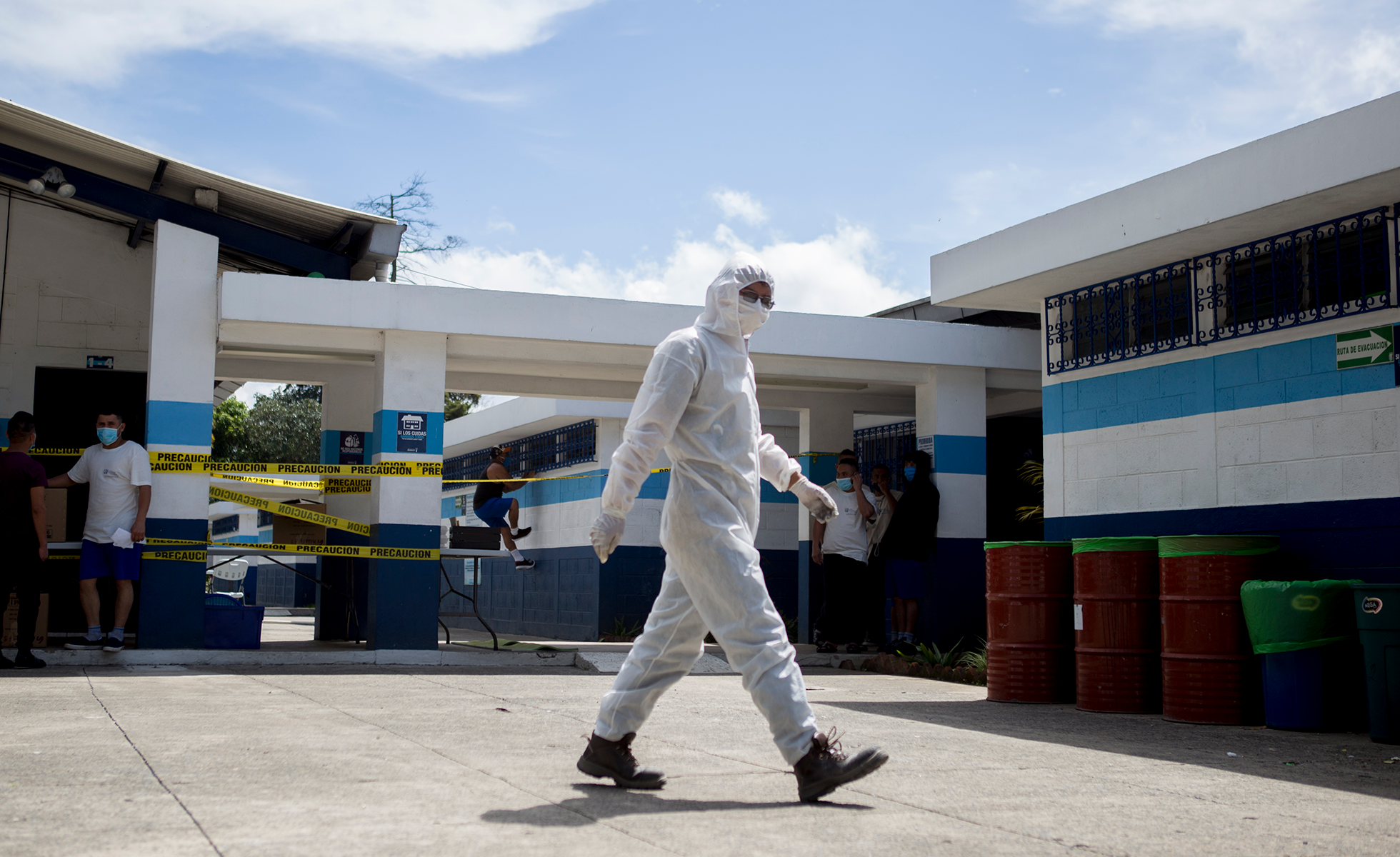
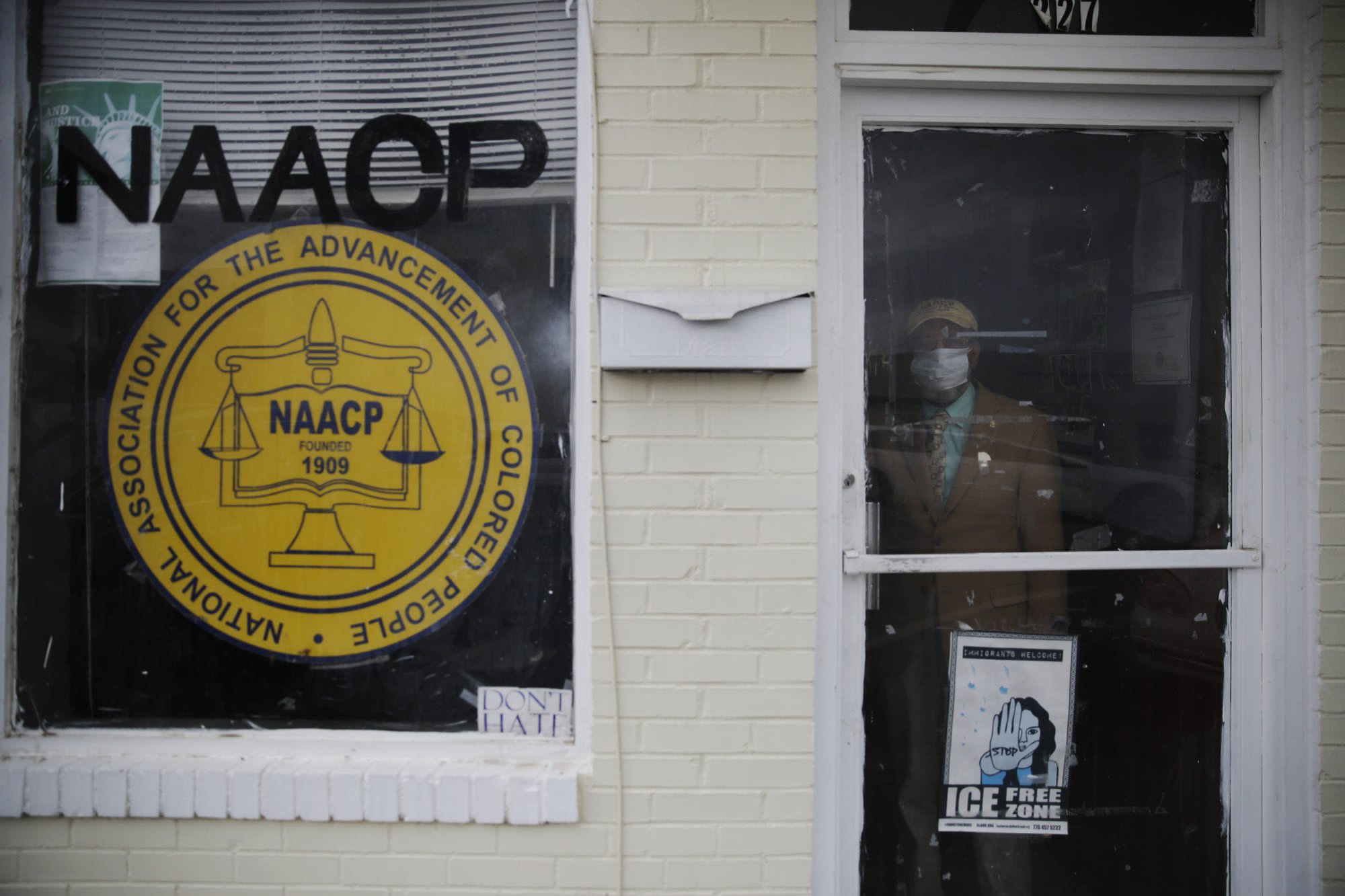
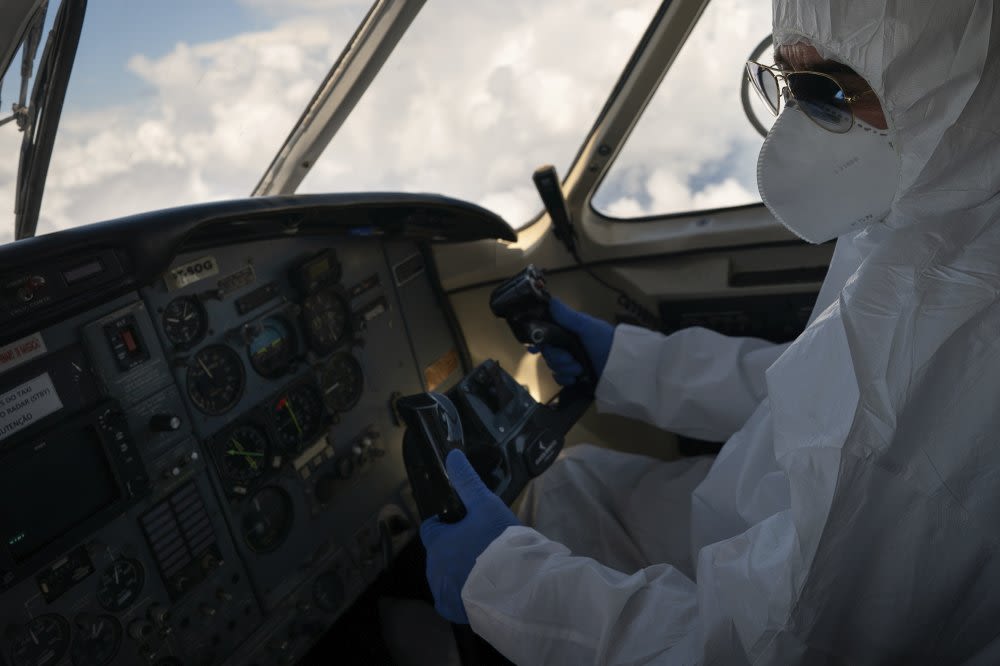
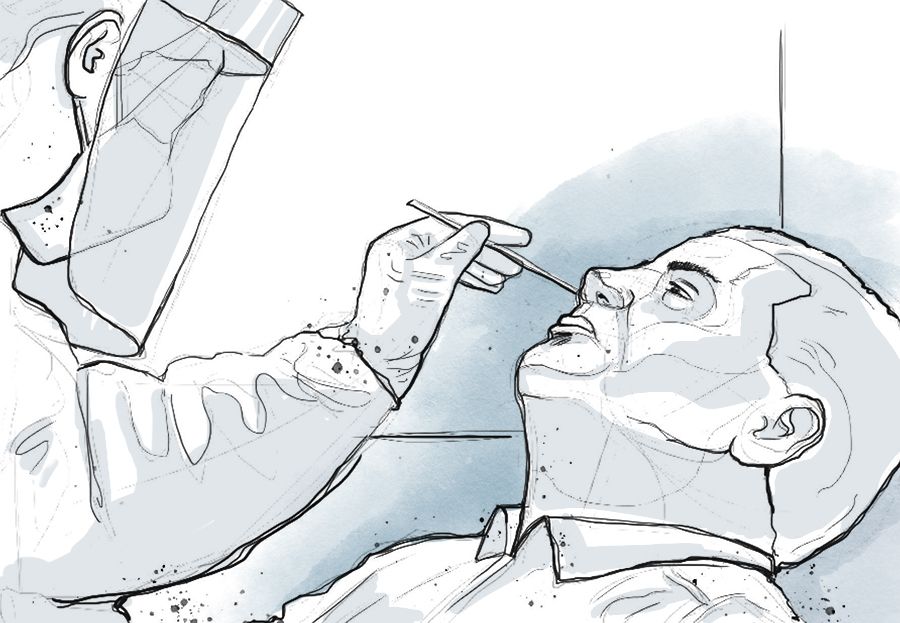
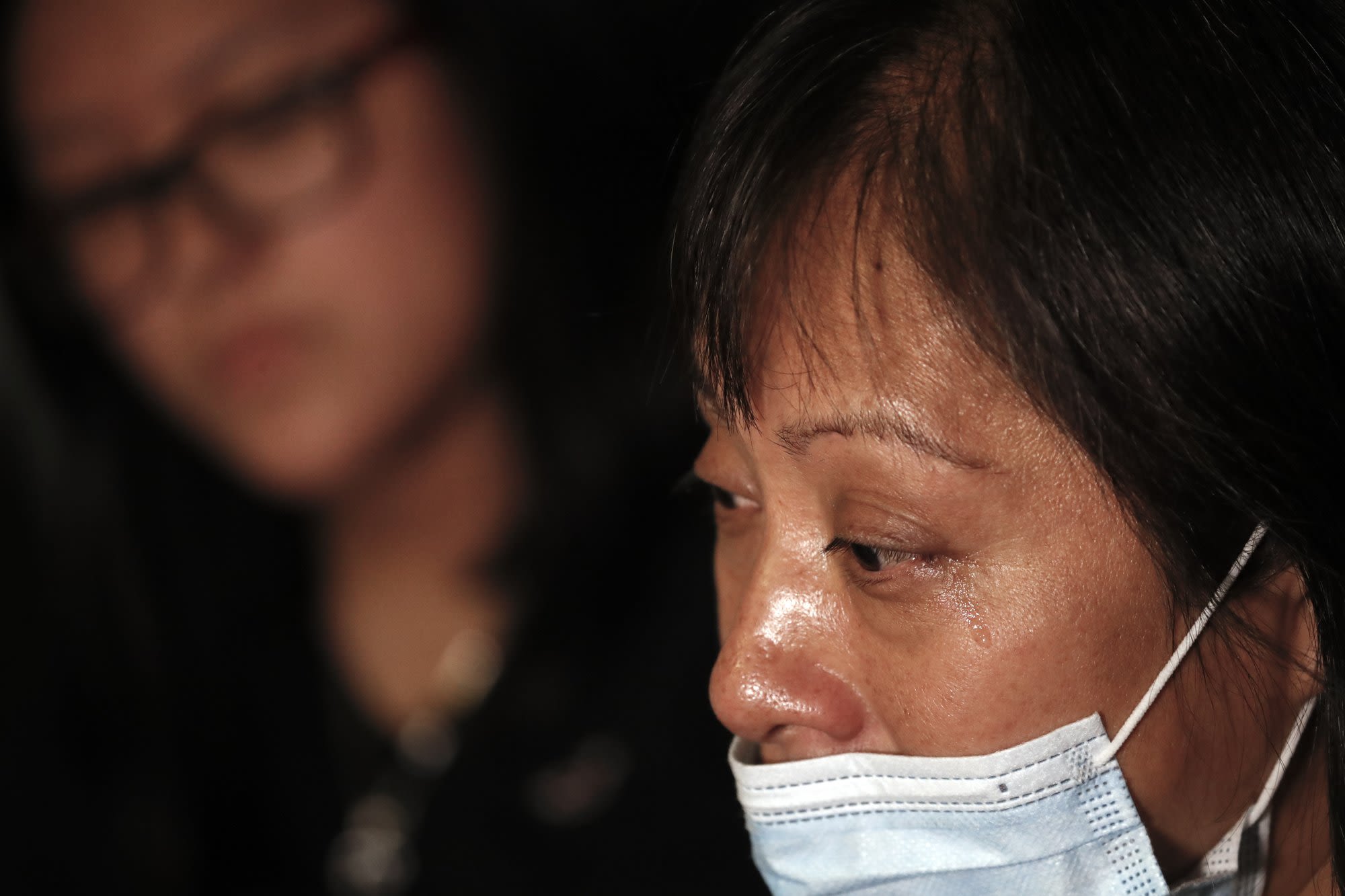
Bringing Stories Home
In 2020, we supported 46 enterprise reporting projects in 23 states, from Pennsylvania to Ohio, Missouri, Alabama, Georgia, and California.
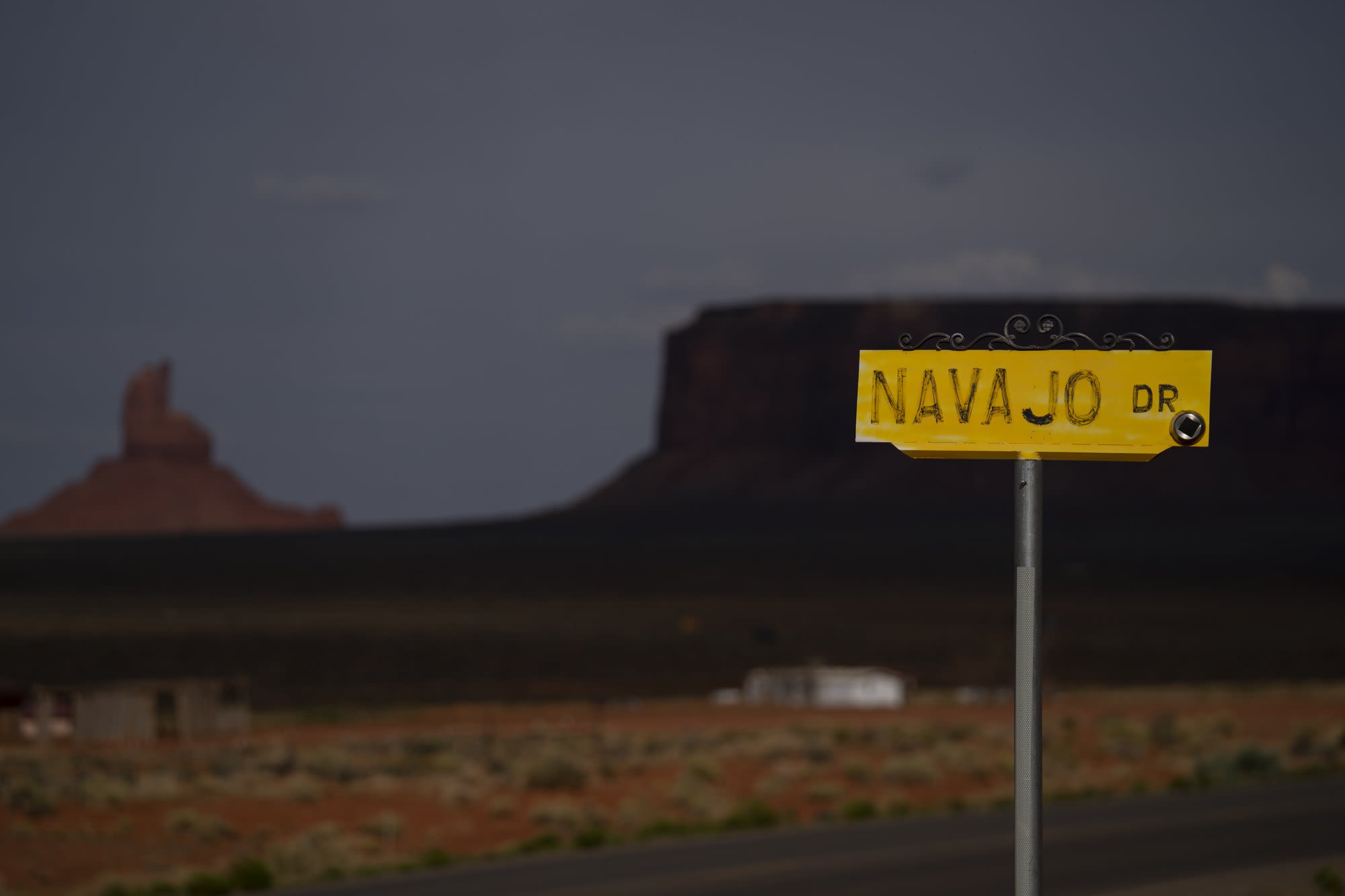
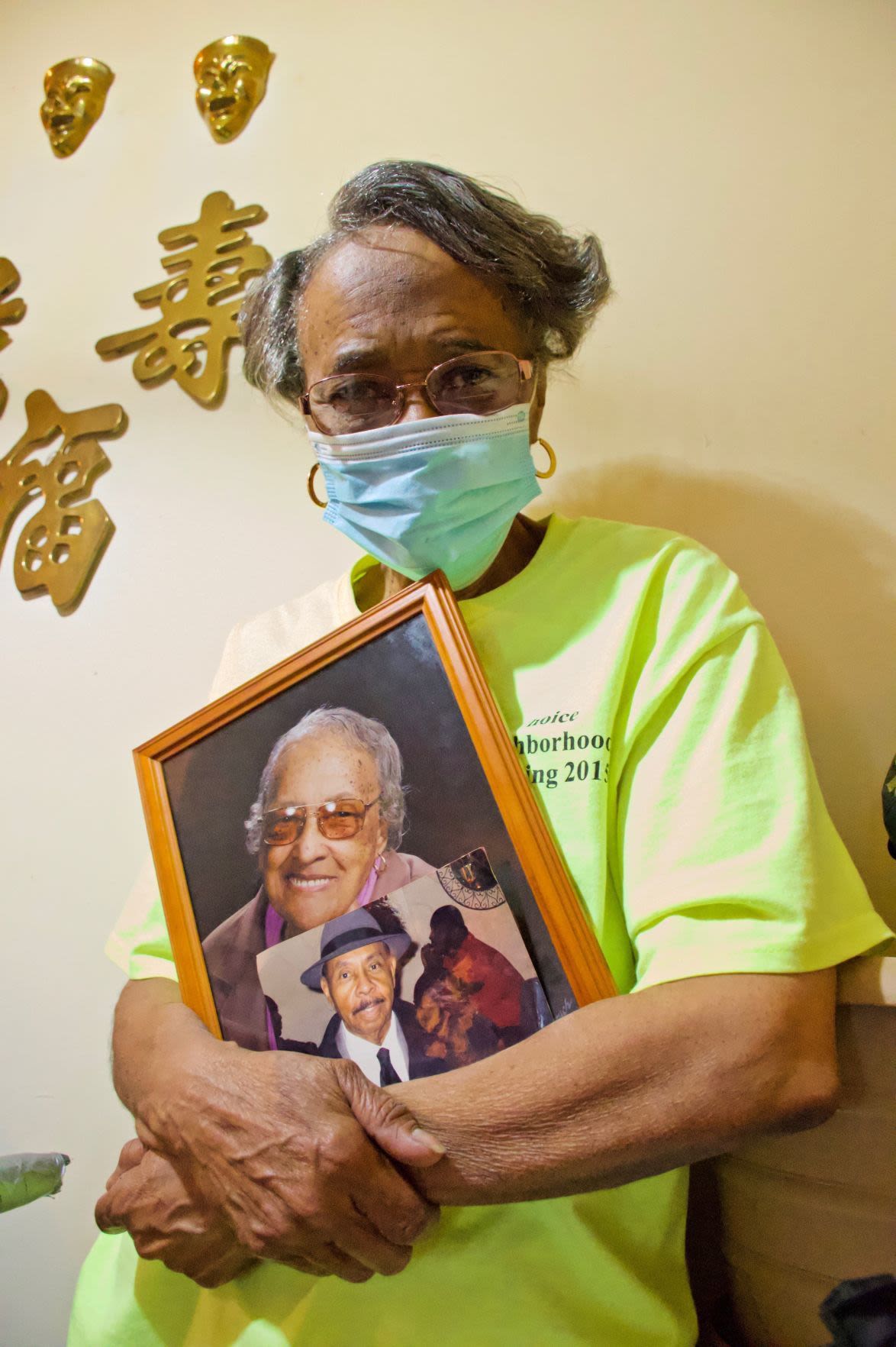
Above: Image by Wiley Price / St. Louis American. United States, 2020.
Above: Image by Wiley Price / St. Louis American. United States, 2020.
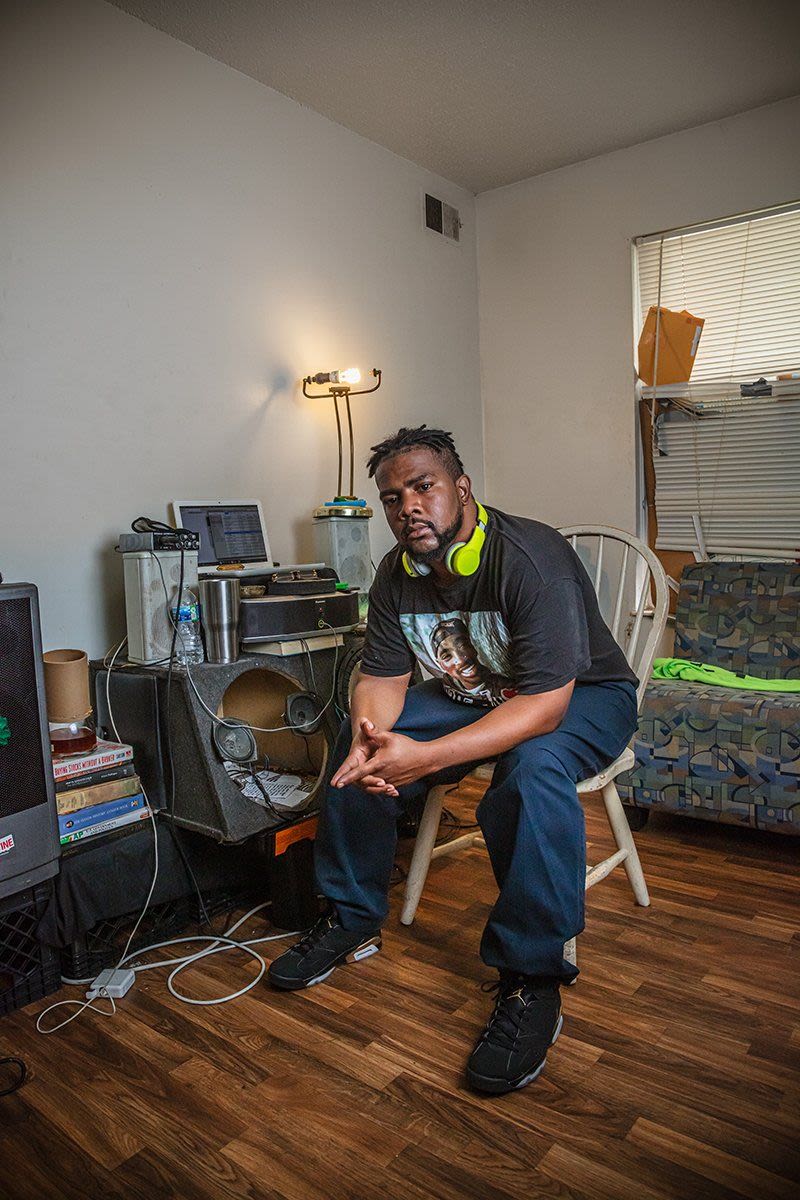
Above: Image by Matt Marcinkowski. United States, 2020.
Above: Image by Matt Marcinkowski. United States, 2020.
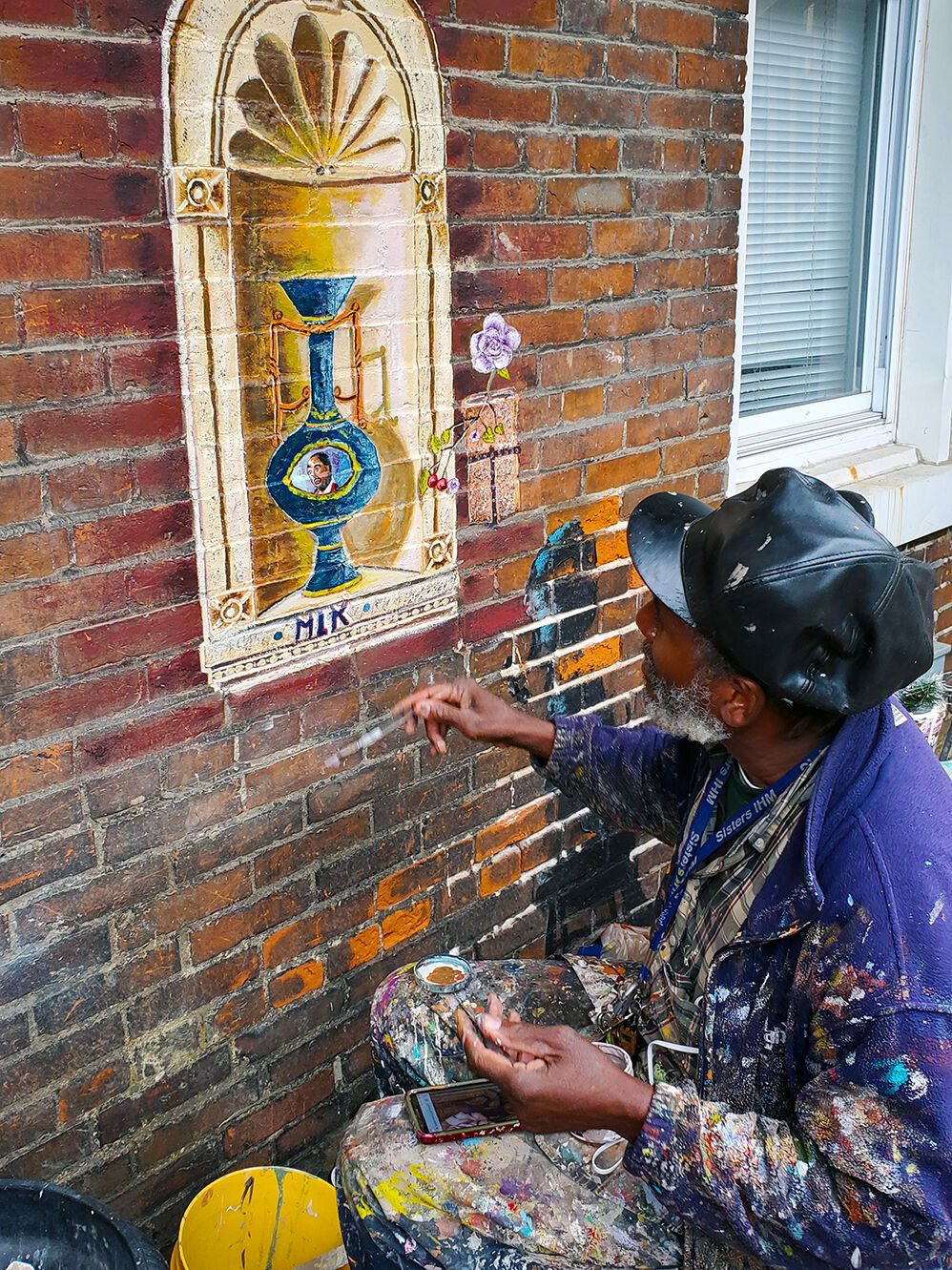
Above: Image by Sylvester Brown / The St. Louis American. United States, 2020.
Above: Image by Sylvester Brown / The St. Louis American. United States, 2020.
We supported the Midwest Center for Investigative Reporting and USA TODAY Network on a collaborative project that examines COVID-19's impact on America’s underpaid and exploited agricultural workforce. The reporting has exposed flaws in an industry that has historically imperiled its labor force.
In the 63106 Project, a diverse group of storytellers engages with families in St. Louis' most vulnerable neighborhoods—in the 63106 ZIP code—to learn how they are coping during the pandemic. The team tells its stories episodically with words, photography, and videography across a range of platforms.
Maryland’s child support system uses short-sighted policies and punitive enforcement tactics to collect payments, often from the poorest parents. The Baltimore Sun’s nine-month investigation showed how the debt is concentrated in the city’s struggling communities, where about 15,000 parents collectively owe more than $233 million. This crushing balance promotes participation in the underground economy, driving fathers and their children apart.
The investigative team at Maine’s Bangor Daily News produced a groundbreaking series on police misconduct that triggered strong reader responses and promises from lawmakers to close legislative holes. Lawmen Off Limits revealed the weaknesses of the bodies charged with protecting people from police misconduct, including sexual harassment.
State legislators in Ohio, Maryland, and Maine have responded to the stories produced by this initiative and amended or passed laws addressing the property tax loopholes, debt inequities, and misconduct exposed by our grantees. Most recently, Senator Lisa Keim of Maine, who is pushing for law enforcement reform in response to the Lawmen off Limits series, commented, "I think everyone probably recognizes how important it is that we have in-depth investigations by journalists. The final point to this whole thing ends up being that the press can be powerful and good."
Data Journalism
Innovative use of big data is at the core of three of the most impactful investigations our grantees produced in 2020.
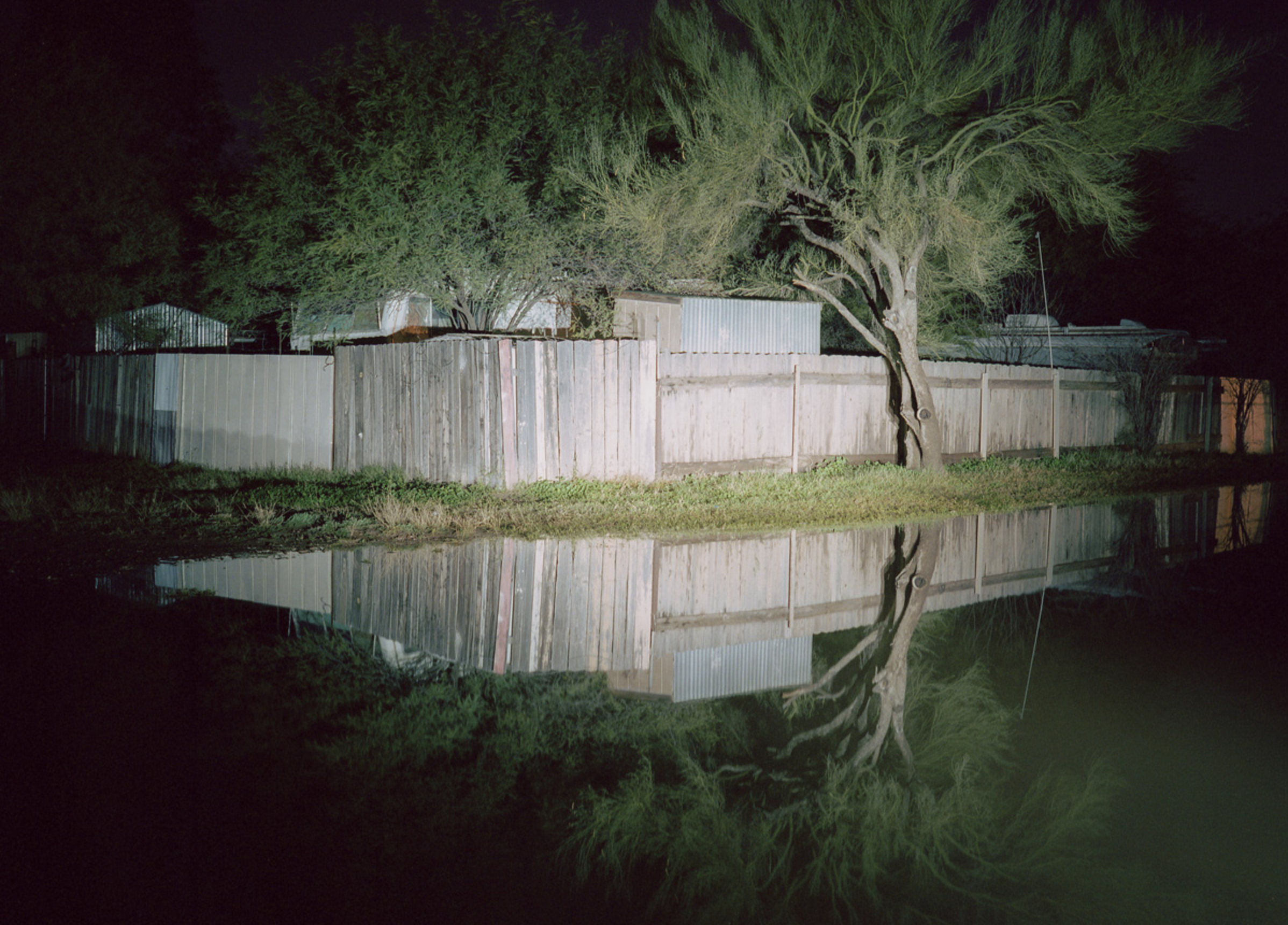

Above: Illustration by Marty Two Bulls Jr. / High Country News. United States, 2020.
Above: Illustration by Marty Two Bulls Jr. / High Country News. United States, 2020.
High Country News tracked 11 million acres of land taken from nearly 250 tribes, bands, and communities to help fund fledgling land-grant colleges. From the University of Florida to the Massachusetts Institute of Technology, the grants of land raised endowment principal for 52 U.S. institutions. This groundbreaking investigation has raised questions about institutions’ responsibilities—and debts—to Indigenous communities.
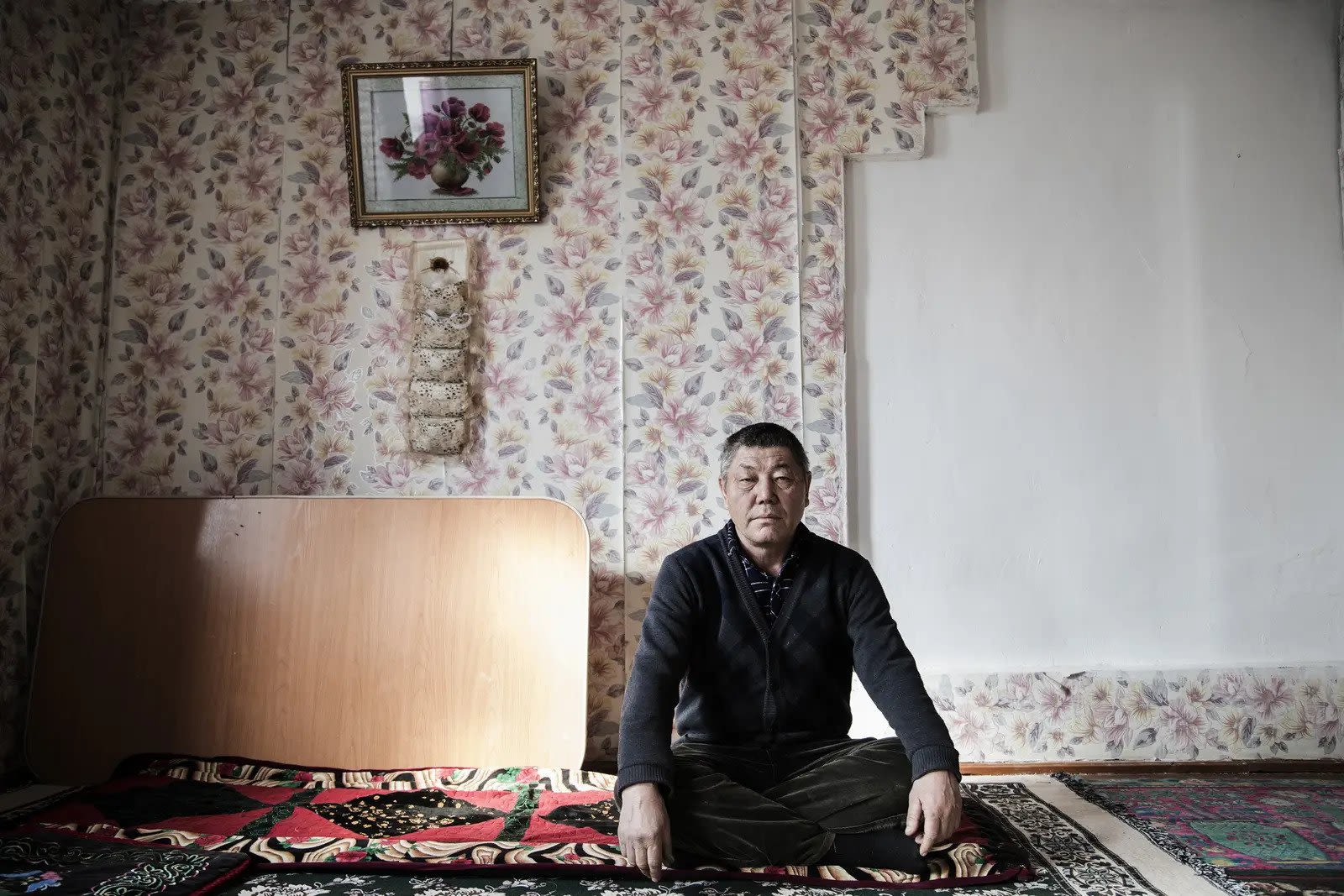
Above: Image by Ekaterina Anchevskaya / BuzzFeed News. Kazakhstan, 2020.
Above: Image by Ekaterina Anchevskaya / BuzzFeed News. Kazakhstan, 2020.
BuzzFeed News analyzed satellite images and conducted dozens of interviews to reveal the expansion of China’s network of internment camps for the detention of Muslim minorities. Built to Last identifies more than 260 structures built since 2017 even as Chinese officials claimed that the “reeducation” programs of Muslim minorities had been discontinued. Support from the Pulitzer Center allowed BuzzFeed to partner with architect Alison Killing to produce renderings of some of the camps.
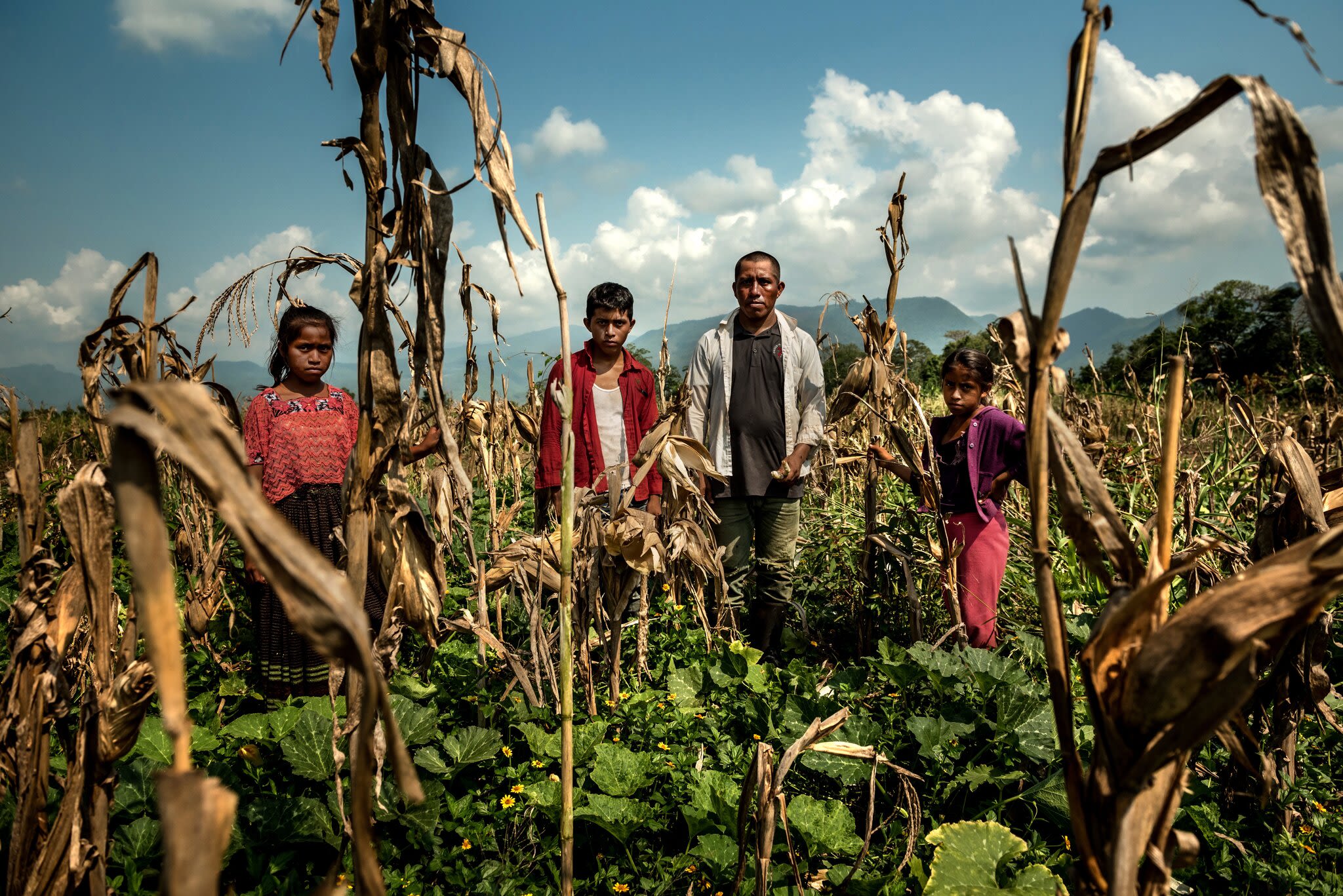
Above: Image by Meridith Kohut. Guatemala, 2020.
Above: Image by Meridith Kohut. Guatemala, 2020.
With the support of the Pulitzer Center, The New York Times Magazine and ProPublica used data to examine the daunting implications of climate change for global migration. The findings make clear that without urgent action a vast re-mapping of the planet's population could lead to catastrophe.
Rainforests
The second year of the Rainforest Journalism Fund, which launched in 2018, marked an expansion to the Congo Basin and Southeast Asia—in addition to continuing support for quality journalism across the Amazon.

The initiative supported 58 projects during 2020, leveraging collaboration and innovation in order to adapt to the context of the COVID-19 pandemic.
Eleven of the projects come from a special call for proposals on the intersection of the pandemic, deforestation, and livelihoods in the Amazon region—stories that will continue to be published through the beginning of 2021.
The Amazon, Congo Basin, and Southeast Asia Rainforest Journalism Fund initiatives hosted 16 virtual events, pivoting away from in-person meetings to prioritize public health and allowing the networks to broaden their audiences. Topics ranged from how journalists can use a variety of online databases to strengthen reporting to ethics and collaboration when covering conflict in the Amazon.
Notably, the Rainforest Journalism Fund website is now live and accessible in English, French, bahasa Indonesia, Portuguese, and Spanish. The website features reporting by grantees around the world, grant opportunities for covering rainforest issues, and resources and events free to the public.
Background: Image by Pablo Albarenga. Ecuador, 2020.
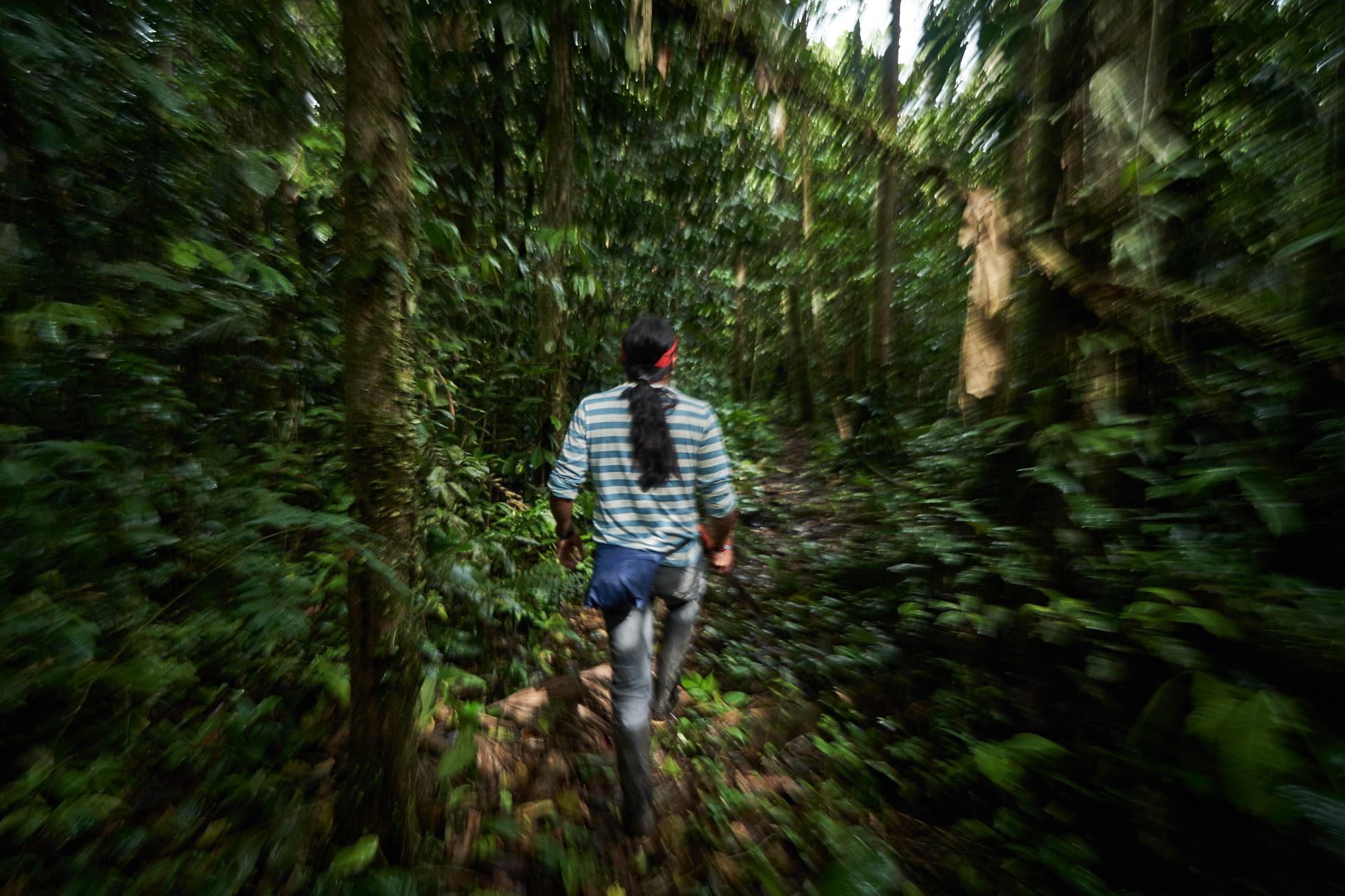
Connected Coastlines
Our news feeds have been overloaded with pandemic stories, but late into 2020 our Connected Coastlines grantees continued reporting on serious climate-related issues in U.S. coastal areas, particularly in the Southeast.
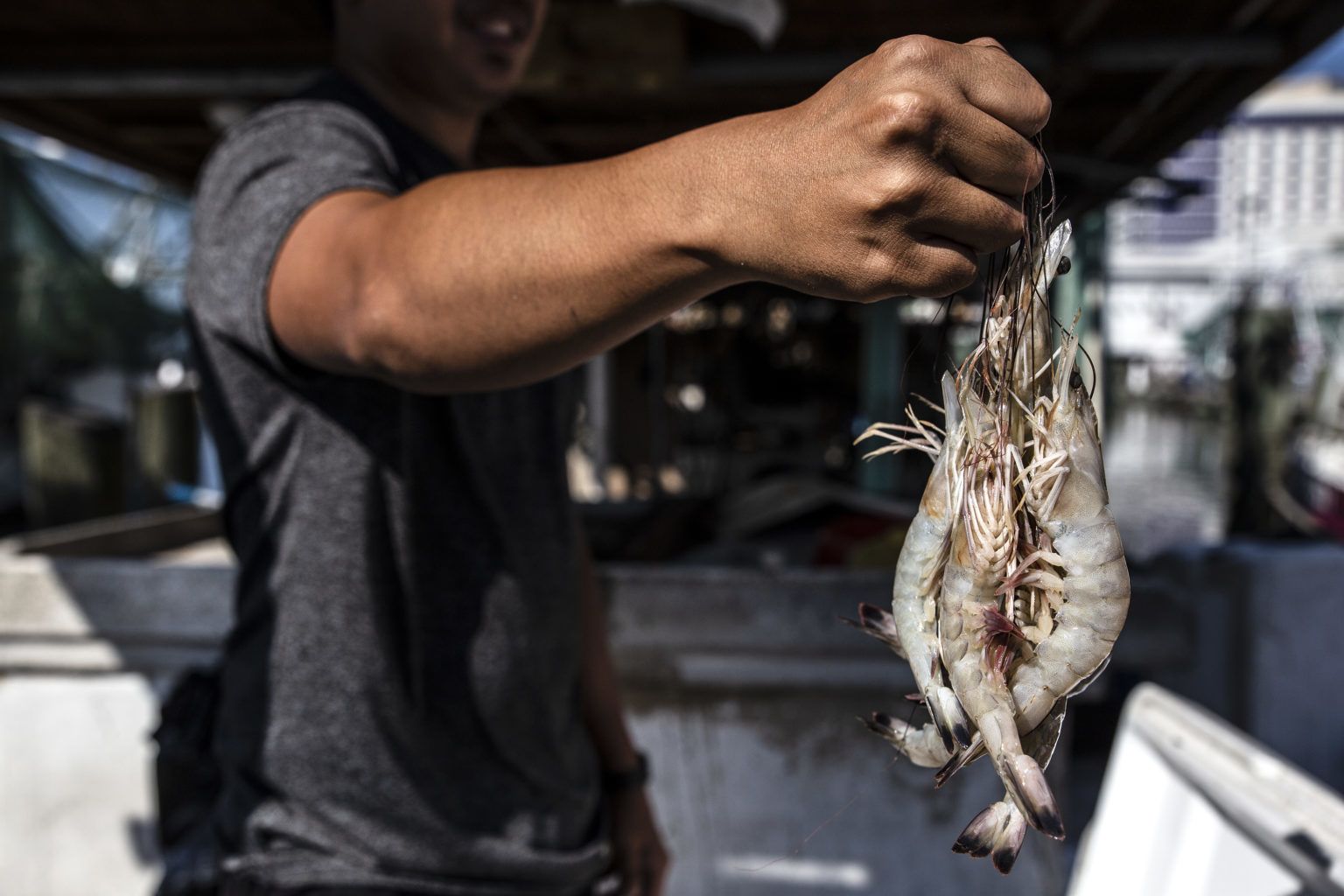
Seventy-one stories have been published since early March. Many of these stories were republished by news affiliates, increasing the overall digital reach to 163 pieces of coverage, over 104,000 social media shares, and 1.29 million views, not including print and radio stories.
In October, two riveting investigative series were launched by our grantees, Raleigh’s The News & Observer, The State, and Charleston’s The Post and Courier. These series highlight the life-altering climate-induced problems that most frequently affect the most vulnerable communities in North and South Carolina. To ensure maximum exposure for The News & Observer series, we converted the reporting into seven short radio stories.
November marked the last installments of the Chicago Tribune series Climate Change: Great Lakes, High Stakes, which explores how global warming is jeopardizing North America’s Great Lakes. This series won a Chicago Headline Club award.
Entangled, a film about the race to save North Atlantic right whales from extinction, created by grantees David Abel and Andy Laub, won the prestigious Jackson Wild award.
Campus Consortium
This year, the Pulitzer Center adapted to virtual and hybrid learning models and organized more than two dozen visits with Campus Consortium partners and potential future collaborators to reach over 2,000 students and educators.
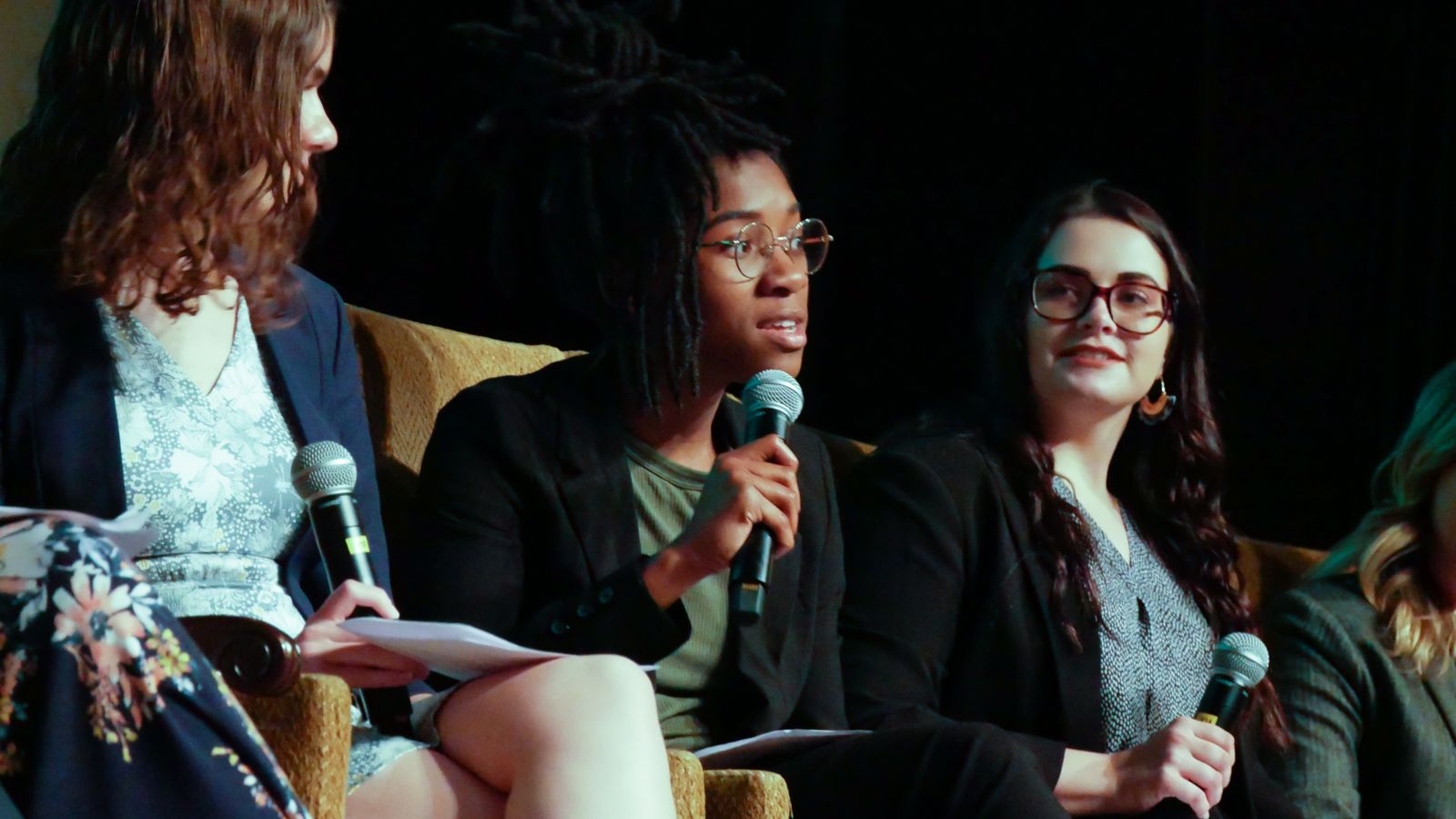
Engaging Workshops
In March, Marcio Pimenta visited Swarthmore College and led workshops on photography and journalism as activism. Don Belt brought his slow journalism curriculum to the University of Texas at Austin, and, in October, Tristan Ahtone and Geoff McGhee directed a data journalism workshop online for students and faculty at Syracuse University’s Newhouse School of Public Communications.
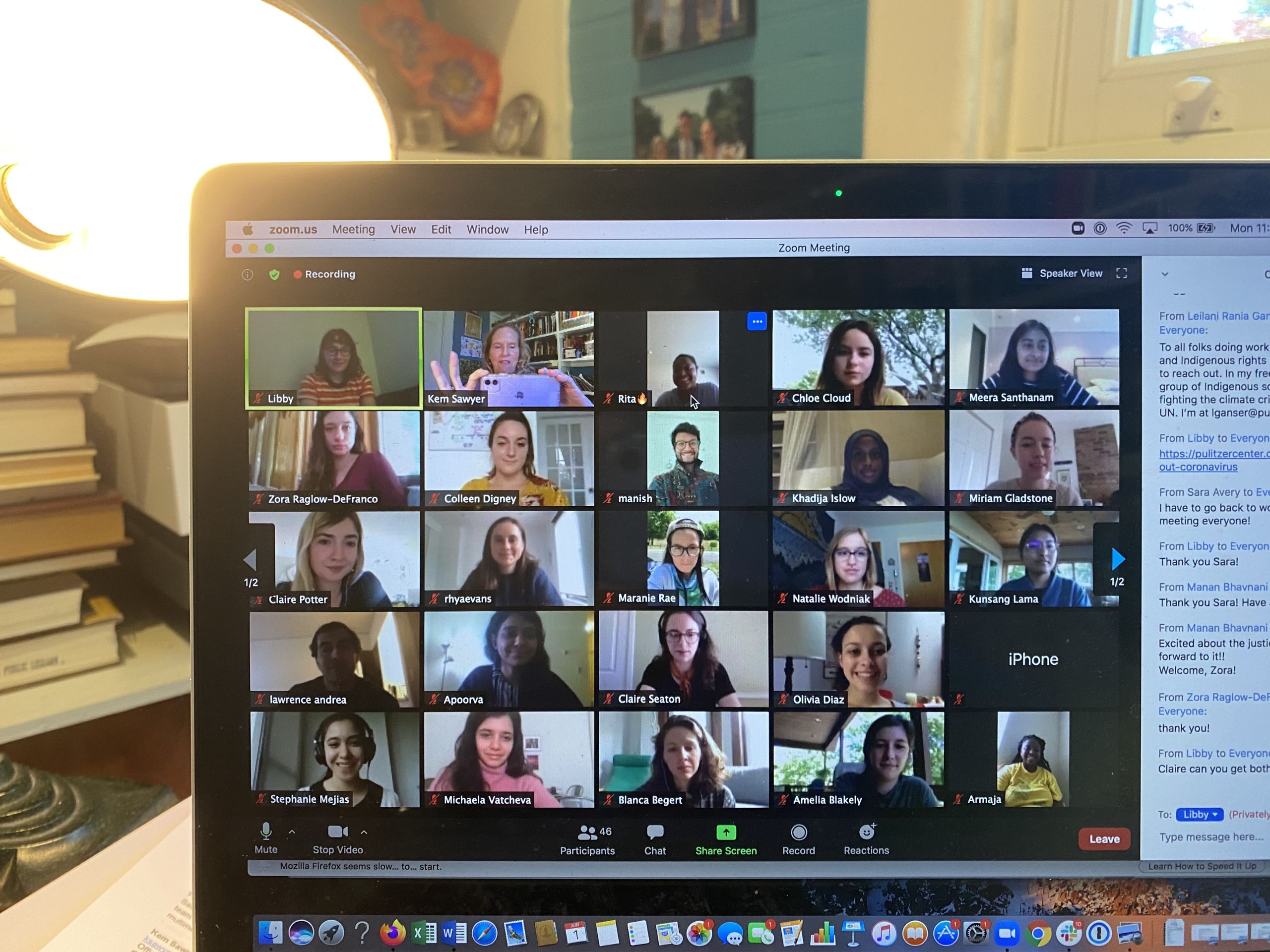
Above: Image by Kem Knapp Sawyer. United States, 2020.
Above: Image by Kem Knapp Sawyer. United States, 2020.
Online Innovation
We partnered with the Georgetown University Berkley Center for Religion, Peace and World Affairs on two virtual panels featuring first Carol Rosenberg and then Phillip Martin. Our team also developed sessions with Kainaz Amaria and Umair Irfan at the University of Missouri, Lori Hinnant at McGill University, and Anna Sussman at Elon University, among others.
"Sussman’s talk was motivating. She was encouraging and real proof that when you are passionate about what you are doing, you can find a way to do it. It was an uplifting and necessary conversation for journalists about to enter the workforce in difficult times.”
Background: Image by Mary Knight. Qatar, 2020.
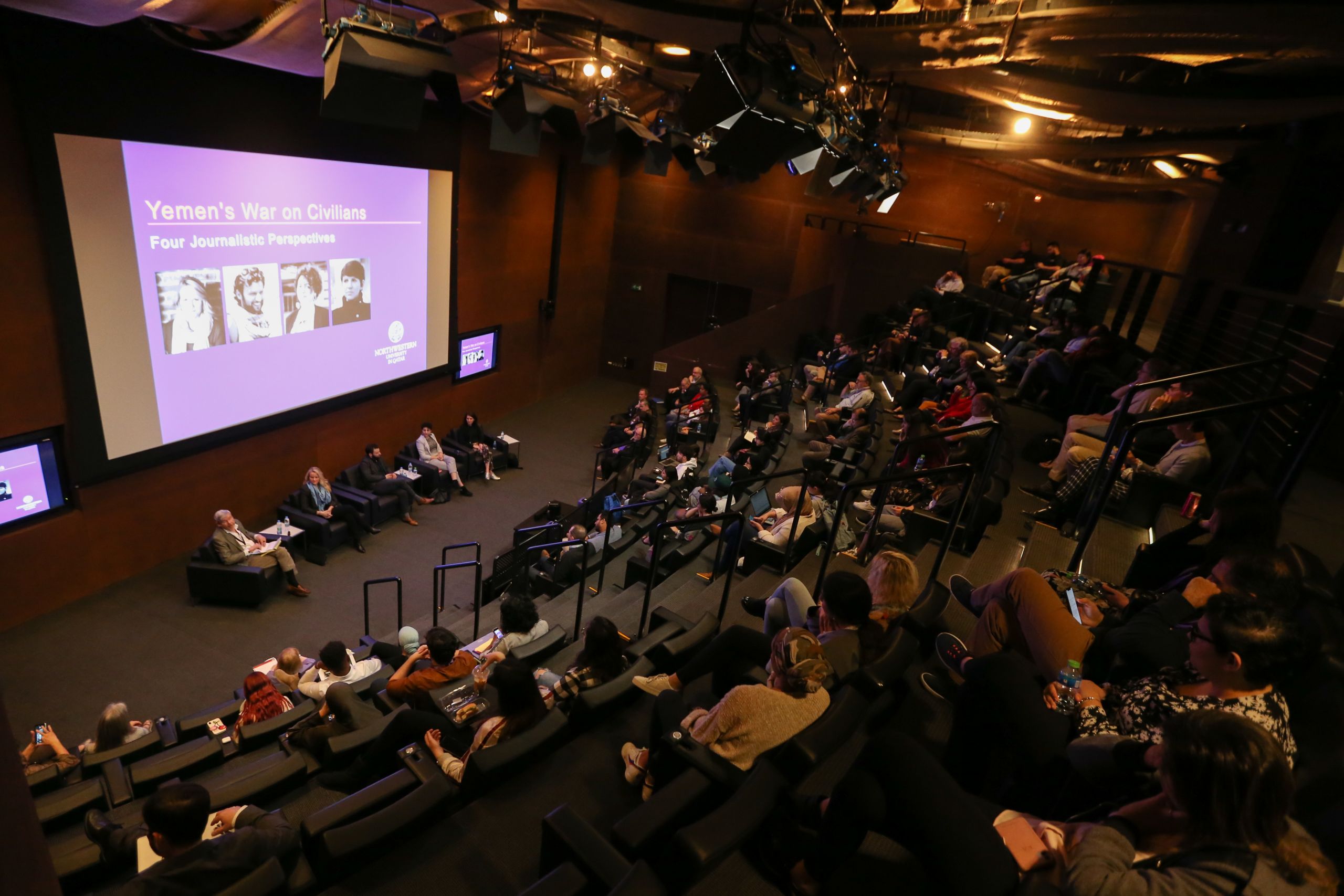
Reporting Fellows
In 2020, the Pulitzer Center awarded fellowships to 40 students from our Campus Consortium and 28 fellowships to post-grads from Columbia and Medill journalism schools.
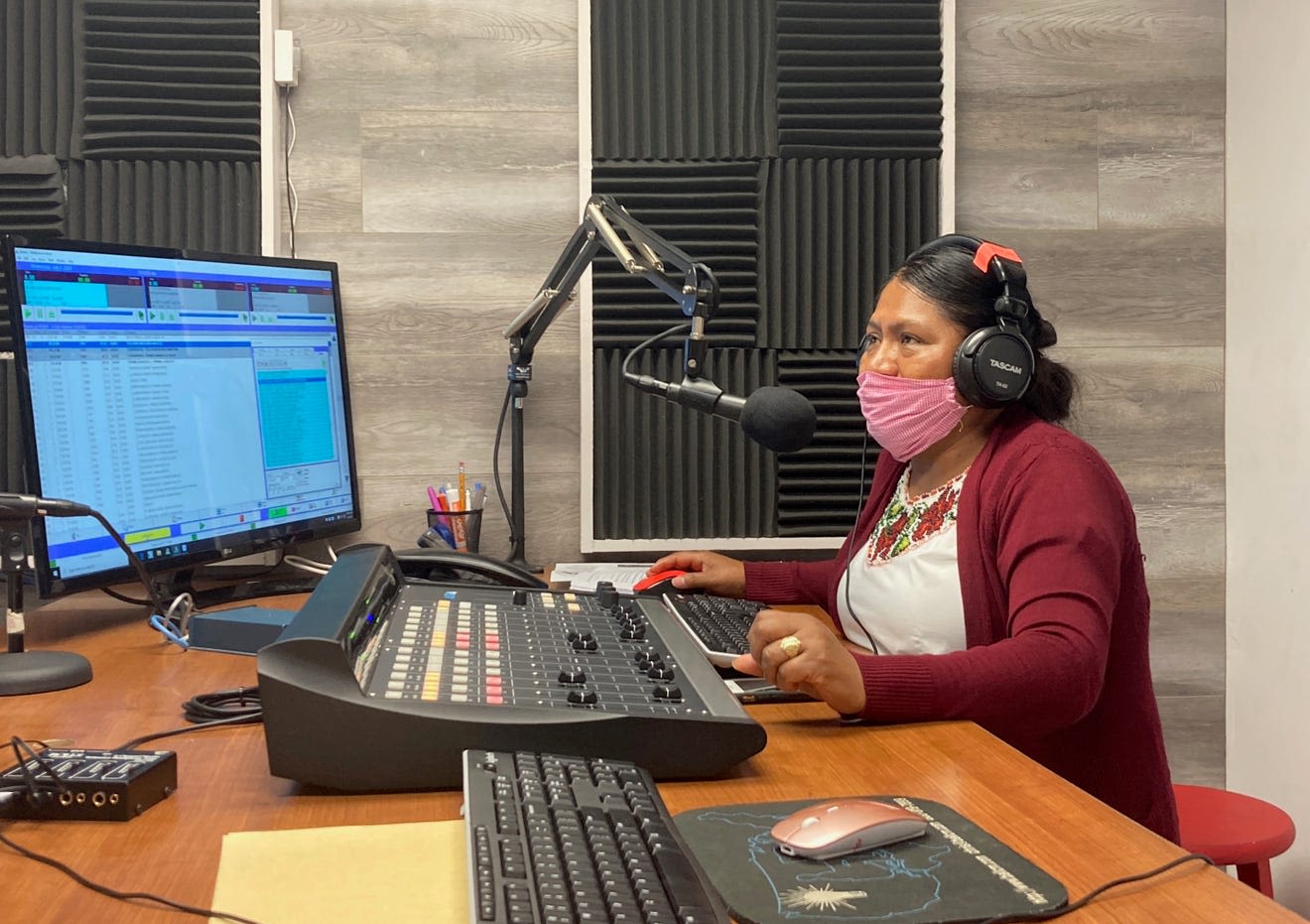
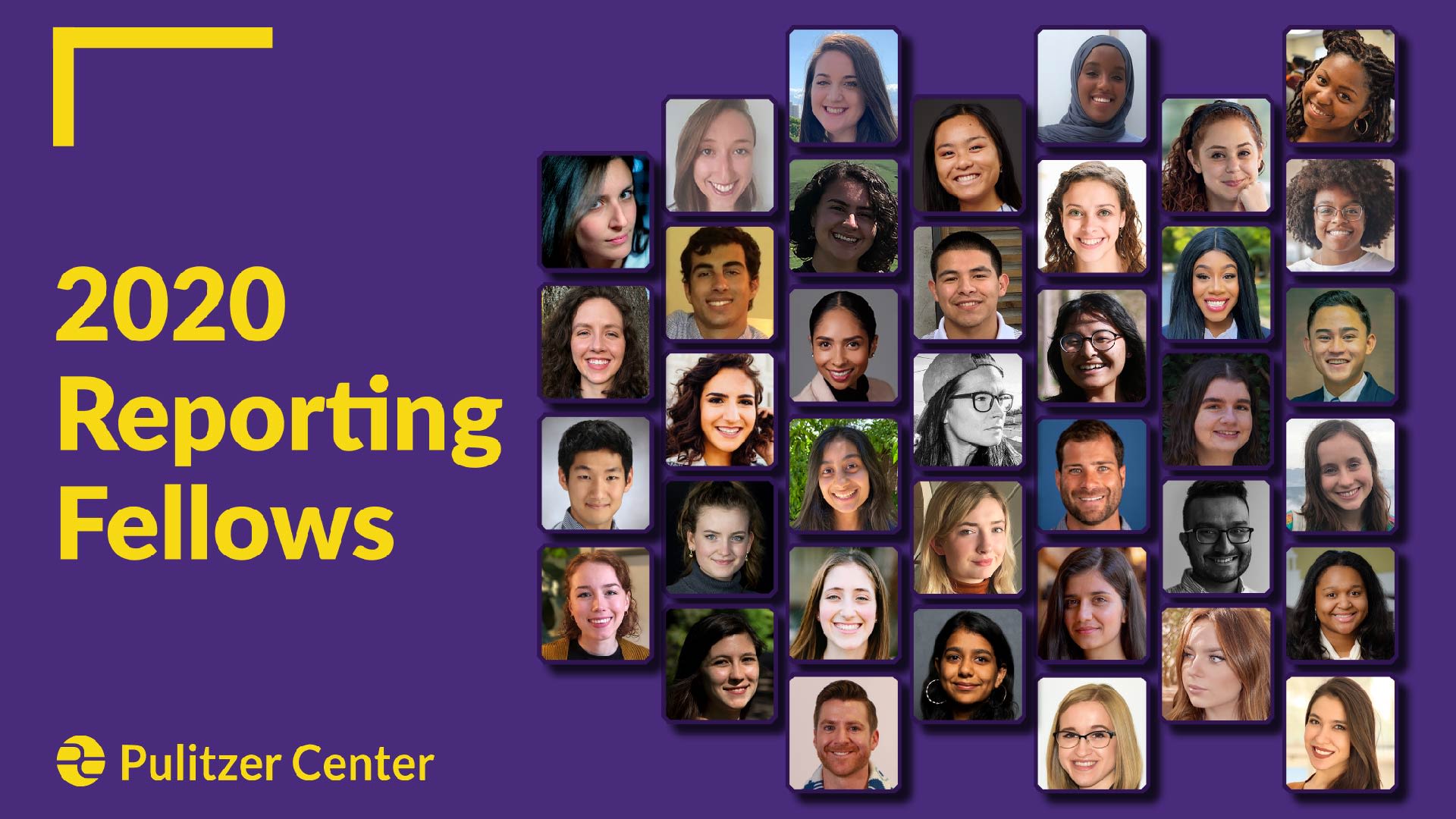
Above: Image by Lucille Crelli. 2020.
Above: Image by Lucille Crelli. 2020.
Reporting Fellows covered stories on climate change, migration, global health, criminal justice, and the impact of COVID-19. Some reported locally or remotely from within the U.S. Others have chosen to delay their reporting until it becomes feasible to travel. The range of topics was both wide and diverse: an inside look at a leprosy clinic in Brazil, the experience of Black migrants in Maine, a California community radio station for Indigenous immigrants from Mexico, among others.
Reporting Fellows published stories on our website and in TIME, Global Health NOW, Yes! Magazine, Hopkins Bloomberg Public Health magazine, The Virginia Quarterly Review, Slate, NPR, Mekong Review, Ventura County Star, The Nation, and NBC News.
To build community and increase networking opportunities during the pandemic, we organized coffee breaks on Zoom and virtual workshops with editors and journalists. These included sessions with the Pulitzer Center editorial team, our Campus Consortium Advisory Council, leading academics, journalists, and editors.
Special Initiatives in 2020
Support for reporting grants for 28 recent graduates from Columbia and Medill journalism schools in response to the impact of the pandemic on the job market.
“The Migrant Experience,” a virtual film festival featuring shorts by Reporting Fellows, which included Home to Home: How a Yemeni Refugee Found Love in South Korea; Holding Fire, about a Yemeni activist fighting for the rights of Muslims; and Guanajuato Norte. The latter can be viewed on The New Yorker website.
Selection of two Justice Fellows as part of this year’s special focus on this issue. Apoorva Mittal, from Medill, is reporting on Islamophobia in India, and Meera Santhanam, from the University of Chicago, on prison abolition and the Innocence Project.
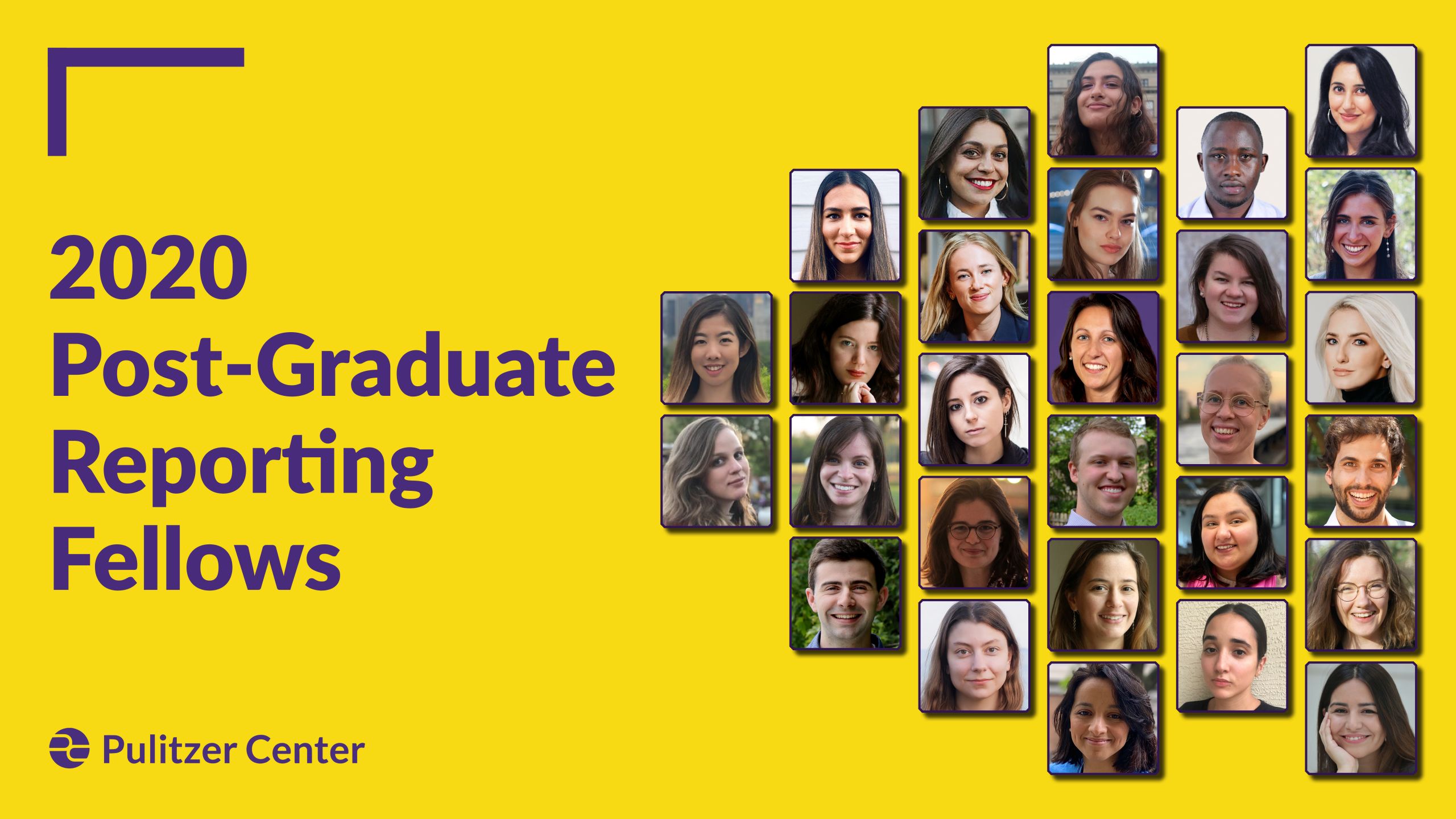
Above: Image by Lucille Crelli. 2020.
Above: Image by Lucille Crelli. 2020.
Trailer for "Victoria's Foil," the story of 22-year-old wheelchair fencer Victoria Isaacson, produced by Brett Forrest and Brian Rya, Columbia University Reporting Fellows. 2020.
Reporting Fellow Virtual Film Festival: The Migrant Experience. Graphic by Libby Moeller. United States, 2020.
Reporting Fellow Virtual Film Festival: The Migrant Experience. Graphic by Libby Moeller. United States, 2020.
"Prescribing Courage," video showing the healing power of Cambodian classical dance, produced by Olivia Norrmén-Smith, McGill University Reporting Fellow. 2020.
In-Focus:
Speaking Out on Coronavirus
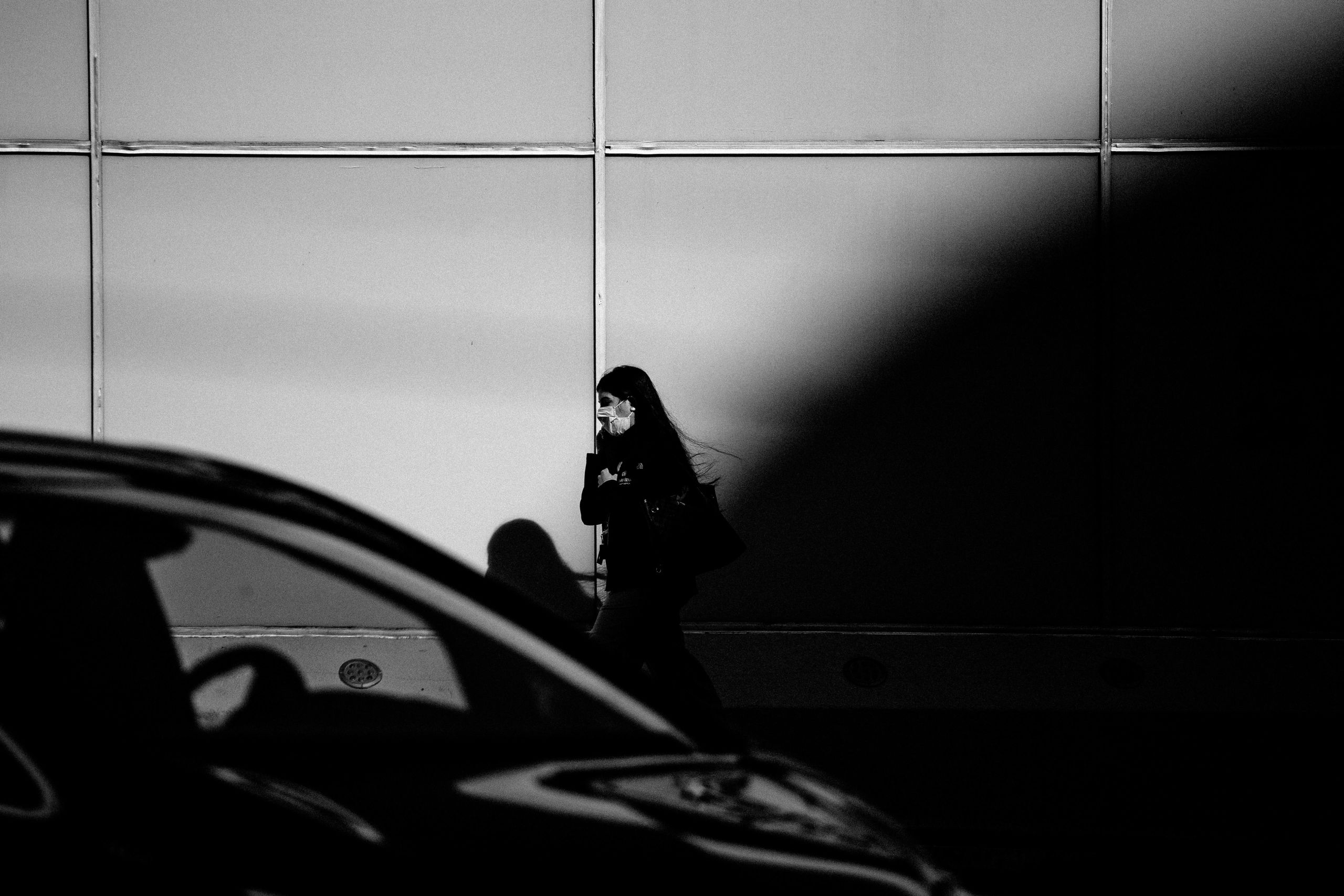
In March 2020, we put out a call to the Campus Consortium community—students, alums, professors, and advisers—to reflect and report on the impact of the pandemic on their universities and the world at large. We have published more than 65 contributions. Some point to profound inequities in our society, a few are deeply personal, and others remind us how much we owe to essential workers. A few excerpts from the Speaking Out on Coronavirus platform:
“‘A lot of these outcomes are not just because of this virus. They are the results of major health inequities fueled by racism and the lack of a functioning universal healthcare system. The cards are stacked against them.’”
Dr. Nahiris Bahamon in a story by Elena Bruess, Medill Reporting Fellow
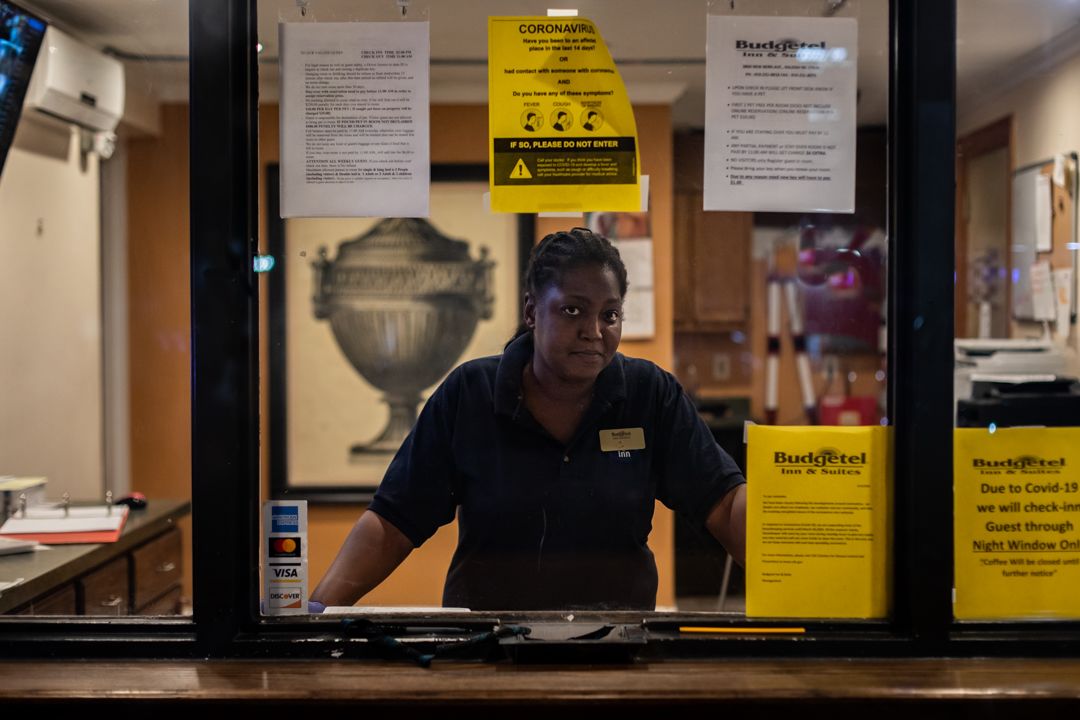
Above: Image by Maranie Staab. United States, 2020.
Above: Image by Maranie Staab. United States, 2020.
"COVID-19 was once a distant threat. Now it was in my lungs.”
Rafael Lima, Wake Forest University Reporting Fellow
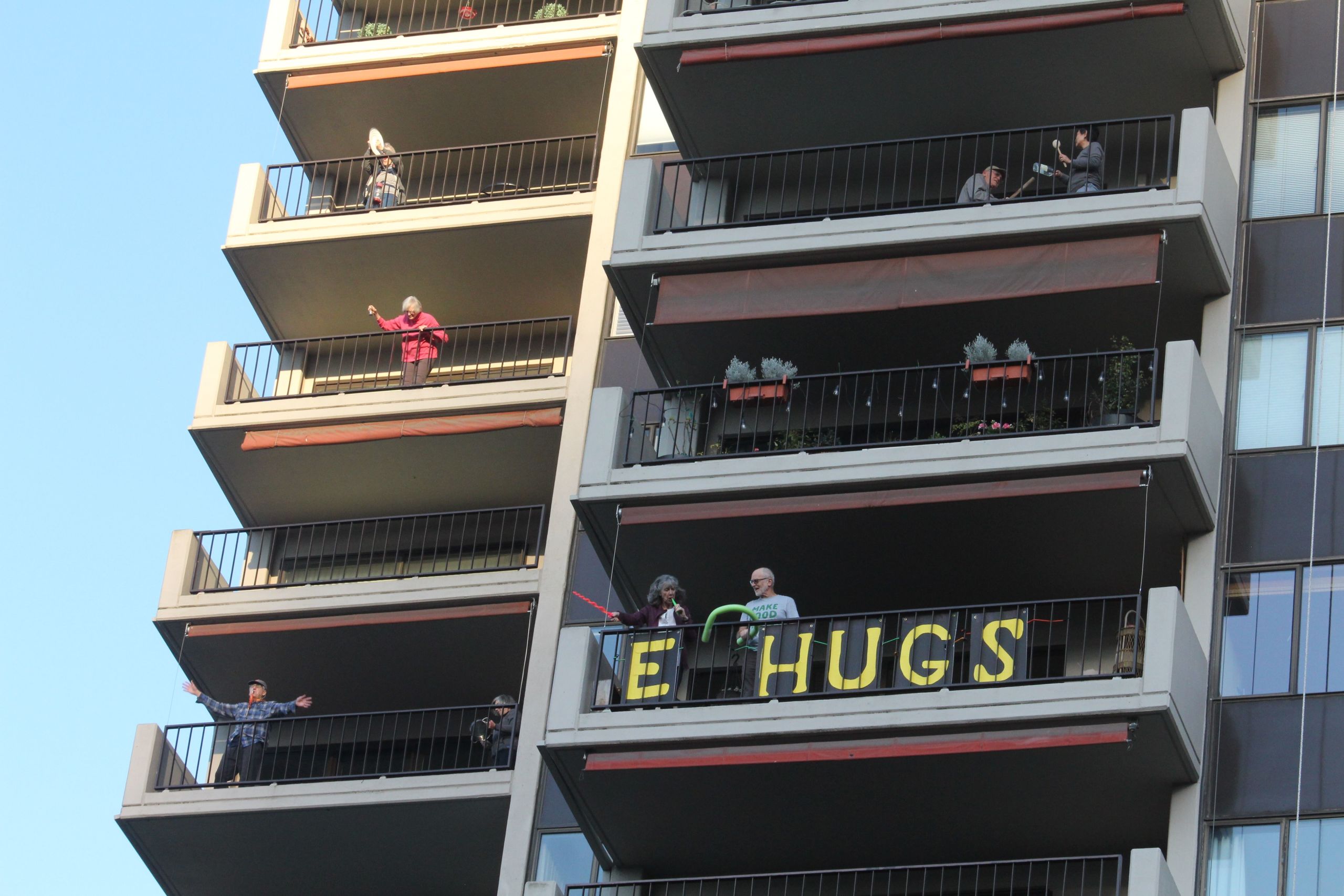
Above: Image by Sarah Fahmy. United States, 2020.
Above: Image by Sarah Fahmy. United States, 2020.
“‘We are four days’ walk from the city. Bringing an ambulance here [Nubri village in Nepal] is not possible, and even to land a helicopter is not an option for us.’”
Pema Gyalpo in a story by Kunsang Choden, Washington University Reporting Fellow
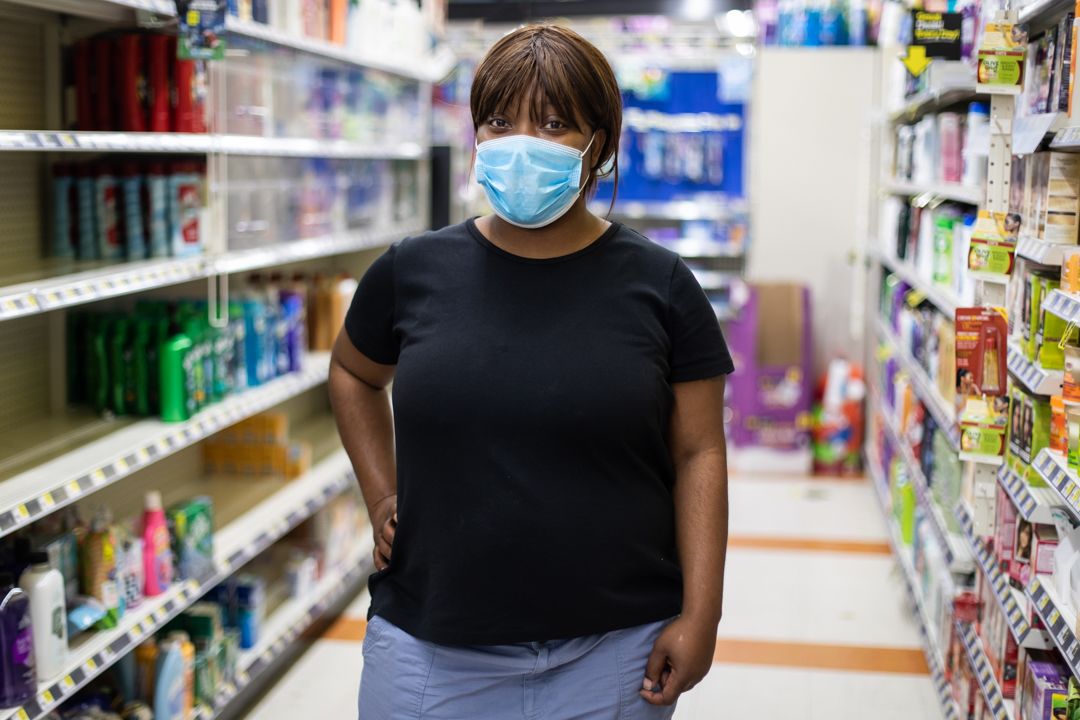
Above: Image by Maranie Staab. United States, 2020.
Above: Image by Maranie Staab. United States, 2020.
"These are hard times; hope can easily go sour.
We can’t give them that;
they can’t take away the crystal of our smiles,
hard won against centuries of scourge and wanton greed."
René Sing-Brooks, LaGuardia Community College Reporting Fellow
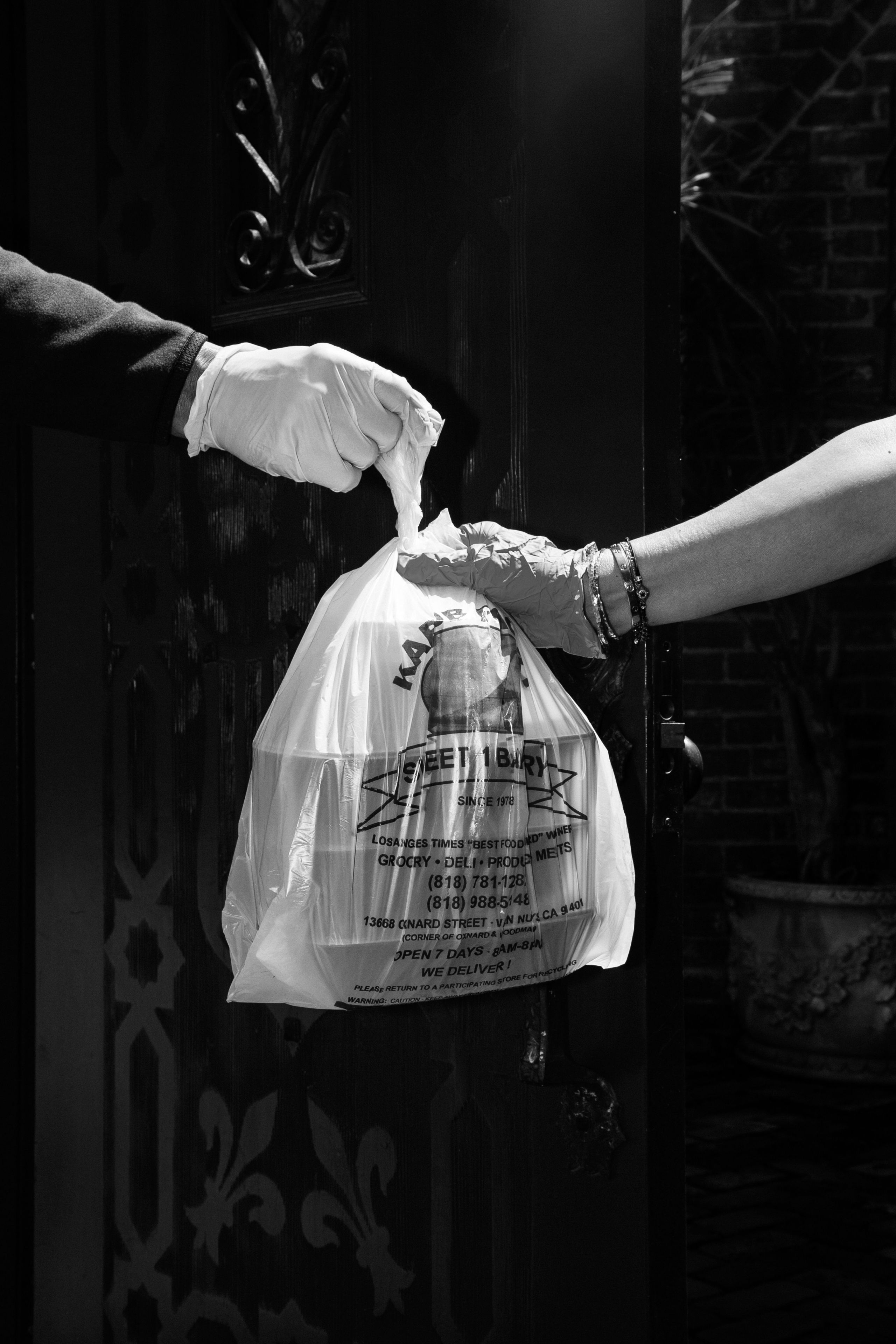
Above: Image by Clara Mokri. United States, 2020.
Above: Image by Clara Mokri. United States, 2020.
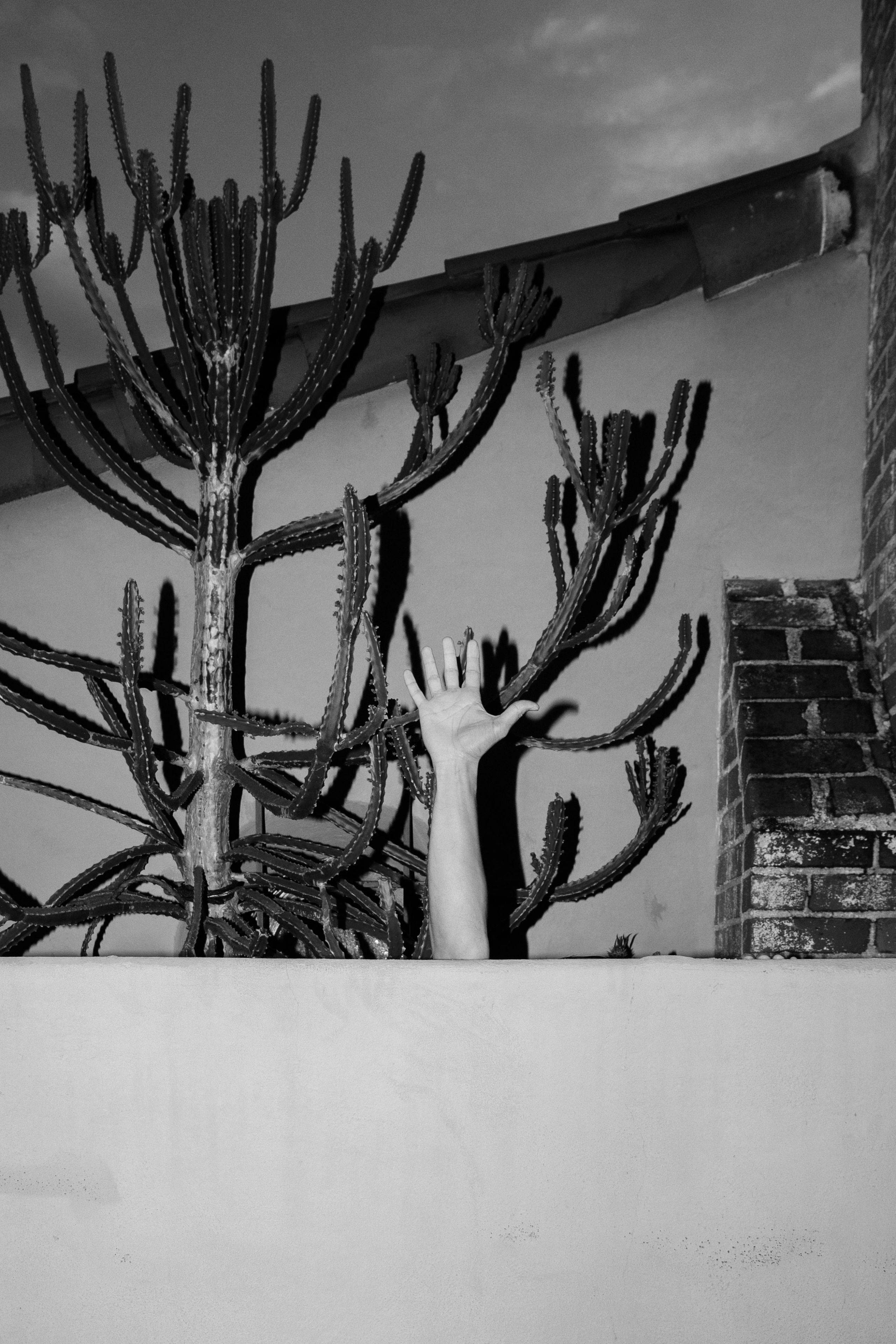
Above: Image by Clara Mokri. United States, 2020.
Above: Image by Clara Mokri. United States, 2020.

Above: Image by Clara Mokri. United States, 2020.
Above: Image by Clara Mokri. United States, 2020.

Above: Image by Clara Mokri. United States, 2020.
Above: Image by Clara Mokri. United States, 2020.
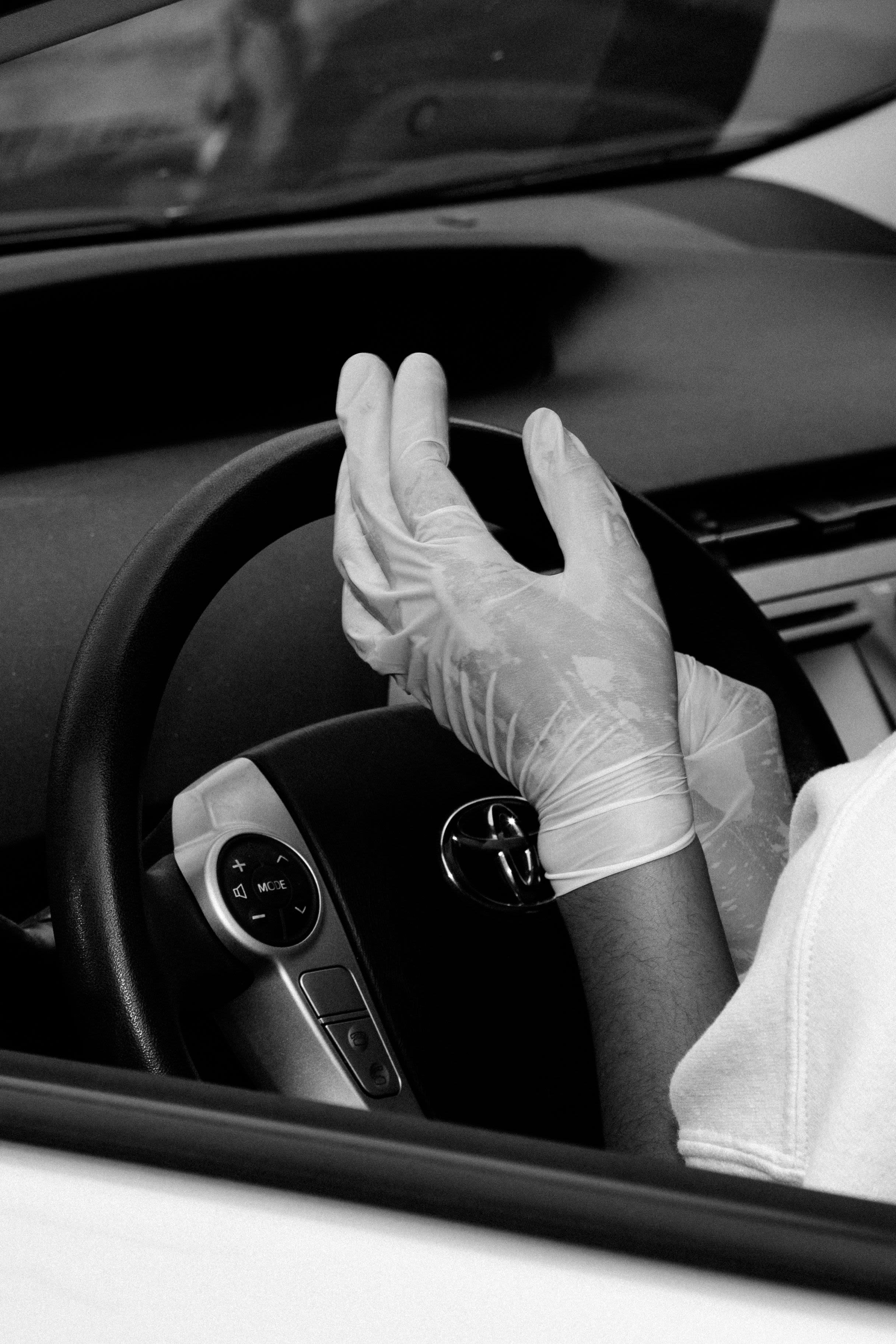
Above: Image by Clara Mokri. United States, 2020.
Above: Image by Clara Mokri. United States, 2020.
K-12 Schools
In 2020, the Pulitzer Center K-12 education team reached nearly 11,000 students and teachers in over 300 events, the majority of which were facilitated virtually after the coronavirus forced classes worldwide to move online or into hybrid schedules in March.
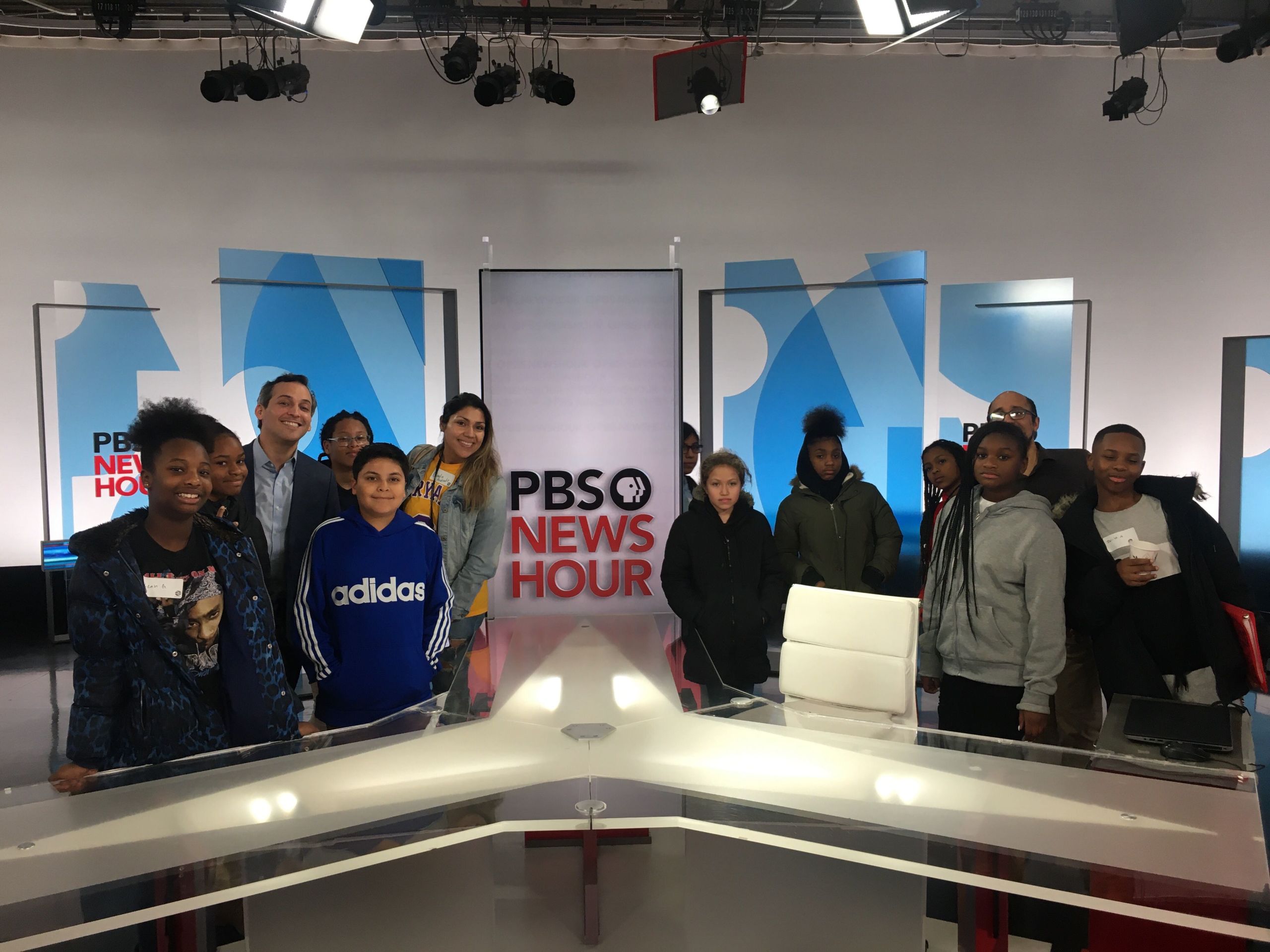
The K-12 team’s virtual offerings expanded this year to include webinars led by grantees, media literacy and storytelling workshops for students, film screenings in partnerships with news outlets, and interactive professional development workshops for teachers that were led in partnership with universities, school districts, and nonprofit education organizations.
Increased digital marketing of our K-12 digital resources also led to a nearly 50 percent increase in submissions to both our fall and spring writing contests, as well as expanded engagement with the Center’s 300-plus lesson plans and instructional videos. Some recent highlights include:
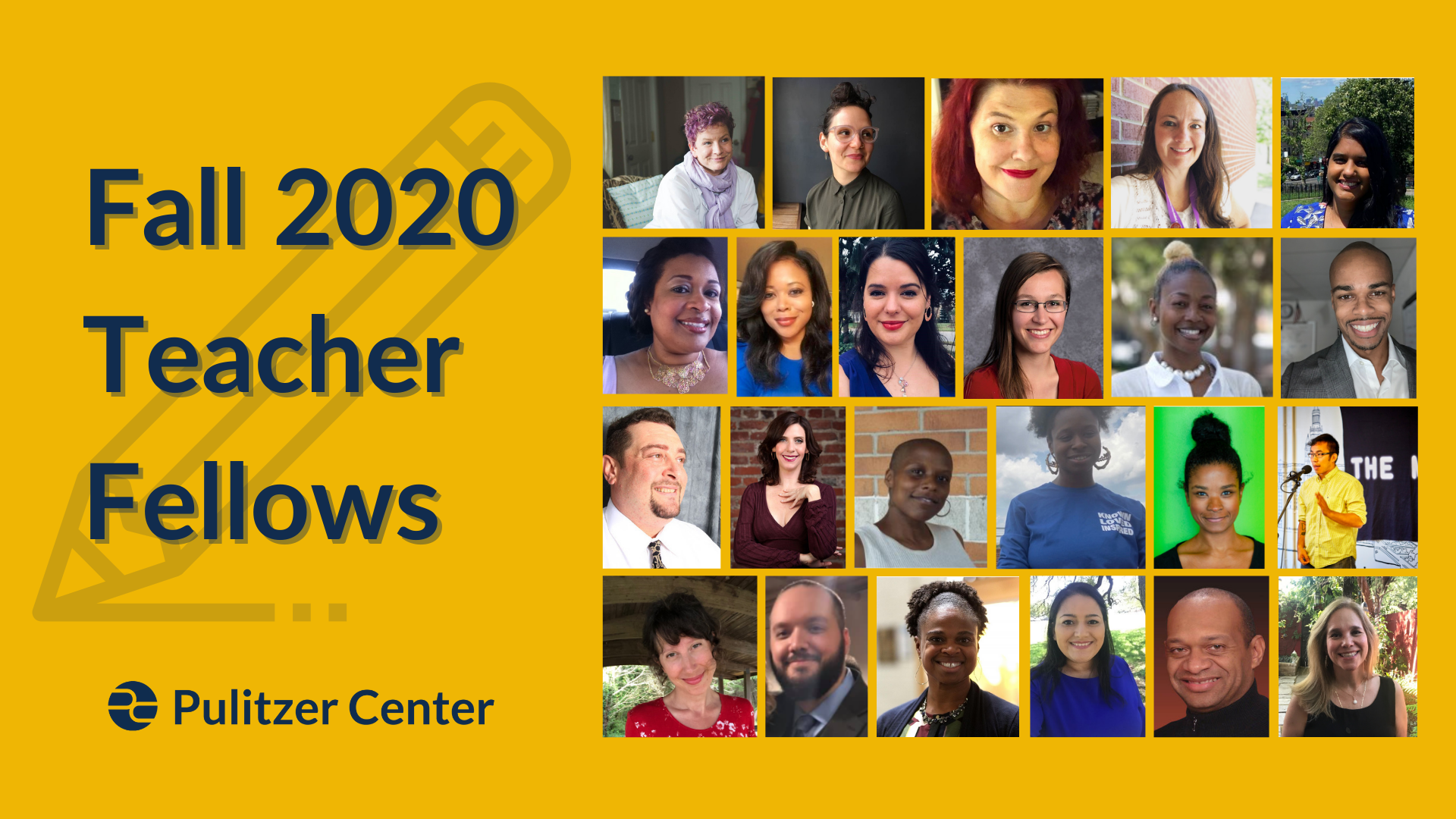
Above: Image by Amanda Nyakela Nyang’oro. 2020.
Above: Image by Amanda Nyakela Nyang’oro. 2020.
Inaugural Teacher Fellowship Program
Twenty-three educators teaching grades three through 12 in 12 states joined our inaugural Teacher Fellow cohort in fall 2020, selected from among 166 highly qualified applicants. In two tracks—one dedicated to Media, Misinformation, and the Pandemic, and the other to Arts, Journalism, and Justice—teachers engaged in weekly discussions with award-winning journalists, the Center's education team, and one another. Fellows ultimately designed and taught short units connected to their fellowship theme, the journalism they explored, and their own curricula, and made their innovative lessons freely available to other educators on our Lesson Builder platform.
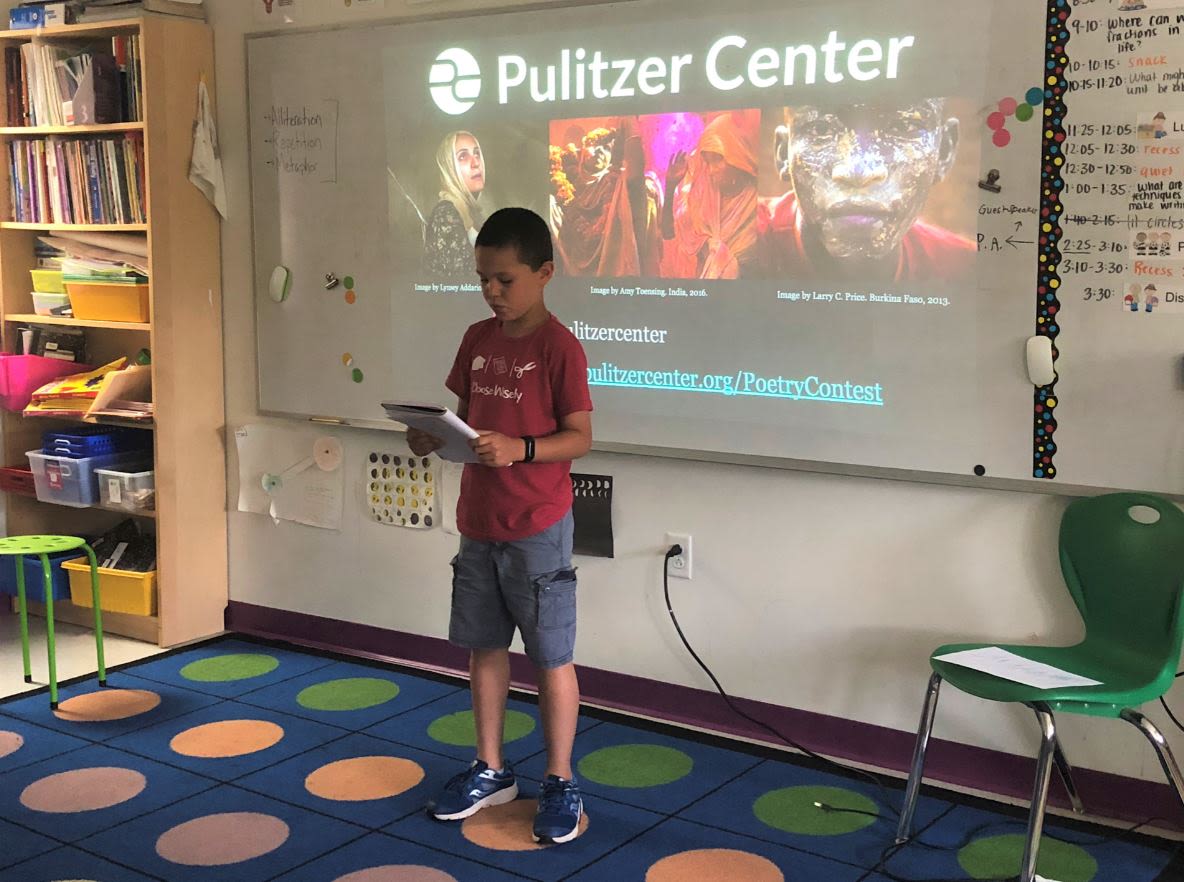
Above: Image by Hannah Berk. United States, 2019.
Above: Image by Hannah Berk. United States, 2019.
Student Contests
Participation in our annual student contests doubled in 2020 as students made local connections to global issues through creative and persuasive writing. In the spring, over 950 students from across the U.S. and the world submitted poems that elevate underreported stories to the Fighting Words poetry contest. In the fall, over 800 students in grades three through 12 wrote letters to their representatives arguing for a solution to an underreported issue in their community as part of our Local Letters for Global Change contest. More than a thousand additional students connected to our 2020 contests via virtual workshops.

Above: Image by LaQuisha Hall. United States, 2019.
Above: Image by LaQuisha Hall. United States, 2019.
The 1619 Project in Schools
In a year when racial injustices were in the headlines all too often, we were heartened to see educators take up our materials on The 1619 Project in unprecedented numbers, with more than 4,500 teachers from across the country reporting that they have used the materials since the project launched. This success has helped us make the case for a large-scale rollout of teacher support, scheduled for launch in February 2021.
“As a journalism teacher, the webinar helped me [know] how to attend to my students' needs most specially in this challenging time.”
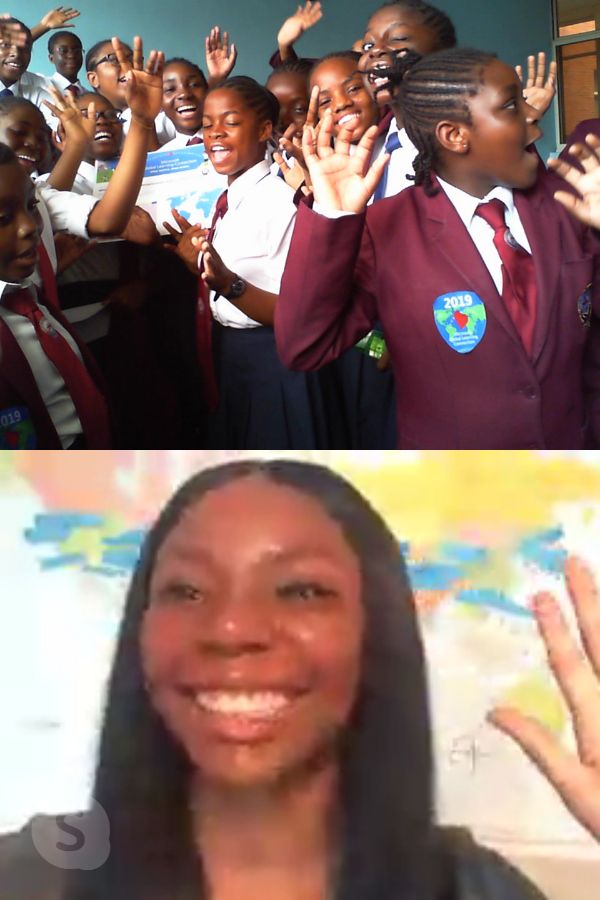
Above: Image by Monique John. 2020.
Above: Image by Monique John. 2020.
“It was very engaging and I really enjoyed the energy of the hosts. I learned that underreported stories are easier to find than I thought, so long as you're willing to take a look.”
Background images in order of appearance:
- Image by Grayson McKinney. United States, 2019.
- Image by Pauline Werner. United States, 2020.
- Image by Lucille Crelli. United States, 2020.
- Image by Lea Waldridge. United States, 2020.
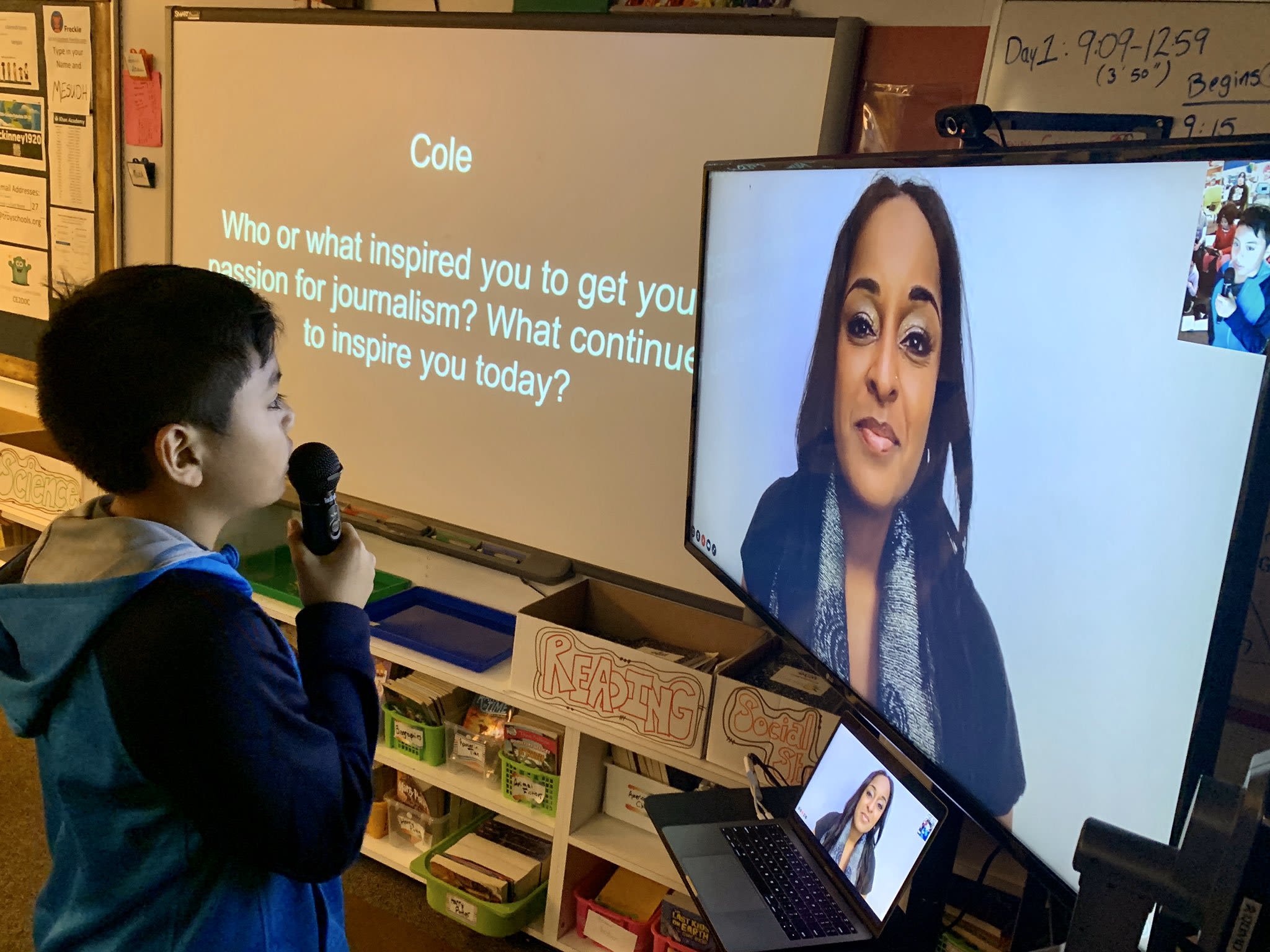
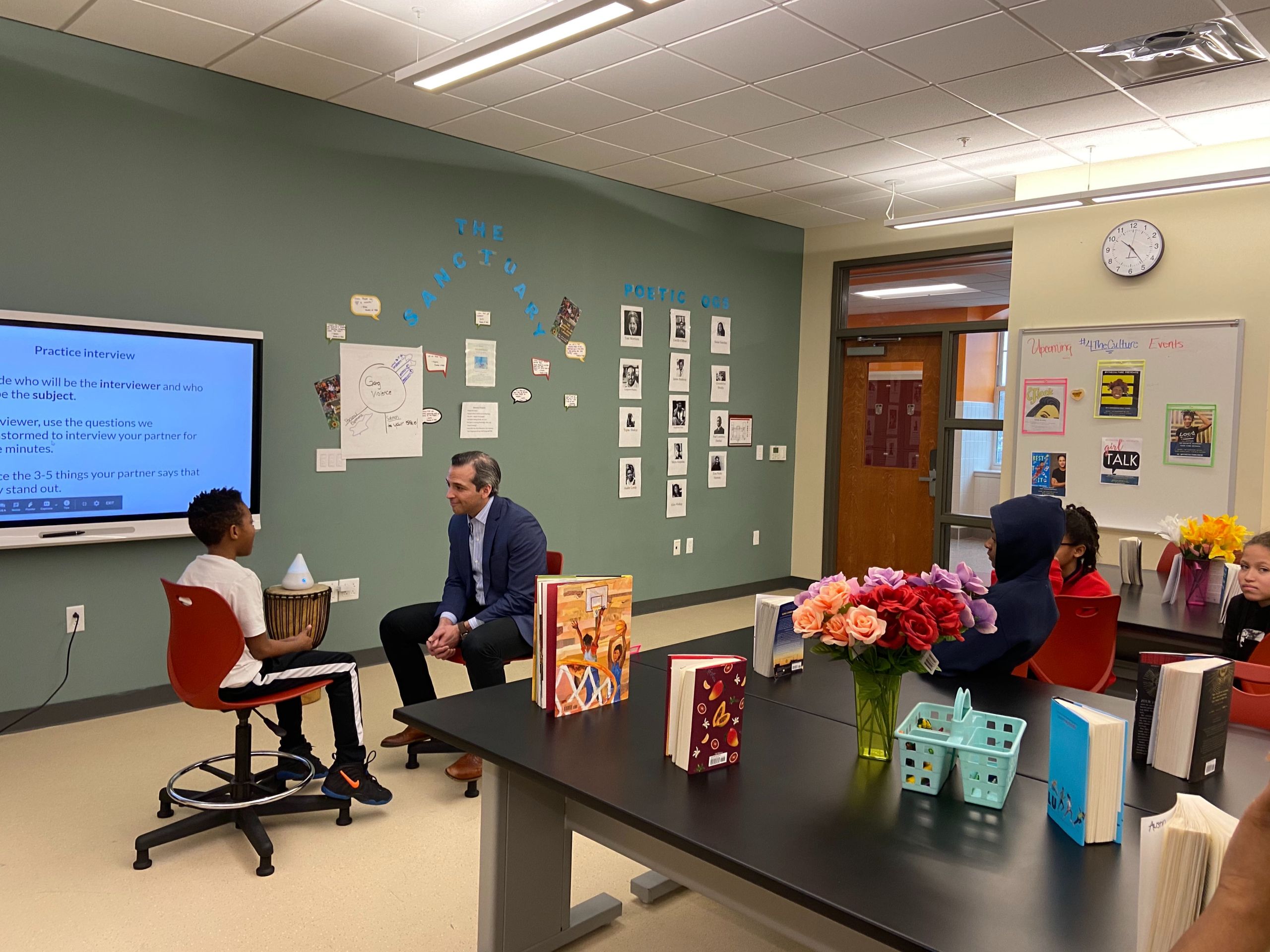
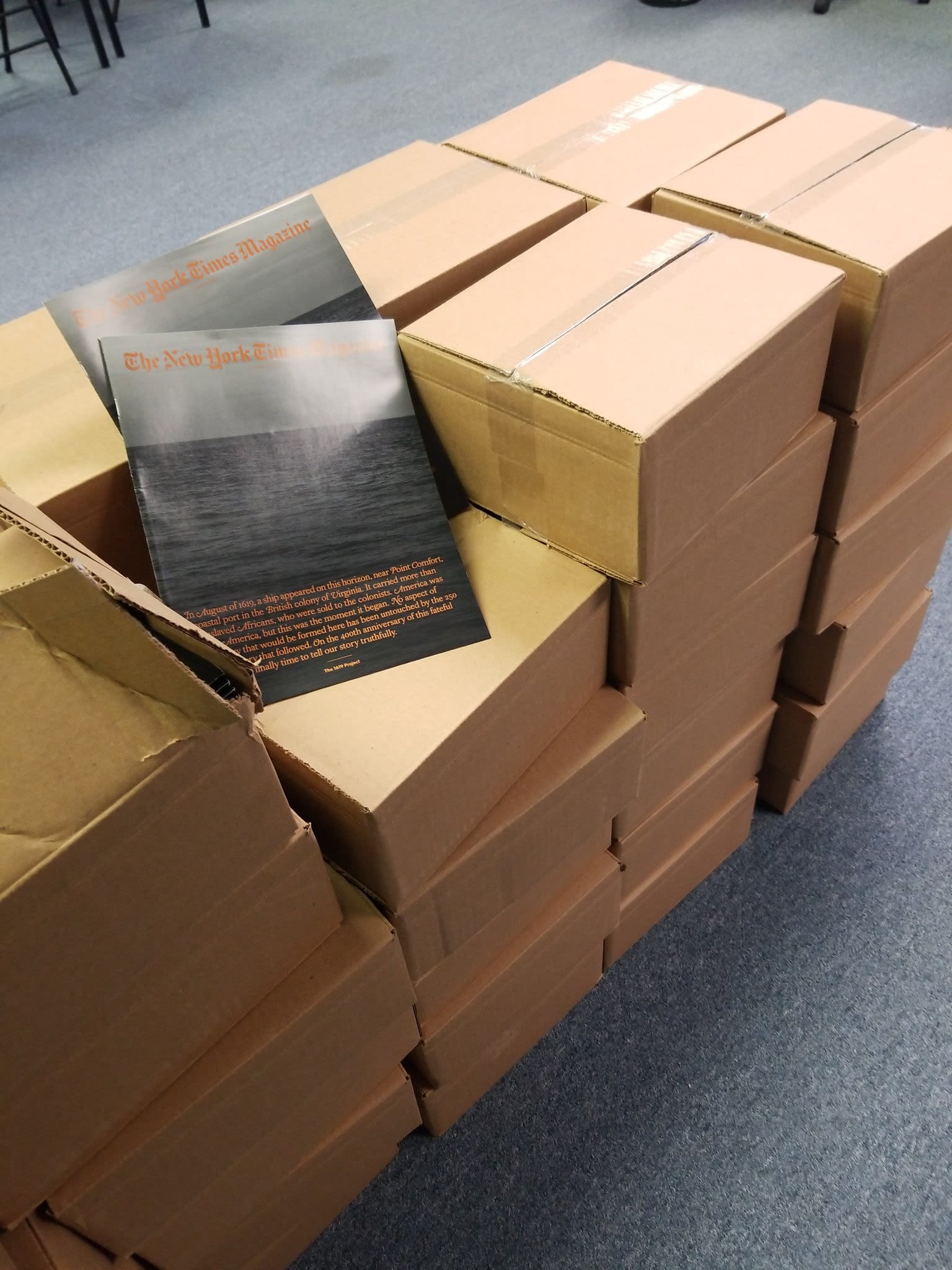
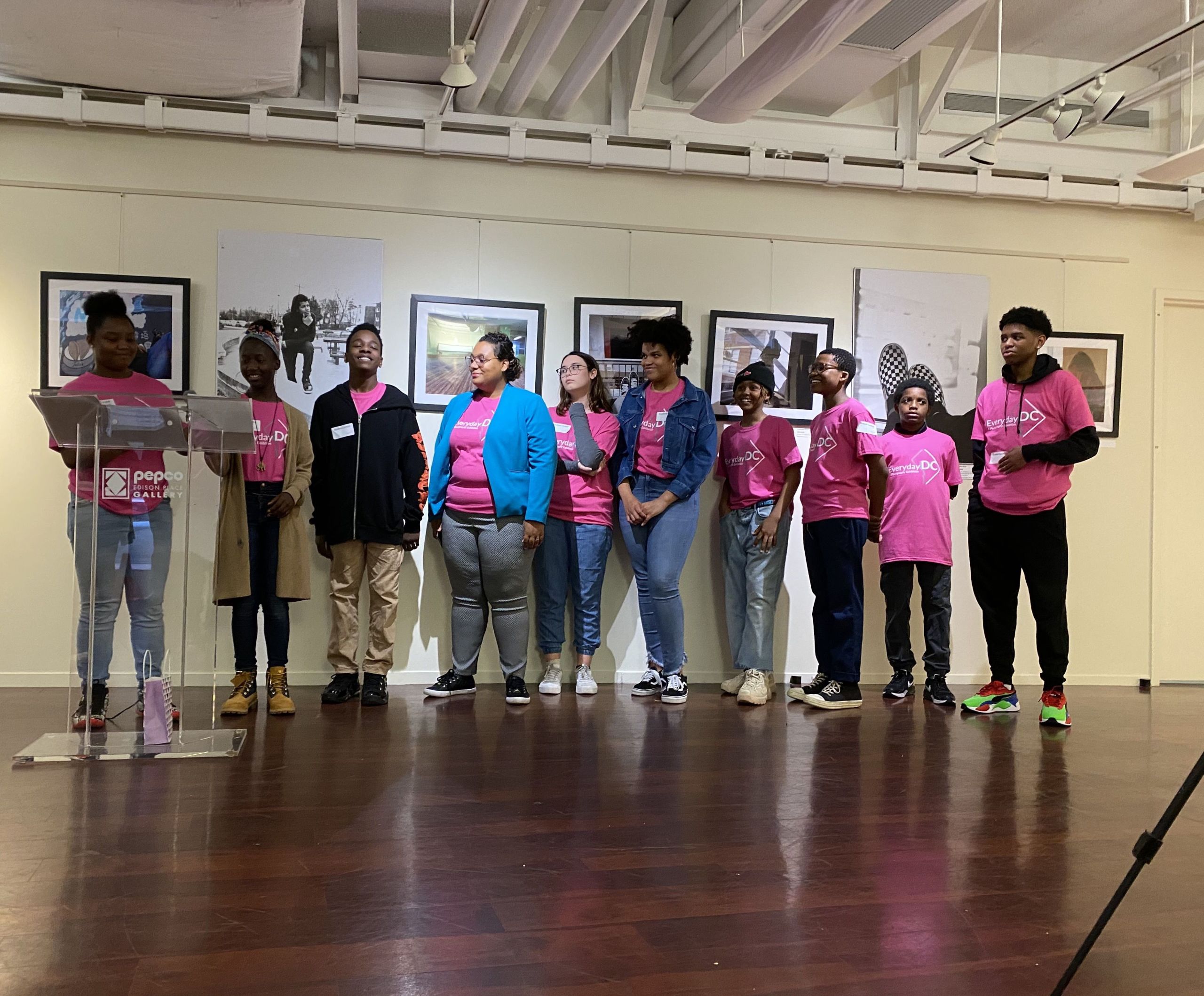
Outreach
"These community engagements not only serve a public interest mandate to inform, but also provide additional income to journalists in need."
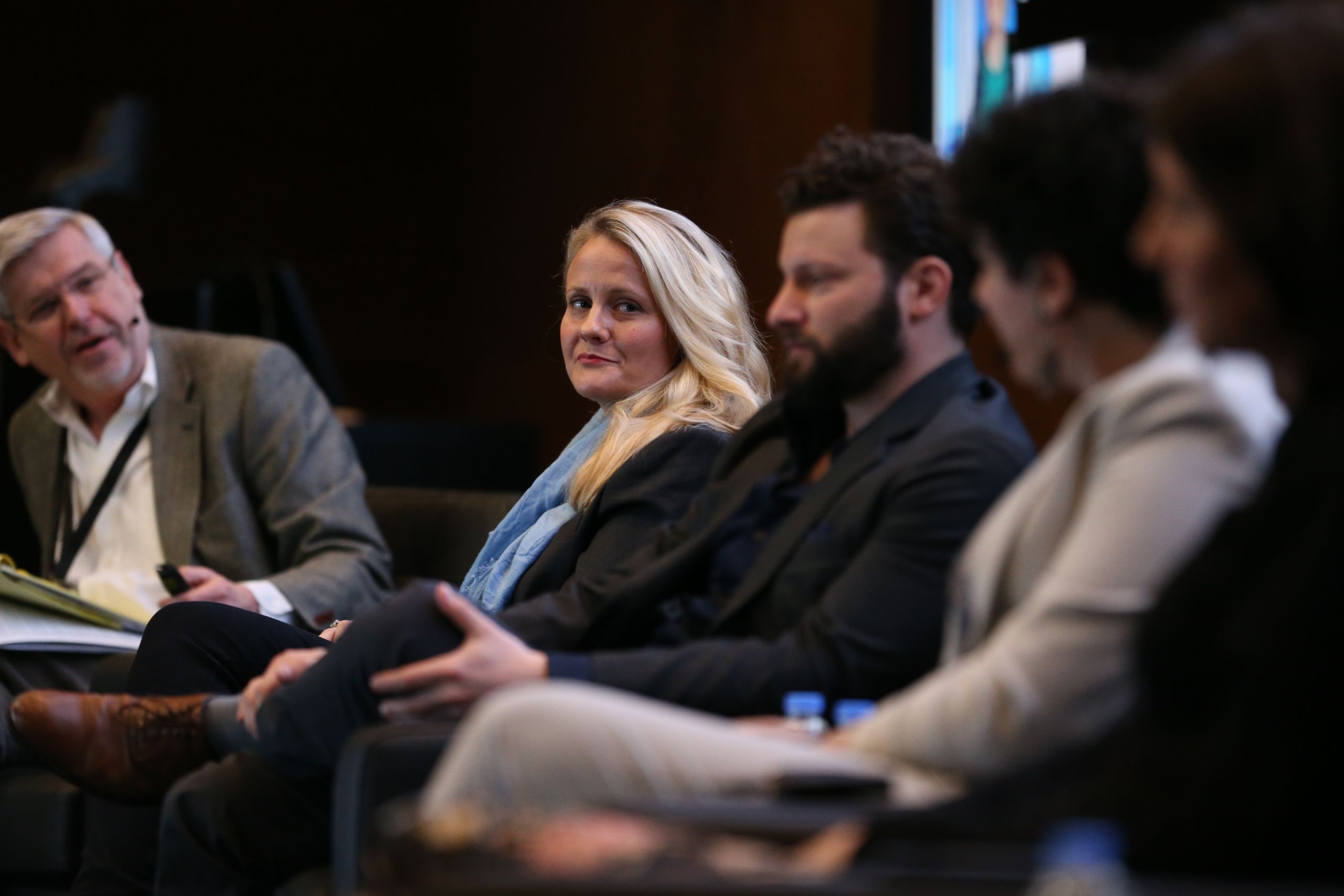
The Pulitzer Center began 2020 by bringing together journalists in conversations with the public, focusing on Latin America and the Caribbean. With the COVID-19 forced shutdowns we made a dramatic pivot—and by the end of the year we had created more than 30 in-person and online programs that were attended by more than 7,270 people from around the world, focused on themes such as the U.S. carceral system, migration, health, and the environment.
Latin America and Haiti
In early 2020, our in-person Talks @ Pulitzer events focused on political and environmental reporting from Latin America, with journalist Mariana Palau speaking on the 52-year Colombian conflict and the 2016 peace deal, and photographer Marcio Pimenta on the fires in the Amazon and efforts of the Wampi ethnic group to protect their territory in Peru from exploitation. In New York City we created Then and Now: Ten Years After Haiti’s Earthquake with journalists, photographers, authors, and a poet, all whom we have supported over the years.
Science and Health On-Line Talks @ Pulitzer Series
In response to developing news about the coronavirus pandemic, we organized a four-part series that engaged our journalist grantees on the public health stories connected with COVID-19, other infectious diseases, and global health more broadly.
From Climate Migration and Sea Level Rise to Endangered Species
A large share of the Pulitzer Center’s 2020 virtual events focused on stories about the environment and the impact of climate change on communities across the globe, among them:
A joint event with ProPublica where Abrahm Lustgarten shared climate migration reporting and data-driven modeling from our collaboration between ProPublica and The New York Times Magazine.
The two-part fall series The Coastal Southeast: Rising & Hazardous Waters was based on reporting projects from North Carolina, South Carolina, and Georgia. It tackled issues from changes in public opinion on climate science to flesh-eating ocean bacteria and other related public health concerns.
Screenings and conversations in conjunction with the Environmental Film Festival in the Nation’s Capital, with four Pulitzer Center-supported films focusing on rainforests around the globe and another on the race to save North Atlantic right whales from extinction.
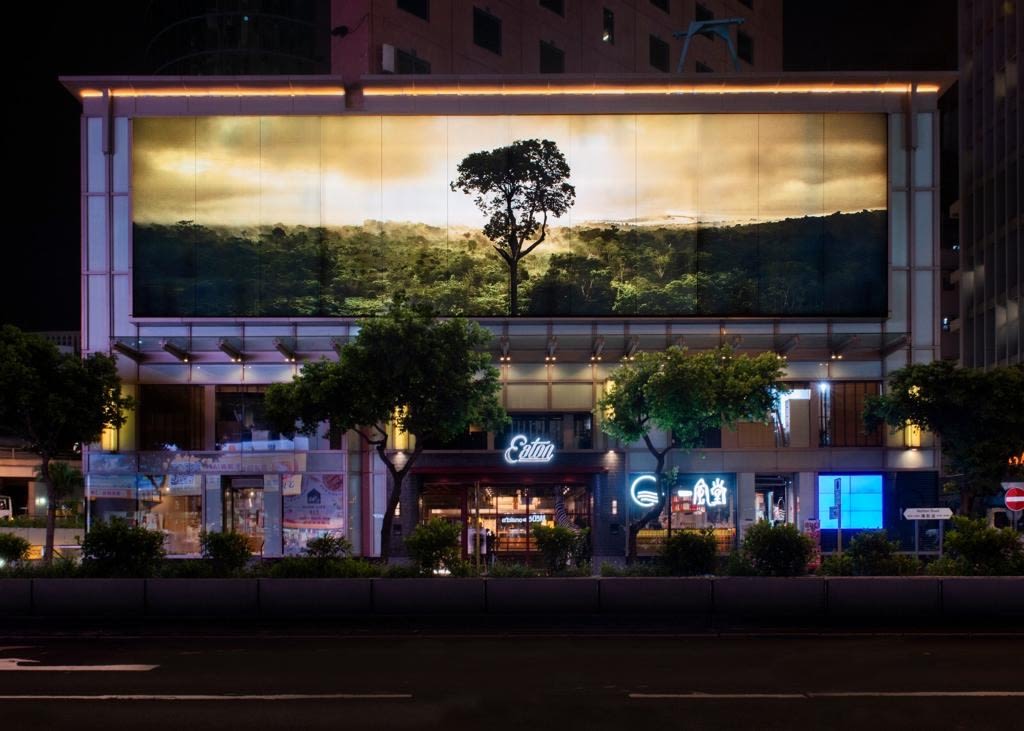
Above: Image courtesy of Eaton Hotels. Hong Kong, 2020.
Above: Image courtesy of Eaton Hotels. Hong Kong, 2020.
Photography and Workshops
Pulitzer Center grantees Pablo Albarenga and Ana Maria Arévalo developed outdoor exhibitions as part of New York’s Photoville 2020 and spoke to a virtual audience about their projects. Albarenga’s exhibition, Seeds of Resistance, depicts young Indigenous people defending land from exploitative human practices and climate change. Arévalo’s exhibition centers on Venezuelan women in the carceral system and the conditions they face inside jails. In the spring, we also created a workshop-inclusive series with journalist Tristan Ahtone, historian Robert Lee, and data journalist Geoff McGhee on their project, Investigating Land Grants to Universities.
“I covered the Karabakh conflict from 1990-95 for the Christian Science Monitor including the fighting. This war brought back many memories for me and I read all the coverage. Yours stood out for me because of your insistence on providing historical context and balance, which is difficult in any war.”
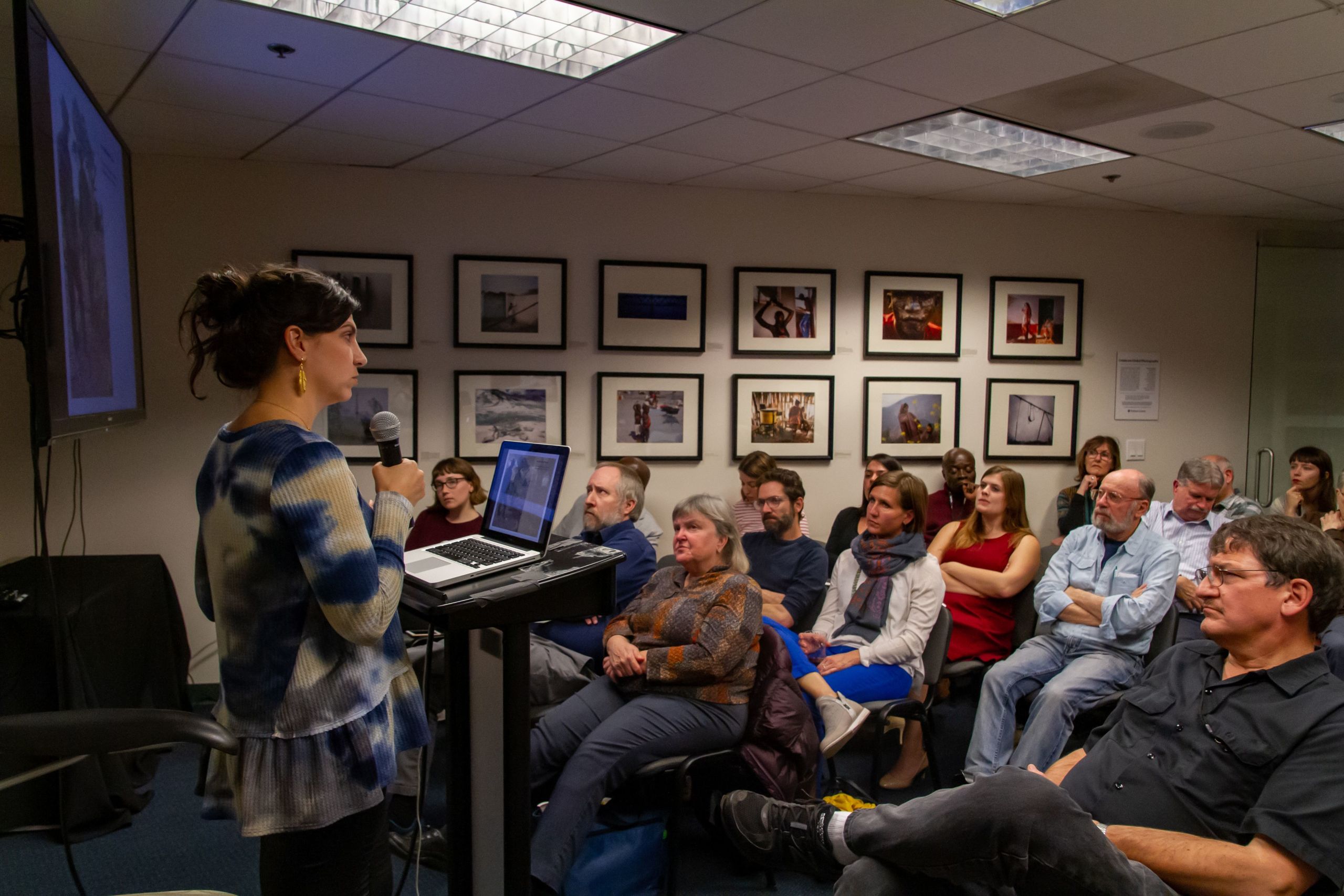
Above: Image by Claire Seaton. United States, 2020.
Above: Image by Claire Seaton. United States, 2020.
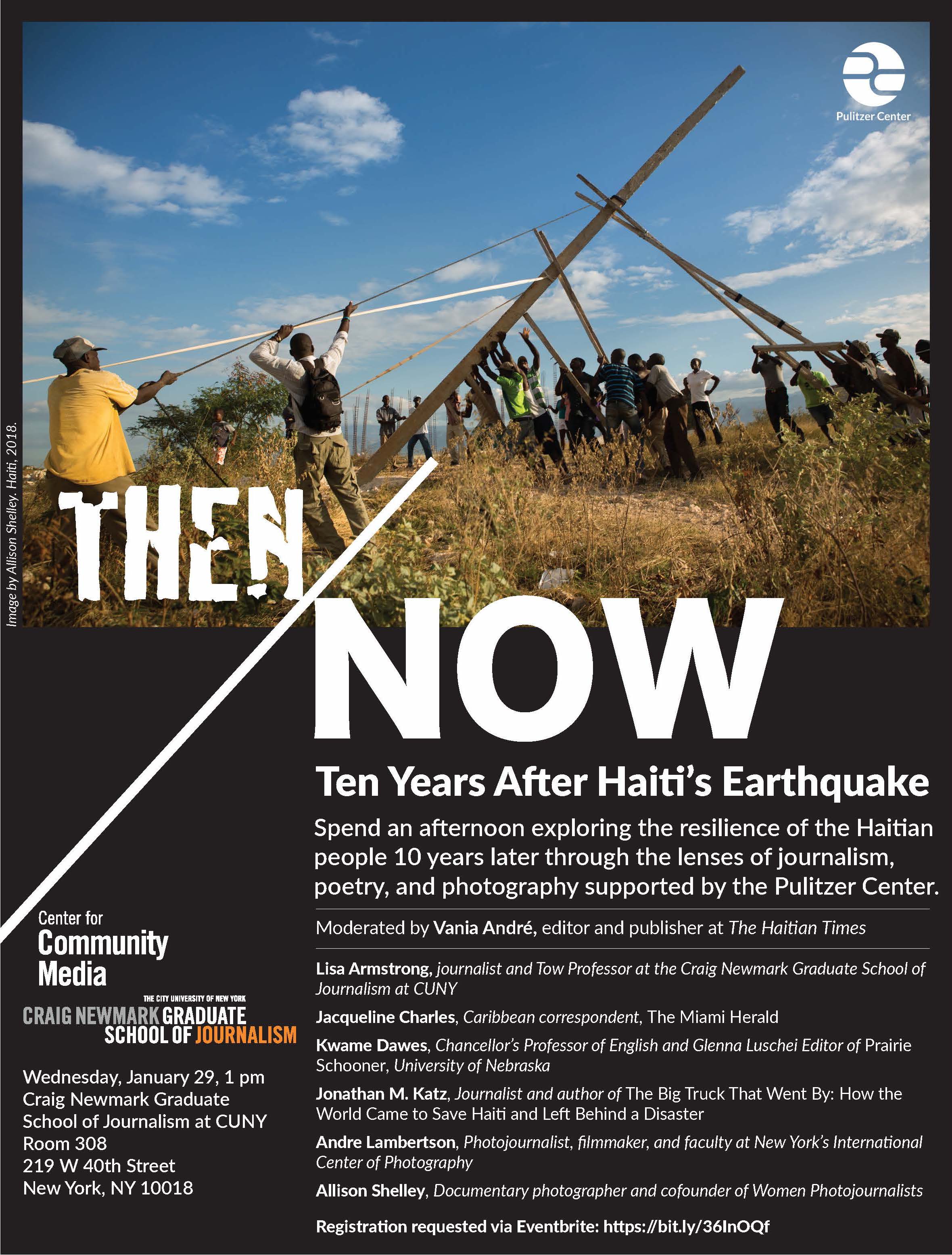
Above: Image by Lucille Crelli. 2020.
Above: Image by Lucille Crelli. 2020.
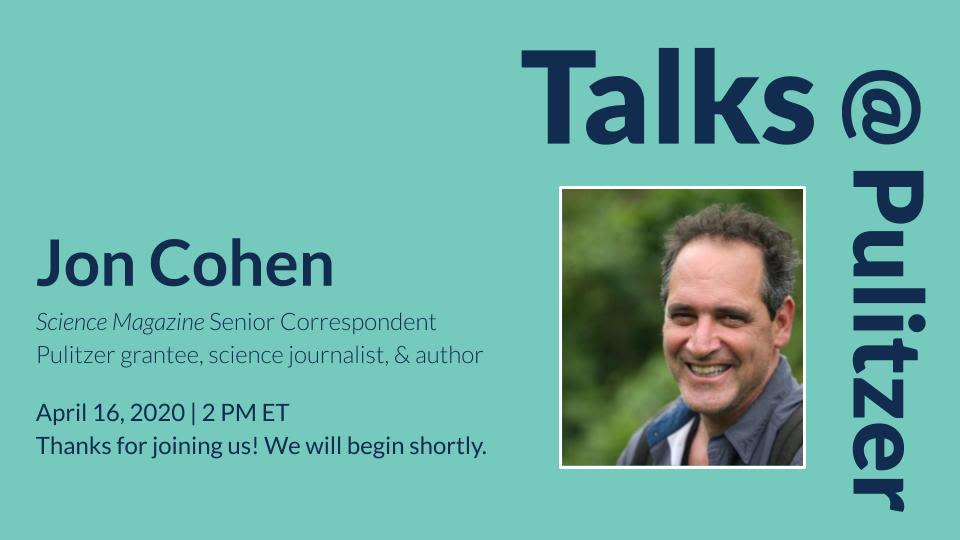
Above: Image by Lucille Crelli. 2020.
Above: Image by Lucille Crelli. 2020.
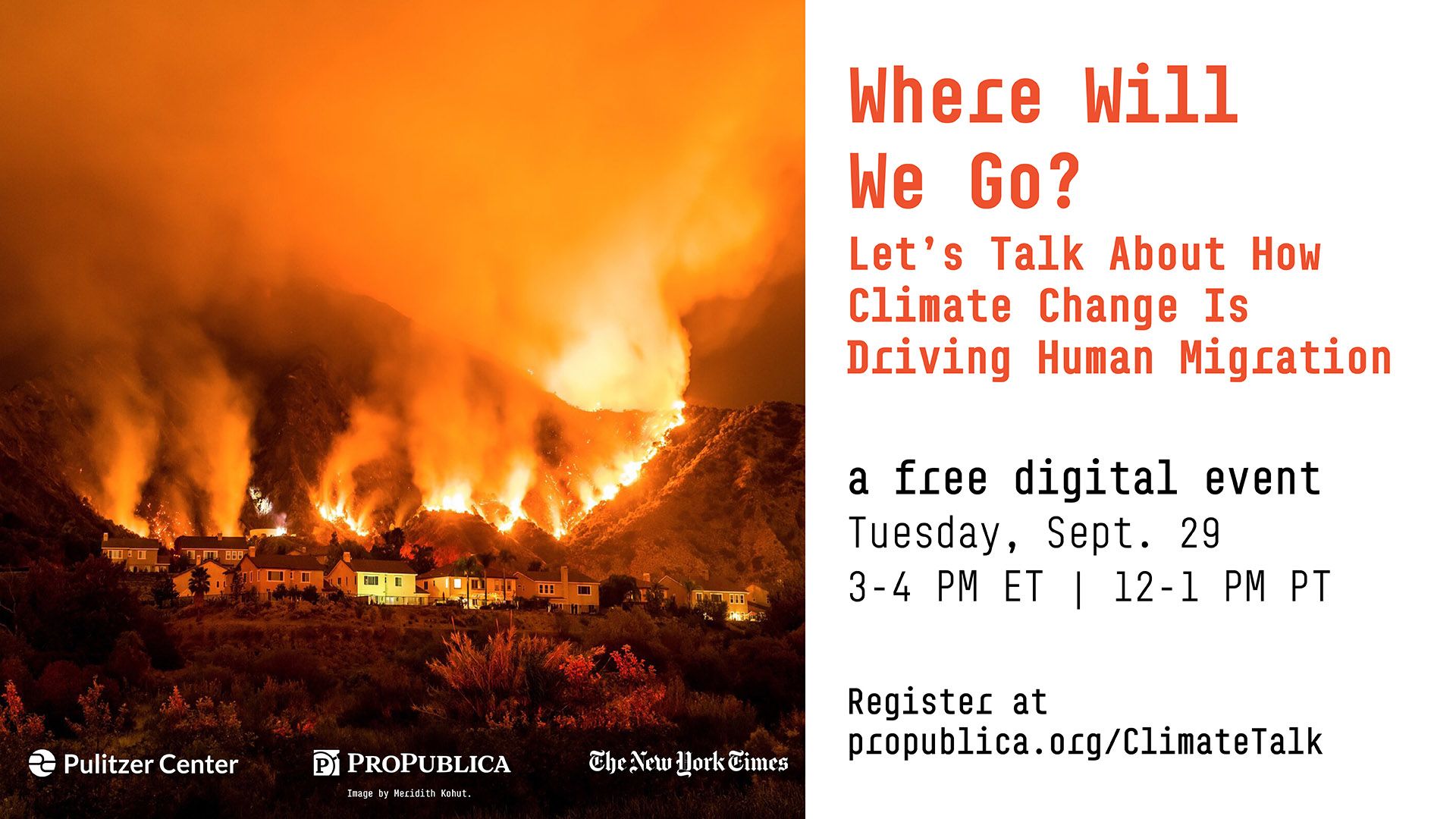
Above: Image by Lucille Crelli. 2020.
Above: Image by Lucille Crelli. 2020.
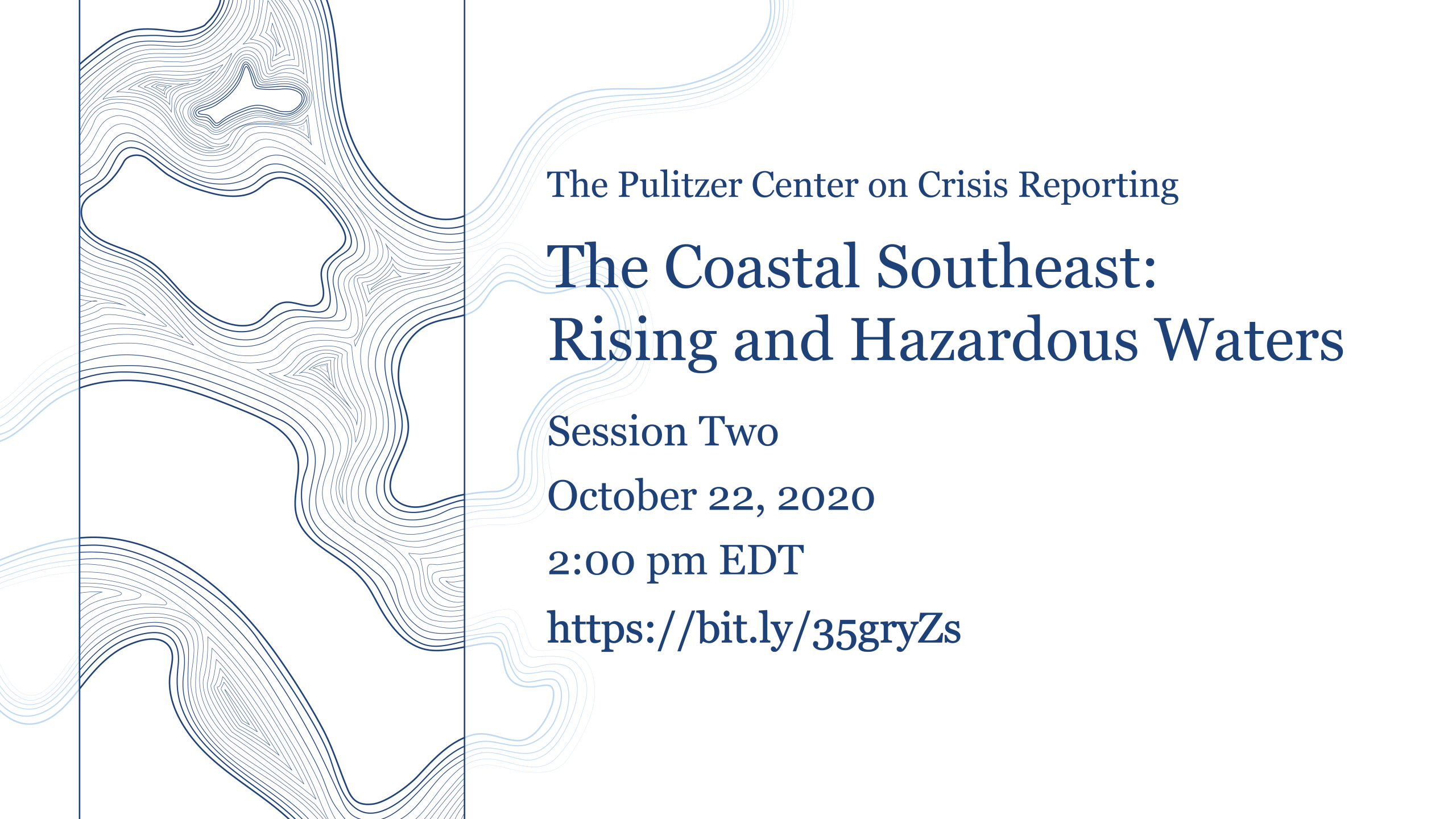
Above: Image by Lucille Crelli. 2020.
Above: Image by Lucille Crelli. 2020.
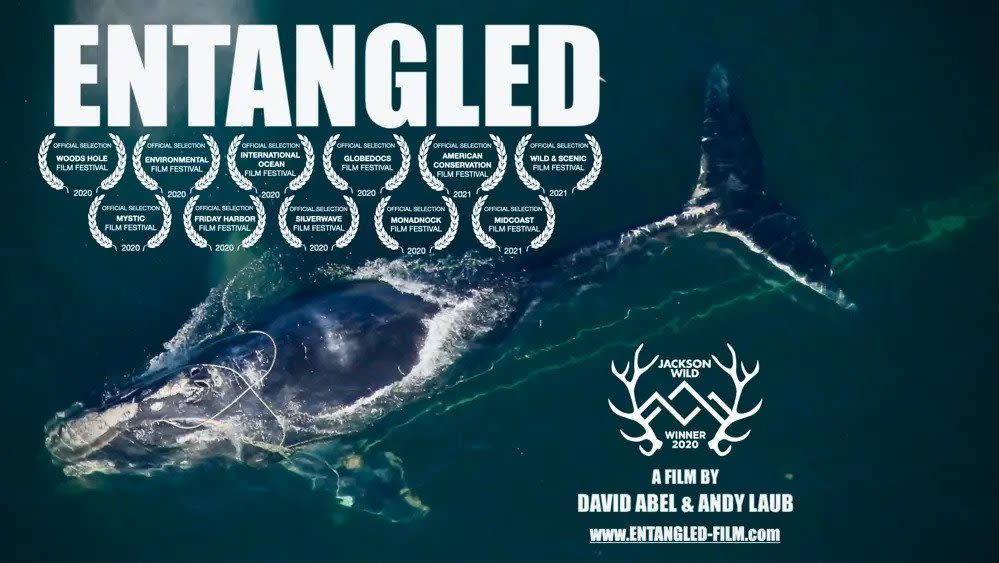
Above: Image courtesy of David Abel. 2020.
Above: Image courtesy of David Abel. 2020.
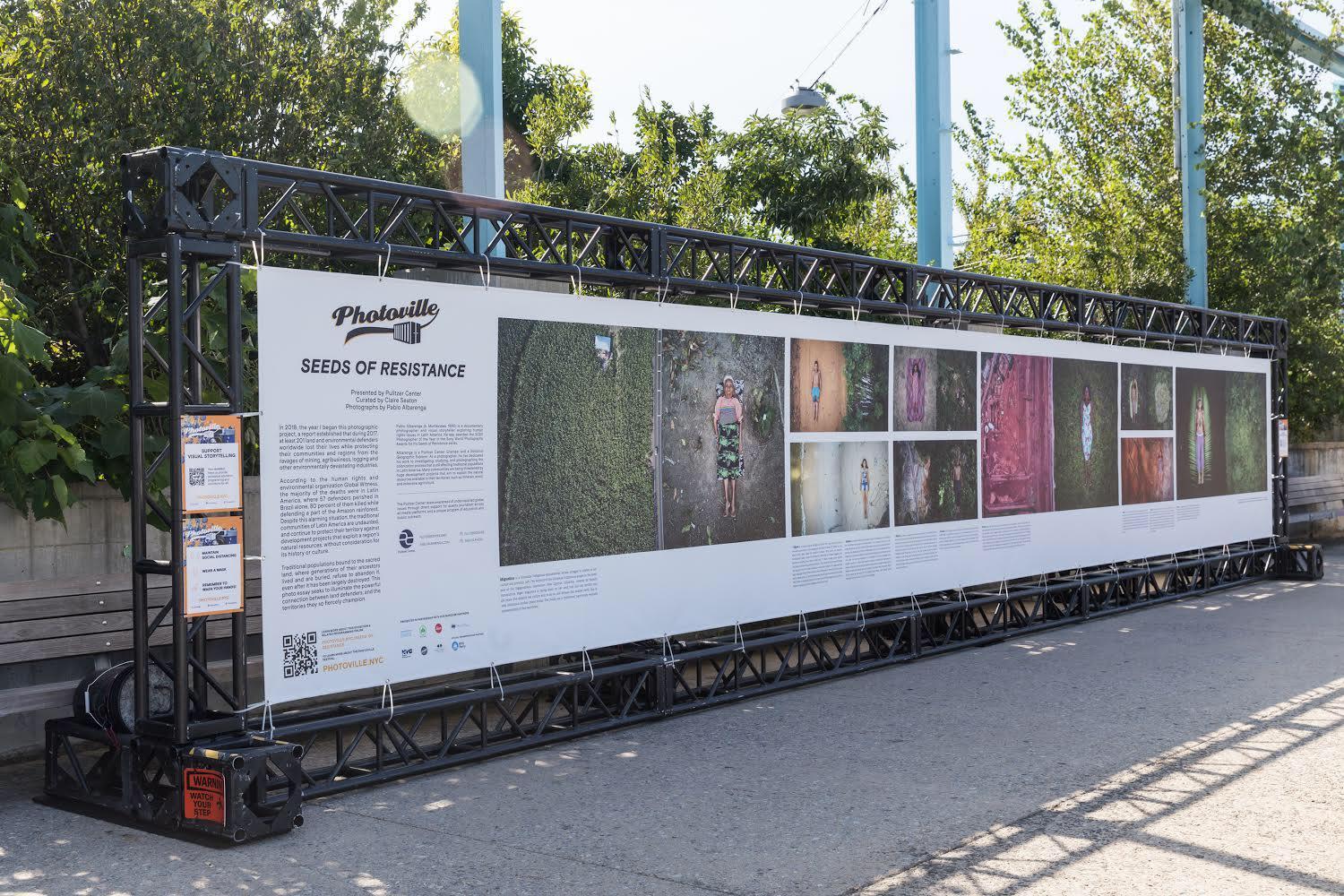
Above: Image courtesy of Arepita. United States, 2020.
Above: Image courtesy of Arepita. United States, 2020.
Focus on Justice

The Pulitzer Center kept issues of justice at the forefront of our reporting and our conversations in 2020. In place of our fourth annual conference—canceled because of COVID-19—the Pulitzer Center created the Focus on Justice series engaging journalists, artists, and community leaders through 15 virtual public sessions and reaching more than seven times the number of participants as our previous in-person conferences. Those sessions ranged from conversations with formerly incarcerated individuals to performances about solitary confinement.
“As an American, I learned just how little I really know and understand about our immigration policies and how vital it is for me to become more informed. I thank all the panelists for their hard work and dedication. Because of them I will continue to educate myself and others in hopes of becoming even a small part of the solution.”
Above: Video by Holly Piepenburg. 2020.
Performances
In October, the Pulitzer Center produced three virtual performances of The BOX, a play about solitary confinement written by grantee Sarah Shourd. Spatial justice activist Liz Ogbu moderated a post-performance conversation between Shourd and actor Dameion Brown about the making of the virtual production. Earlier in the summer, Shourd joined Rhodessa Jones, director of The Medea Project: Theater for Incarcerated Women, in a conversation about theater’s ability to heal in the context of the carceral system.
Continuing our fall performance series, “artivist” Liza Jessie Peterson presented excerpts from her play, The Peculiar Patriot, and her recent work, Do You Really Want to Know? During the virtual event, Peterson discussed her theater work and advocacy for incarcerated populations.
Conversations
The Focus on Justice virtual series explored diverse justice issues covered by our grantees, from the experiences of children whose parents are incarcerated to voter suppression in the U.S.:
Carol Rosenberg, a Pulitzer Center-supported journalist for The New York Times, and David Cole, national legal director of the American Civil Liberties Union (ACLU), on legal and human rights issues at Guantánamo over the last 18 years.
Pulitzer Center grantees Maria Hinojosa, Anna-Catherine Brigada, and Maria Zamudio on the myriad challenges facing individuals at the U.S. border and those navigating U.S. immigration laws.
Journalist Frank Carlson on the PBS NewsHour project Broken Justice, which explores the consequences of the current bail and public defender systems. Formerly incarcerated criminal justice activist Ricky Kidd and attorney Alex Karakatsanis joined Carlson.
Awards
In 2020, reporting supported by the Pulitzer Center received more than 50 awards and citations, as well as several significant nominations.
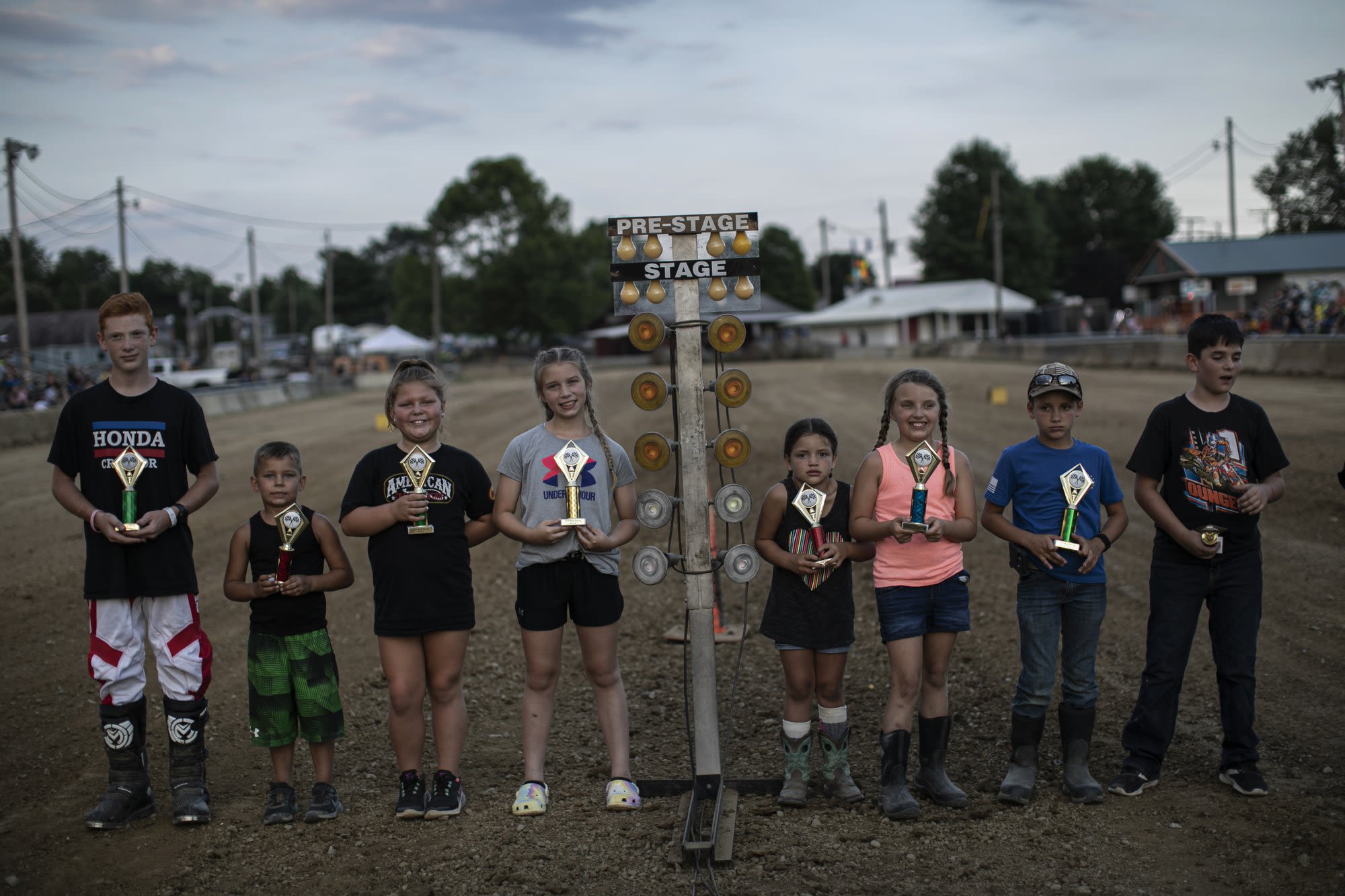
Highlights include:
- The Associated Press series Outsourcing Migrants won the Overseas Press Club’s Hal Boyle Award for best newspaper, news service, or digital reporting from abroad.
- Threshold’s "The Refuge" received a 2020 Peabody in the podcast and radio category.
- Nestor Ramos was named a Pulitzer Prize finalist in the feature writing category for his Boston Globe feature “At the Edge of a Warming World.”
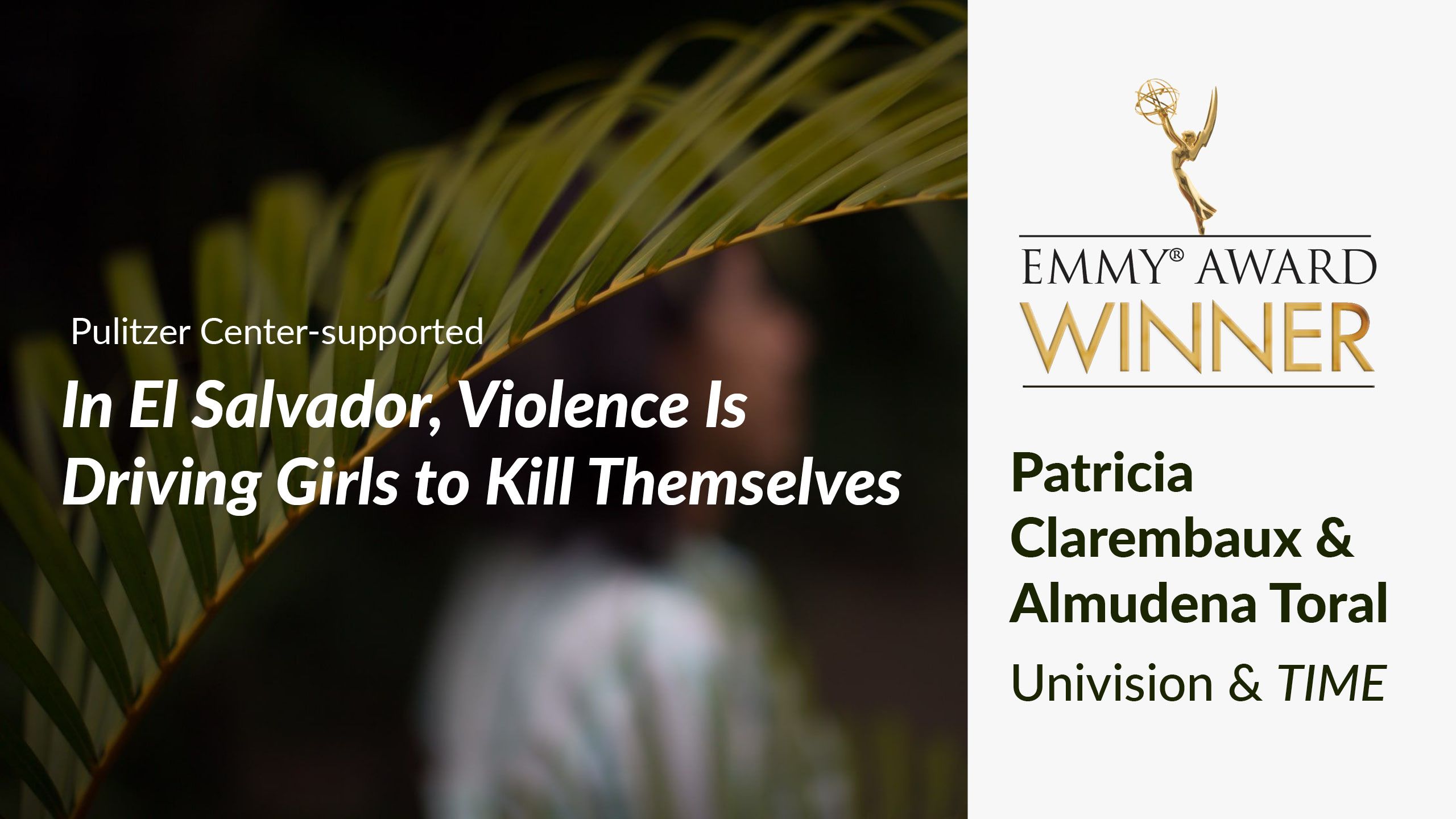
Above: Image by Lucille Crelli. 2020.
Above: Image by Lucille Crelli. 2020.
- TIME received a 2020 News & Documentary Emmy Award for “In El Salvador, Violence Is Driving Girls to Kill Themselves,” a story produced in partnership with Univision. The story also won the Edward R. Murrow Award and a Webby.
- Vox’s expansive multimedia series Supertrees received a Scripps Howard Award, a 2020 Online News Association Award, a nomination for an ASME Ellie Award, and an honorable mention from the National Press Club.
- The Hour of Lynching, a documentary on anti-Muslim mob violence in India, was awarded third prize in the "long" category of the 2020 World Press Photo Digital Storytelling Contest.
- The Seattle Times, and our grantees there, received numerous awards, including three first-place SPJ Washington awards for the Beyond the Border series, a Northwest Regional Emmy Award, and an Online Journalism Award. Grantee Hal Bernton, also at The Seattle Times, was recognized by the Society of Environmental Journalists, winning first place in the outstanding beat reporting category.
- Amy Maxmen won a 2020 American Association for the Advancement of Science (AAAS) Kavli Science Journalism Gold Award in the magazine category for her Pulitzer Center-supported reporting on Ebola outbreaks.
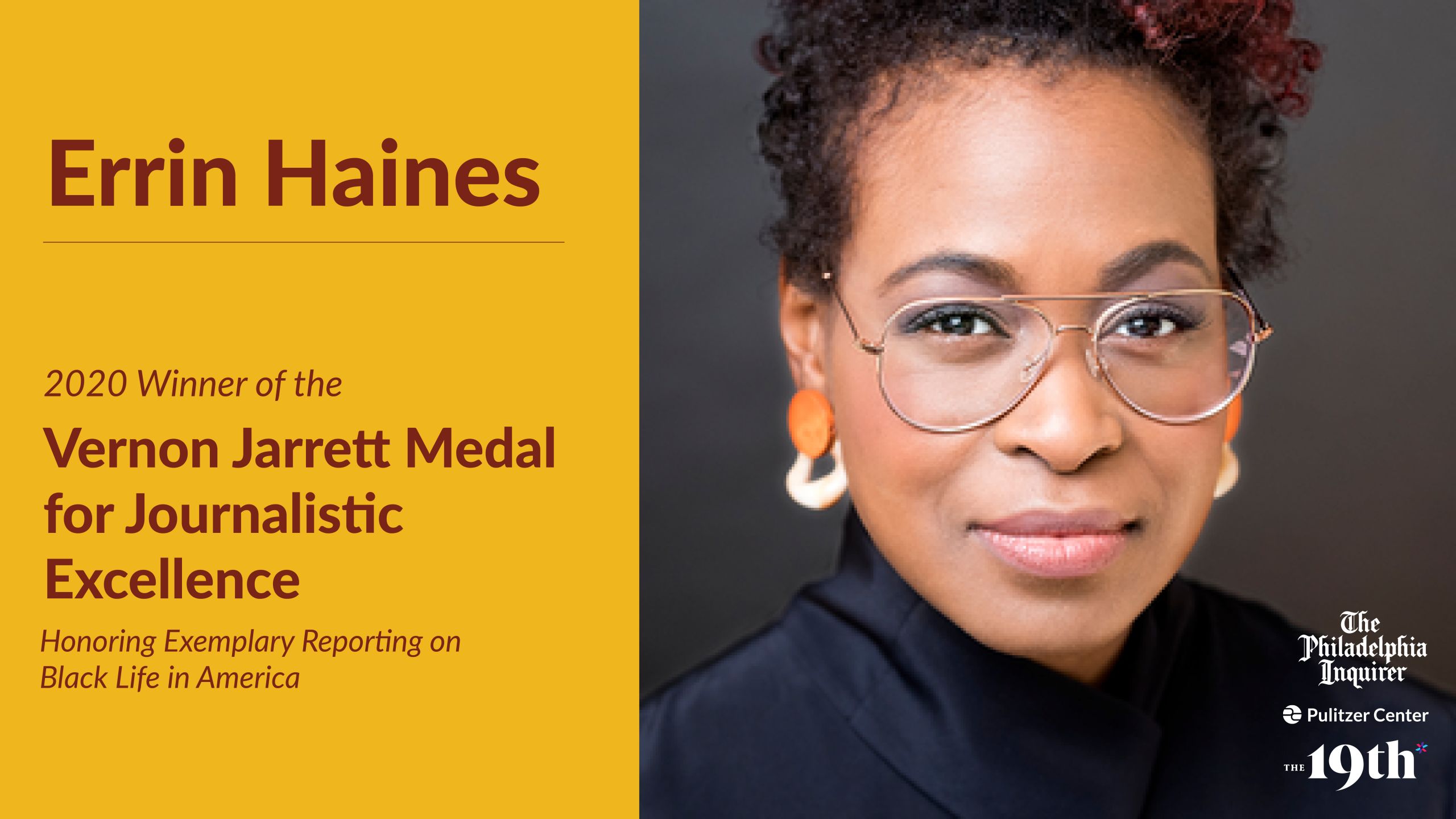
Above: Image by Lucille Crelli. 2020.
Above: Image by Lucille Crelli. 2020.
- Pulitzer Center grantee Errin Haines was awarded the 2020 Vernon Jarrett Medal for Journalistic Excellence for the series Portraits of a Pandemic, a collaboration between The 19th* and The Philadelphia Inquirer.
- Mapping Makoko, an effort to map a massive informal waterside community in Lagos, Nigeria, was shortlisted in the Sigma Awards’ open data category.
- Carolyn Thompson won third place from the Investigative Reporters and Editors (IRE) 2019 Philip Meyer Award for her reporting on the South Sudanese refugee crisis.
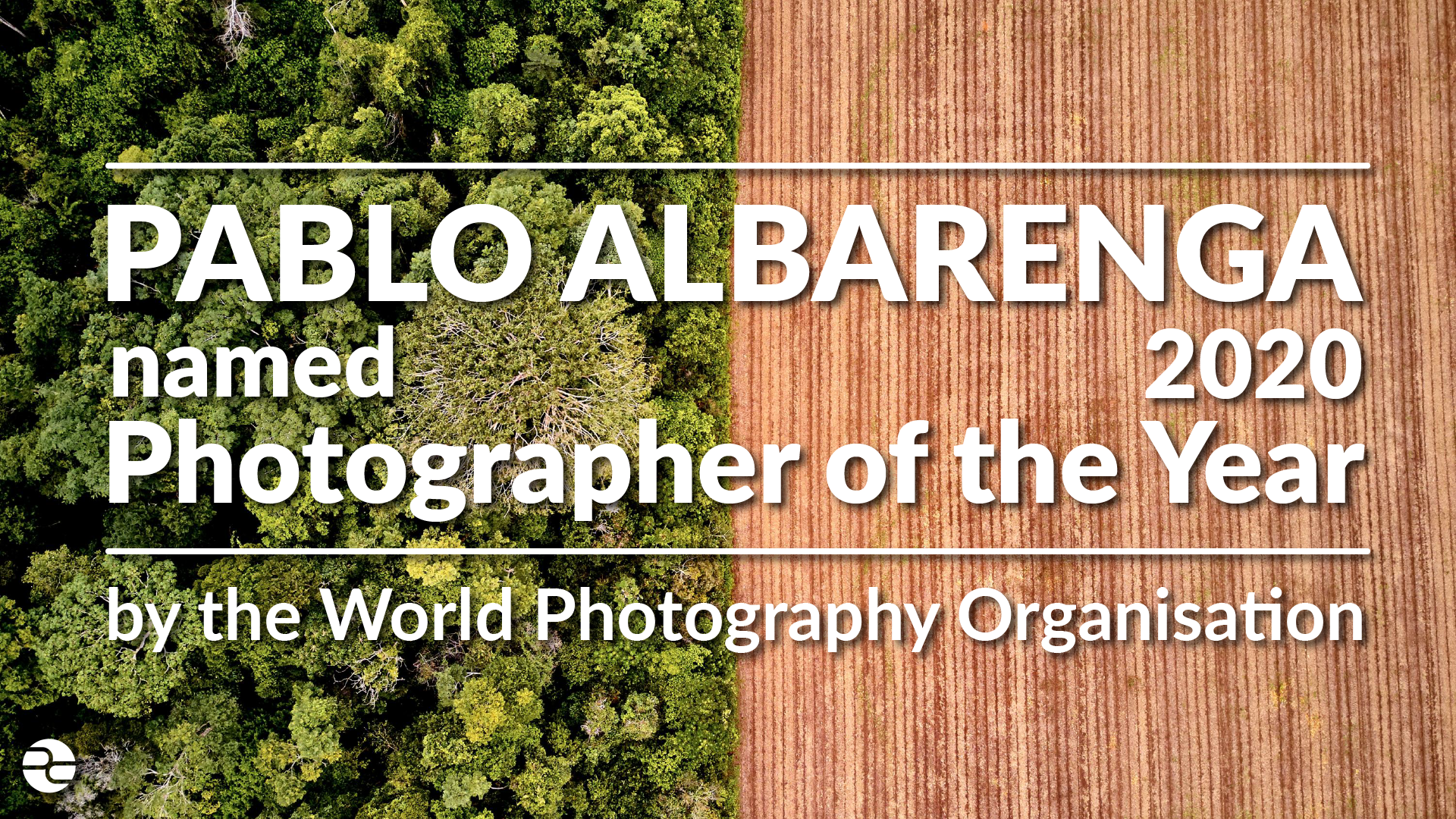
Above: Image by Lucille Crelli. 2020.
Above: Image by Lucille Crelli. 2020.
Reporting Fellows
- Isabella Gomes, 2019 Johns Hopkins School of Public Health Reporting Fellow, was a finalist in Global Health 50/50’s 2020 “This Is Gender” photography competition for her project Discharged: The Missed Cases of Sex Trafficking.
- 2019 Reporting Fellows Patrick Ammerman, from the University of Pennsylvania, and Mariana Rivas, from Texas Christian University, were honored with the Society of Professional Journalists (SPJ) Mark of Excellence awards for their respective Pulitzer Center projects, Venezuela’s HIV Crisis Crosses the Border and Refugees in Colombia.
- Pulitzer Center Reporting Fellow Kiran Misra won two South Asian Journalists Association (SAJA) awards, one for photography and another for race and diversity reporting. Misra’s award-winning photos appeared in her Pulitzer Center project A Zero Sum Game: A Look Inside the Informal Housing Settlements of New Delhi.
Background images in order of appearance:
- Illustration by Alexander Charner / Latino USA. 2020.
- Illustration by Nico Villarete. 2020.
- Illustration by David Senior / The Baltimore Sun. 2020.
- Illustration by Daniel Zender. 2020.
- Illustration by Natalie Williams / Bangor Daily News. 2020.
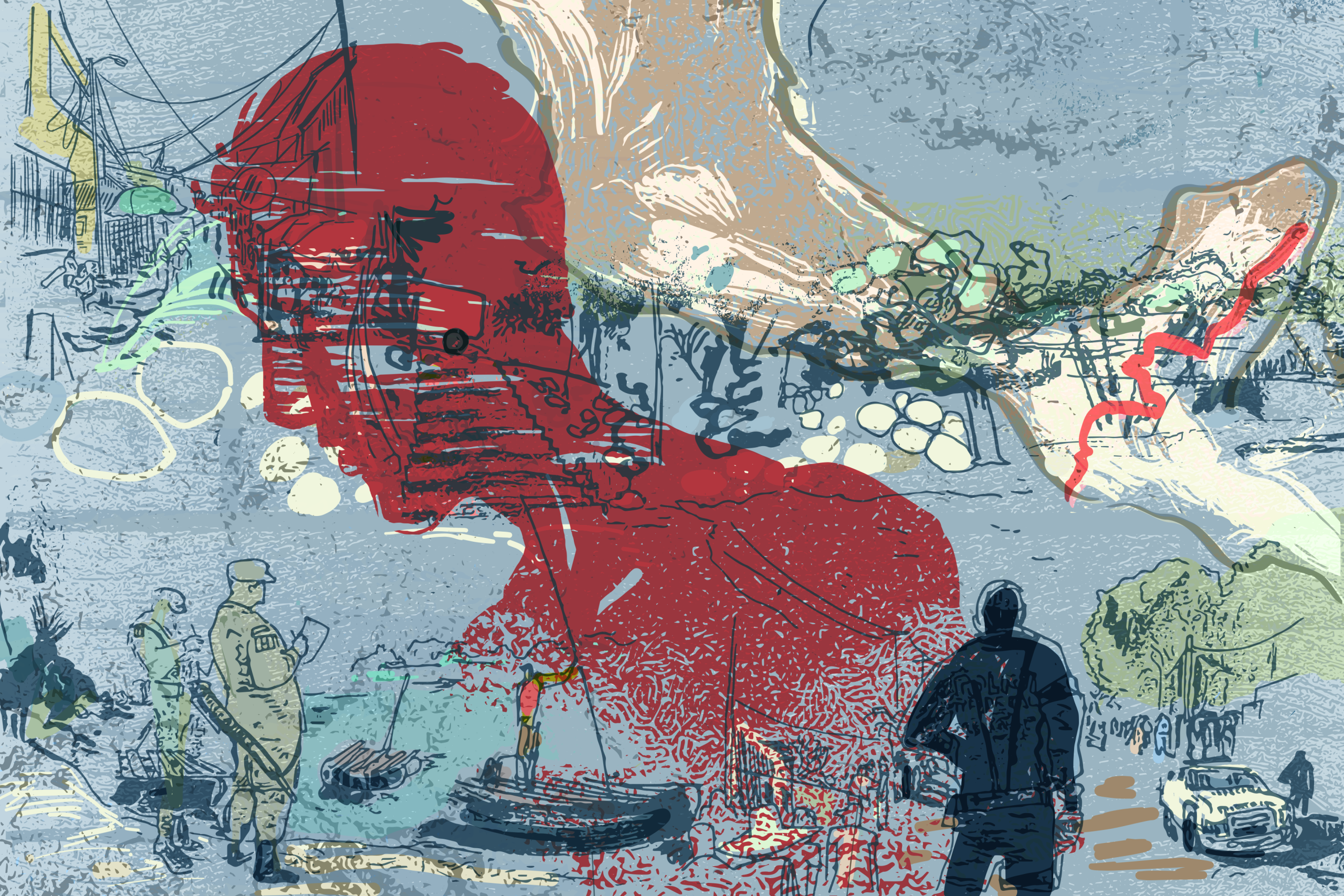
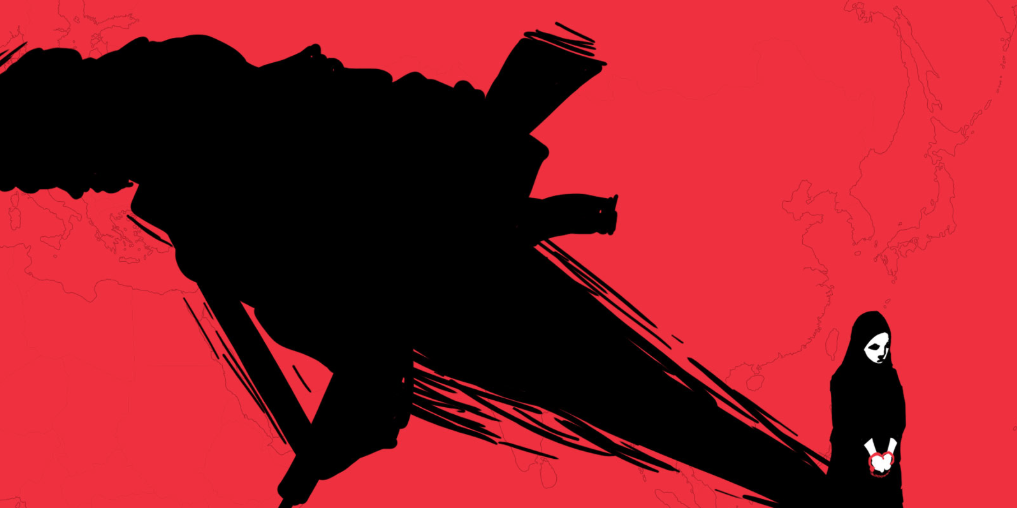
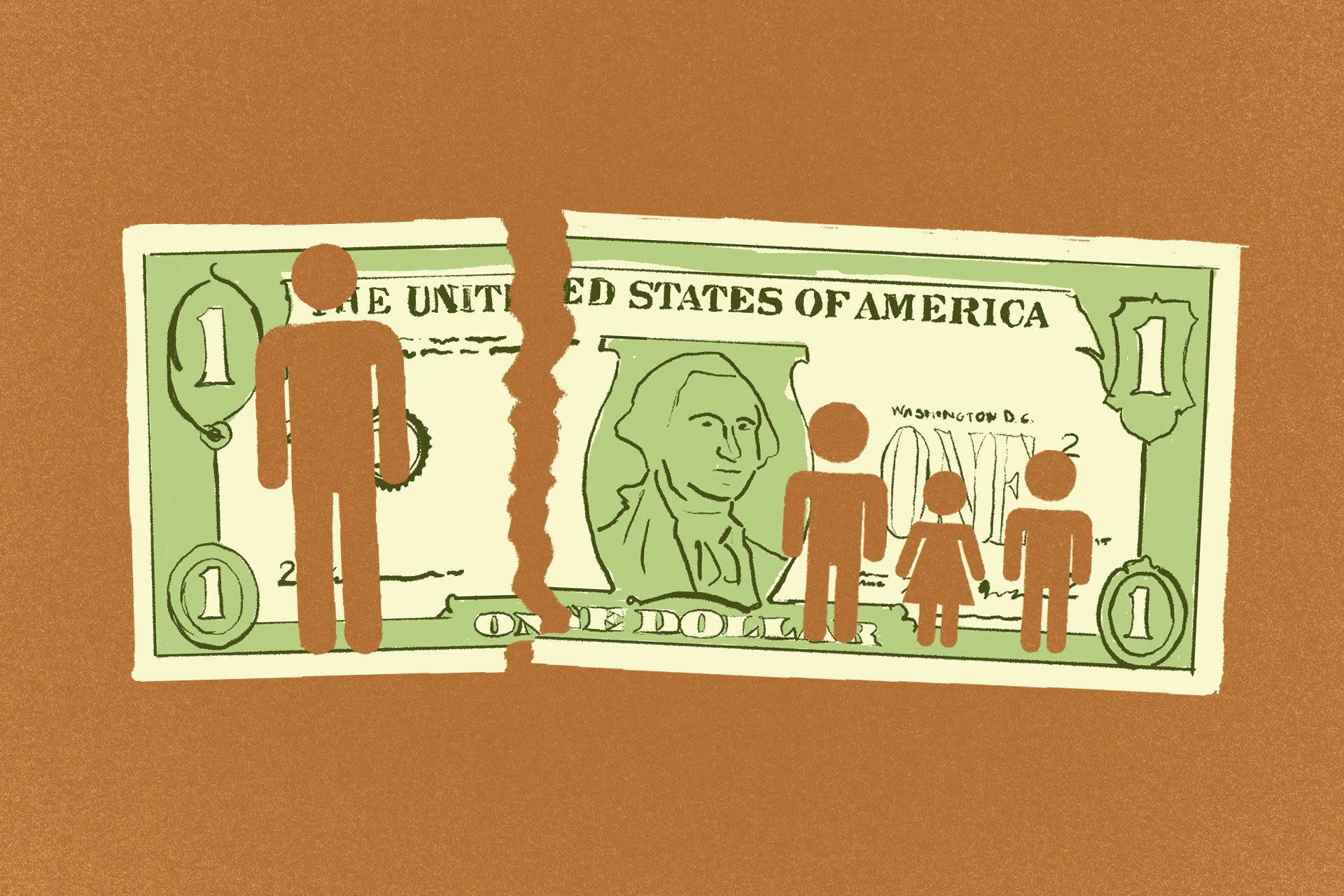


Impact
We have seen hundreds of follow-up stories and republications, direct messages from our audiences, and scores of stakeholder meetings. And, for our grantees and other partners, we have helped to facilitate valuable capacity-building and professional development opportunities.
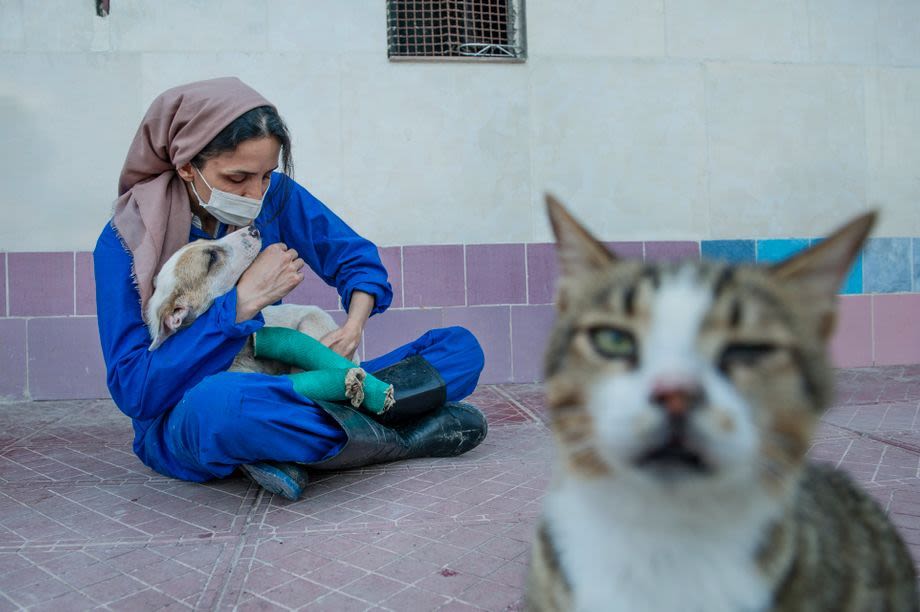
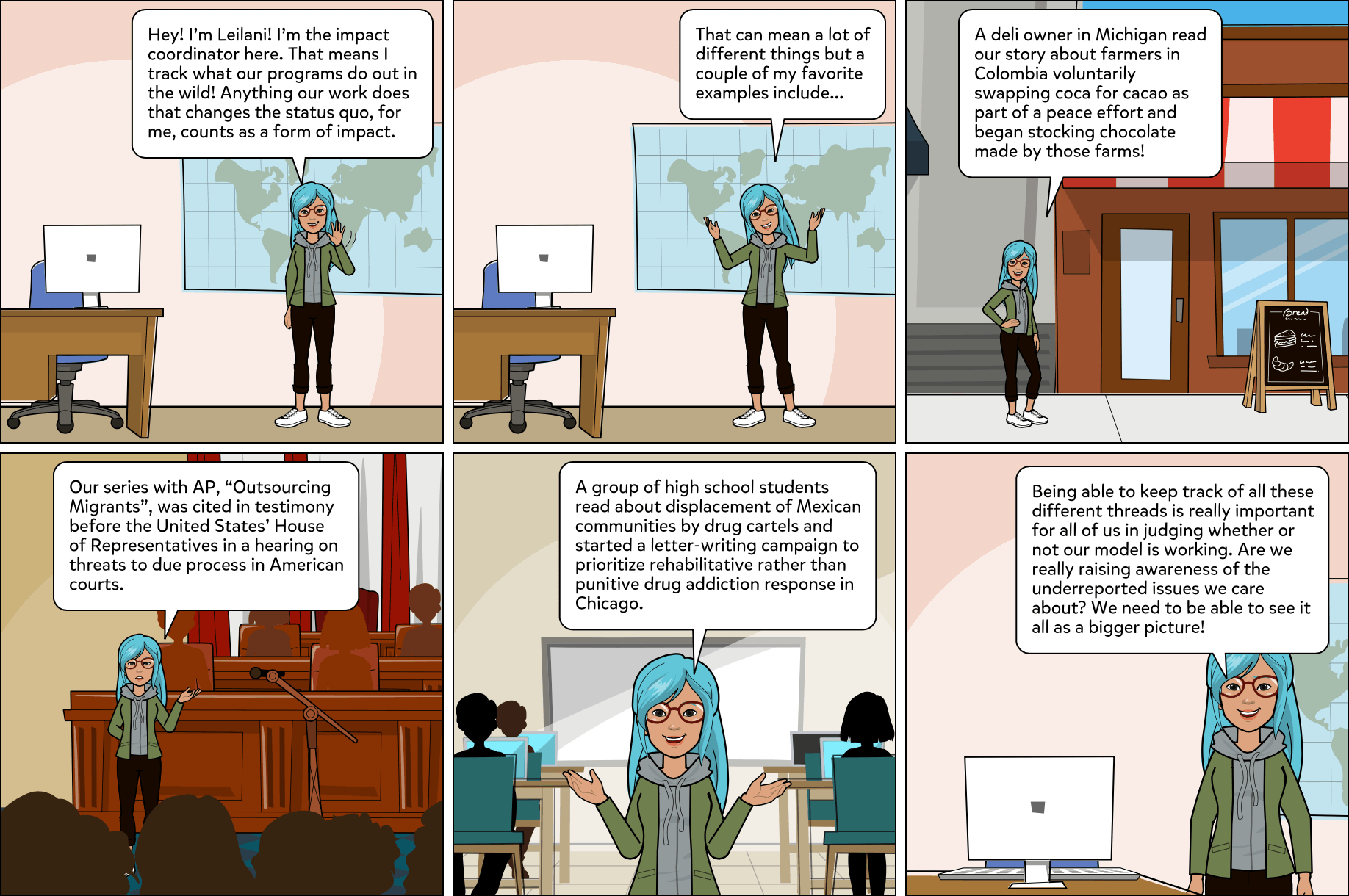
Above: Image by Leilani Rania Ganser. 2020.
Above: Image by Leilani Rania Ganser. 2020.
In the Amazon, Pulitzer Center grantees have produced reporting leading to the cancellation, alteration, or investigation of at least four mining and trade projects that pose threats to traditional or Indigenous land ownership and the environment.
Grantees reporting on the coronavirus pandemic saw governments in Iran and Rwanda take efforts to address policy failures identified by the reporting that affected working-class citizens and citizens who participate in informal economies.
Legislators in two states passed three bills informed by Pulitzer Center-supported projects. In Ohio, a bipartisan team of legislators addressed property tax loopholes, and in Maryland, two bills were overwhelmingly passed to reform the state’s child-support system.
Readers in Peru and Iran were spurred by two Pulitzer Center projects to create community drives—in Peru, to provide clothes for elderly residents in rural Lima, and in Iran, to raise funds for a struggling animal shelter.
Pulitzer Center-supported reporting was featured in hearings in both chambers of the United States Congress. Outsourcing Migrants was cited as evidence in testimony before the House of Representatives during an investigation of due process in immigration courts, while a dozen senators referenced Carol Rosenberg’s journalism in a demand for a pandemic protection plan for the remaining Guantánamo detainees.
In the past year more than twice as many law enforcement agencies in Kentucky reported seizures under civil asset forfeiture than did so two years prior to the publication of Taken, the Pulitzer Center project that exposed property seizures.
Diligent climate coverage through our Connected Coastlines partnership with the Howard Hughes Medical Institute has directly impacted the budgetary negotiations in Charleston and South Carolina as a whole. Days after our Rising Waters piece exposed the vulnerability of the state's largest medical district, South Carolina Gov. Henry McMaster threw his support toward a $10 million project to extend a drainage pipe to that area. Our investigations into bacteria in floodwaters helped spur The Citadel Magazine to do its own bacteria and virus projects. Neighborhood groups cited our coverage in their battles to stop what they feel are wrongheaded developments in wetlands.
The land-grab universities project has been cited in five academic articles and became the subject of a special issue by the Native American and Indigenous Studies Association (NAISA). It has seen follow-up pieces in at least seven relevant outlets of record, two radio segments, and two podcasts. The piece has generated responses—either by university administrators or students—across 11 states, including a formal apology by one campus and a reparative task force by three other schools.
Diversity, Equity,
and Inclusion
DEI is central to the Pulitzer Center’s mission and practices.
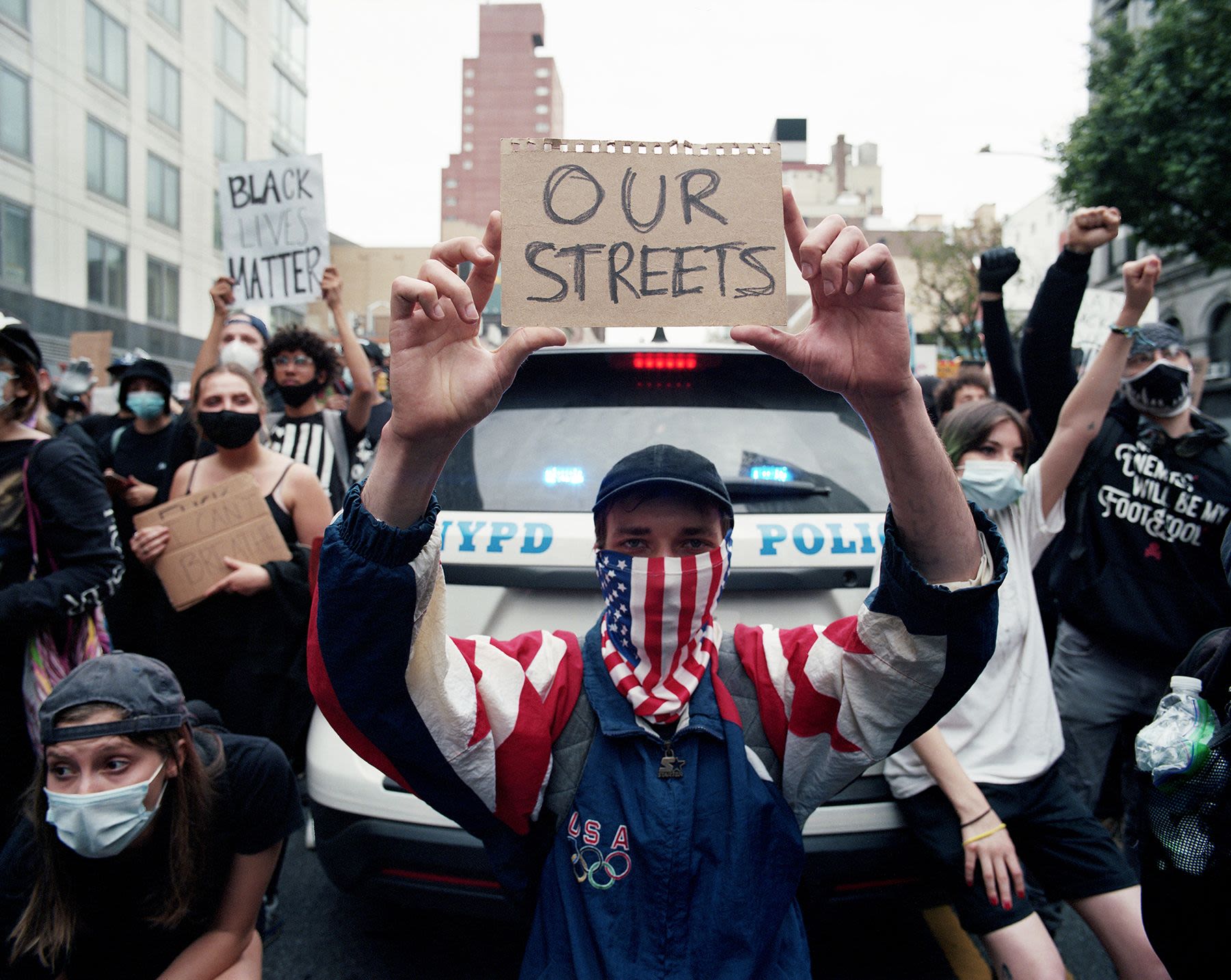
In 2020, we published an explanation of how we define these terms and commit to them in our work. We formed a DEI task force made up of representatives from all Center teams, appointed a DEI lead from our staff, developed a structure for all teams to develop and evaluate goals towards furthering our DEI commitments, and established quarterly check-ins to monitor progress toward our goals. Please see our Statement on Diversity, Equity, and Inclusion for more information on our goals and how we intend to act on them in 2021 and beyond.
We recognize that there are gaps between our commitments and our current state, and we will make efforts to narrow these gaps throughout our current and future work. We are also committed to reflecting on our progress, actively seeking and addressing feedback, and prioritizing DEI in our current and future work.
Below is a snapshot of the diversity of our journalist-grantee community involved in 2020 reporting projects and educational outreach.
Information is based on self-reported data from grantees who responded to the survey.
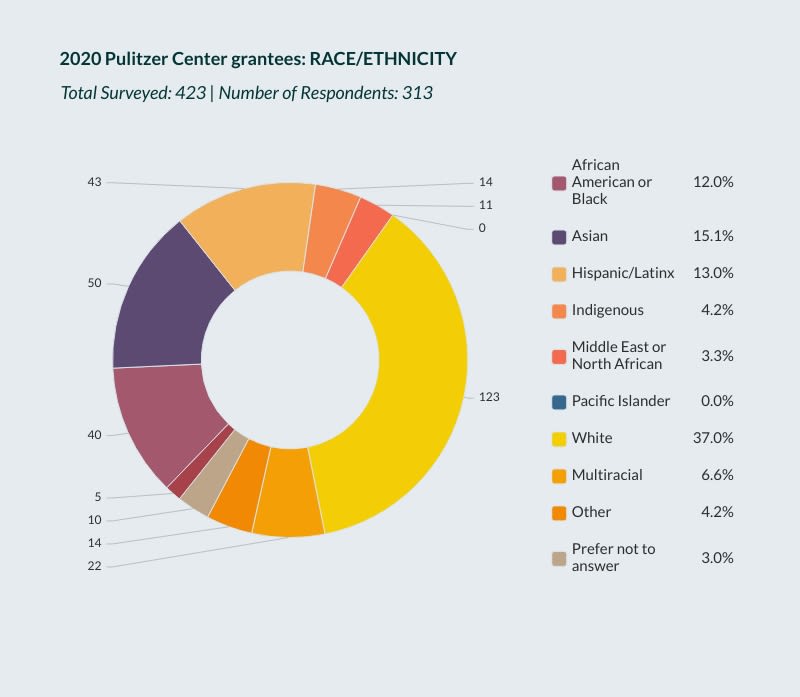
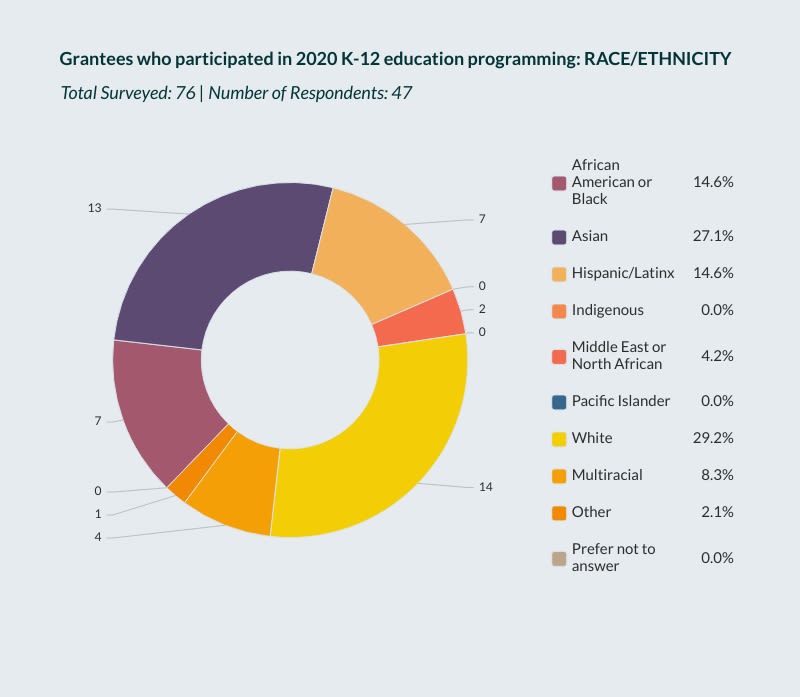
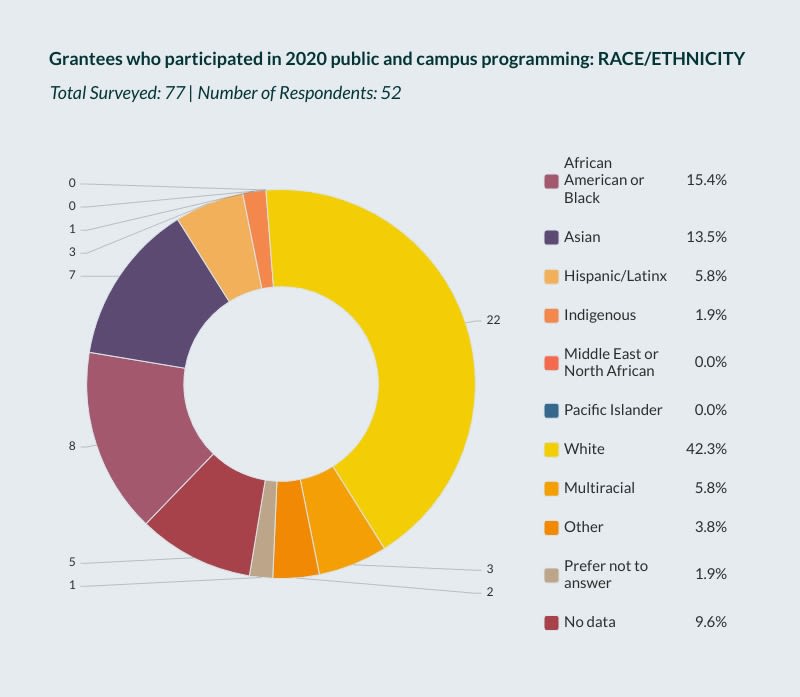
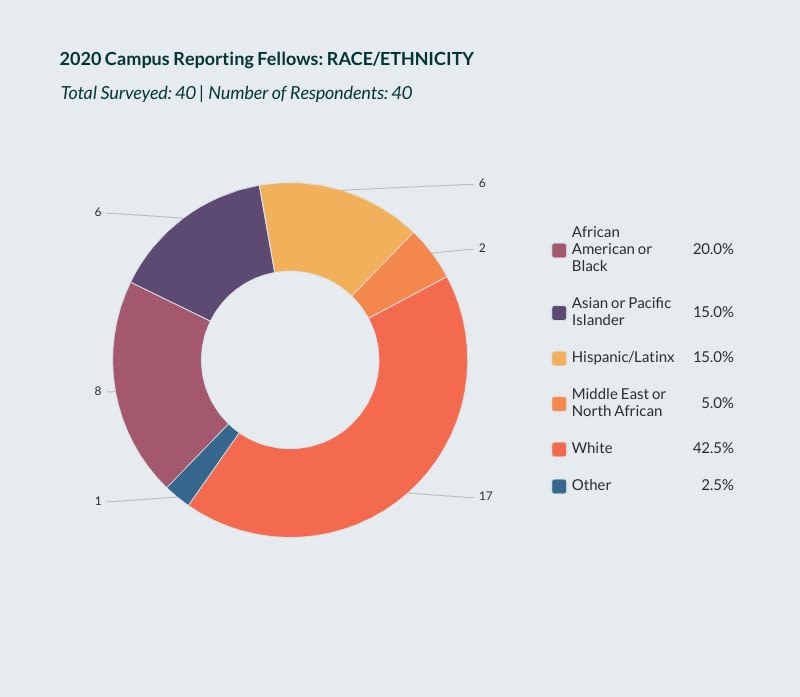
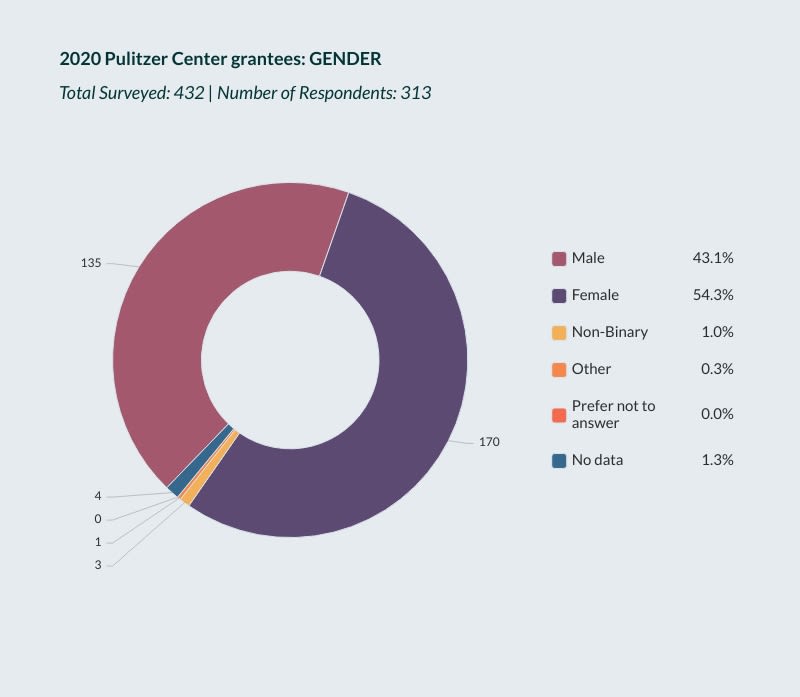
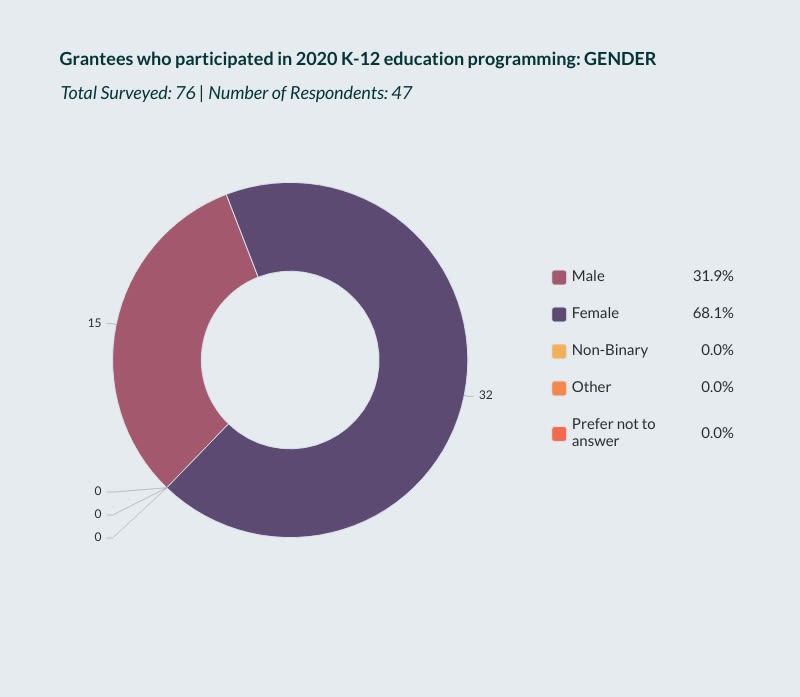
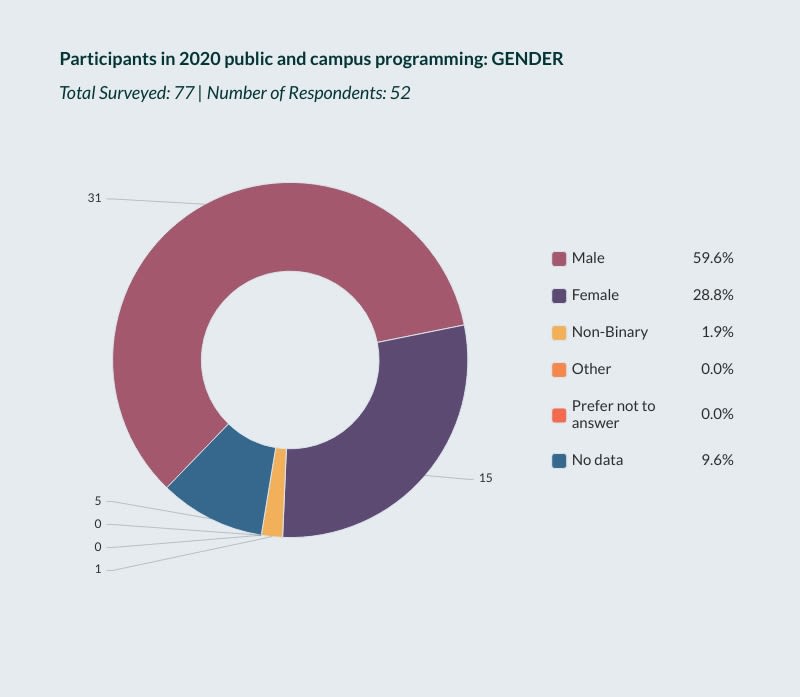
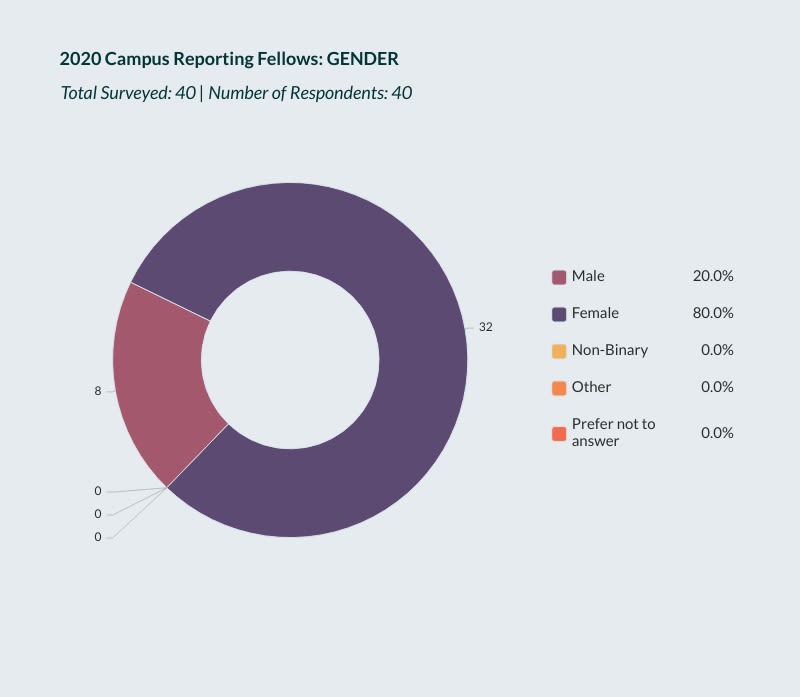
Finances
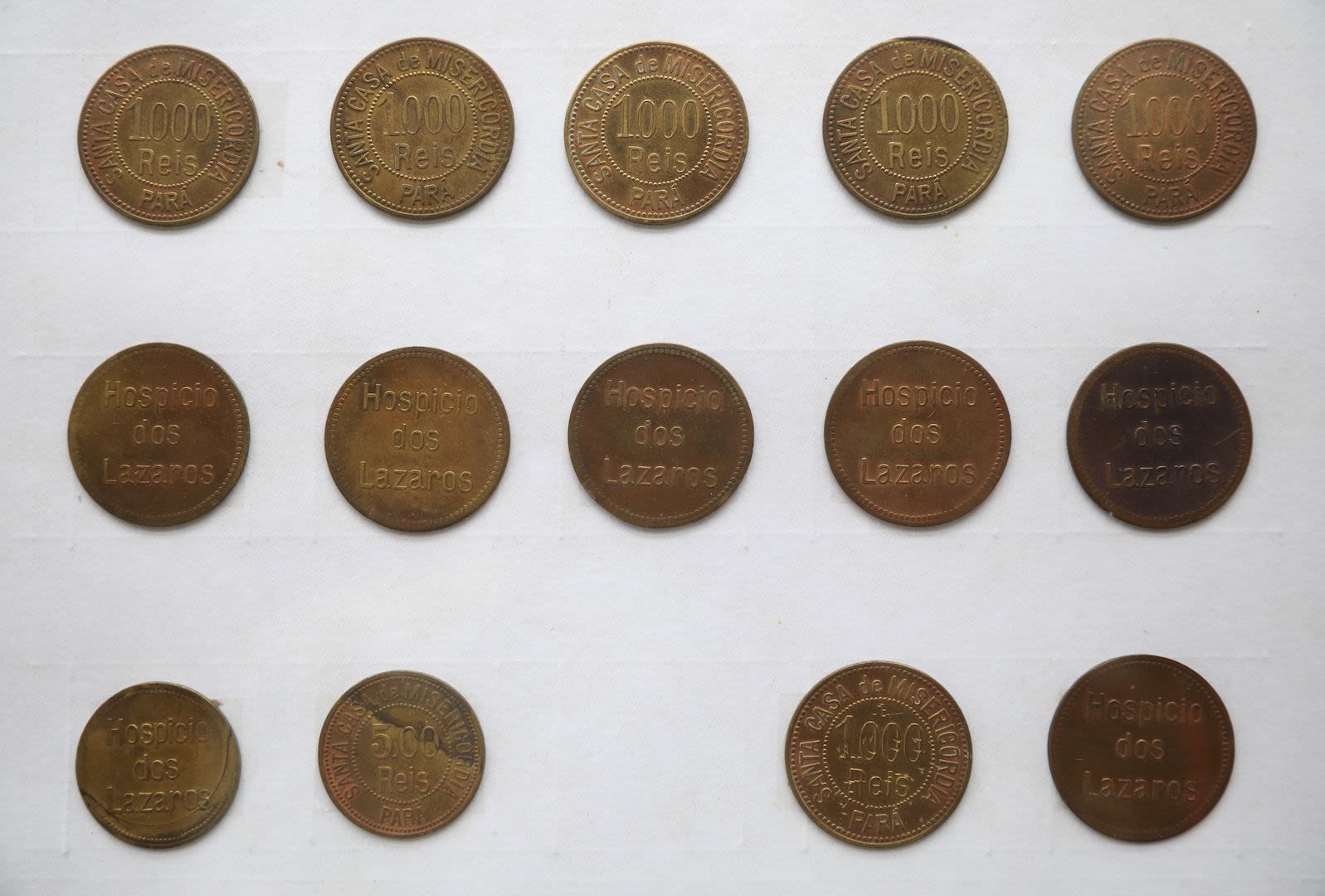
Support for the Pulitzer Center in 2020 came from the MacArthur Foundation, Omidyar Network, Humanity United, Rockefeller Foundation, Henry Luce Foundation, Arnold Ventures, Art for Justice Fund, Julian Grace Foundation, Facebook Journalism Project, Howard Hughes Medical Institute, Henry L. Kimelman Foundation, Norwegian International Climate and Forest Initiative (NICFI), Charles Stewart Mott Foundation, The William and Flora Hewlett Foundation, Poklon Foundation, the DC Commission on the Arts & Humanities, Trellis Charitable Fund, The Miami Foundation as part of the NewsMatch initiative, PIMCO Foundation, the Fore River Foundation, the Hollywood Foreign Press Association, and our Campus Consortium partner schools.
This broad mix of funding, along with continued core support from members of the Pulitzer family and many other generous individuals, ensures the independent journalism that is essential to our mission in these times. We are grateful to all who have sustained our work. We hope that others will join.
Become part of our story by donating today. Every donor at any level becomes a Pulitzer Center Champion! Learn more.
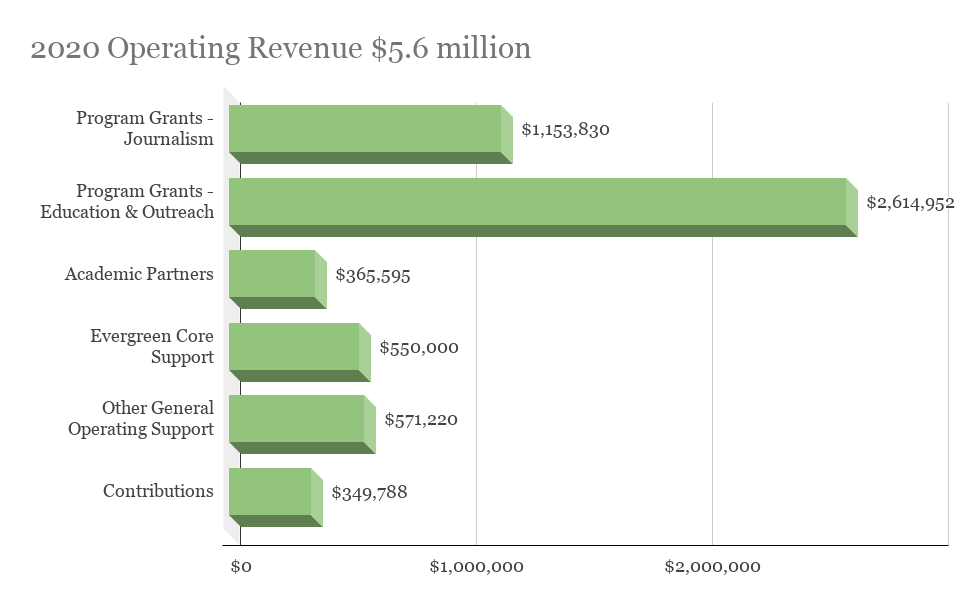
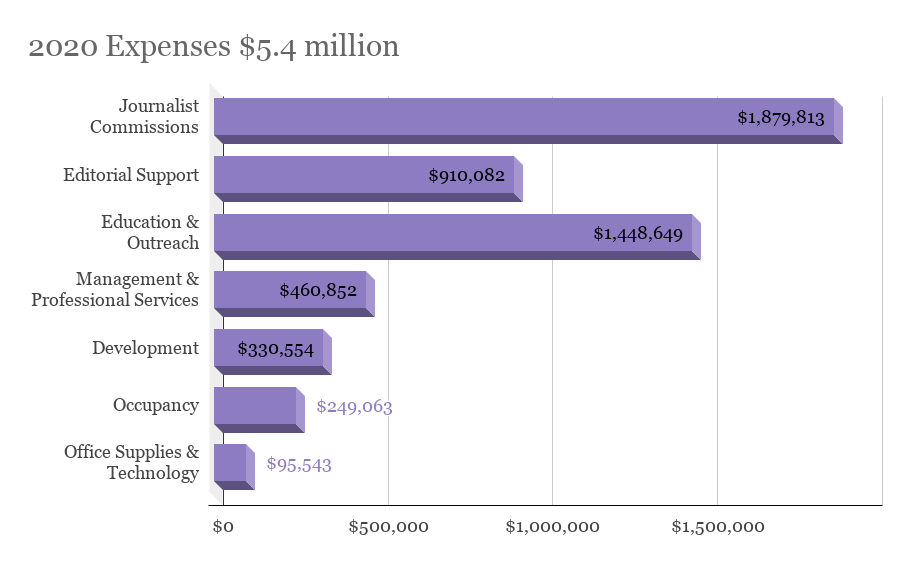
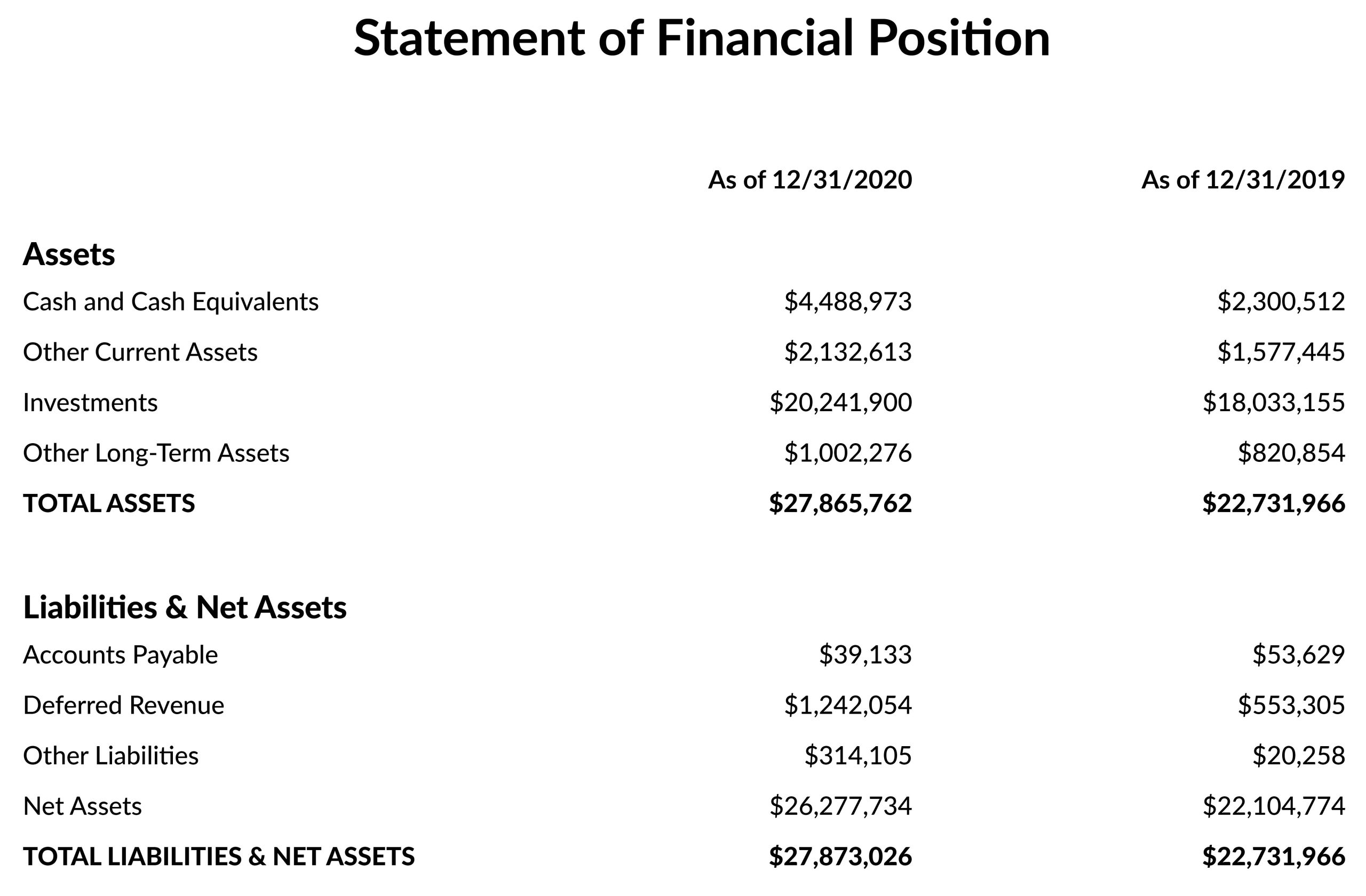
In addition to the operating revenue of $5.6 million, the Pulitzer Center received endowment gifts and pledges of $2.35 million in 2020. Investment earnings of just under $2.5 million during 2020 are not included in the operating revenue listed above. Data is based on preliminary financial results.
